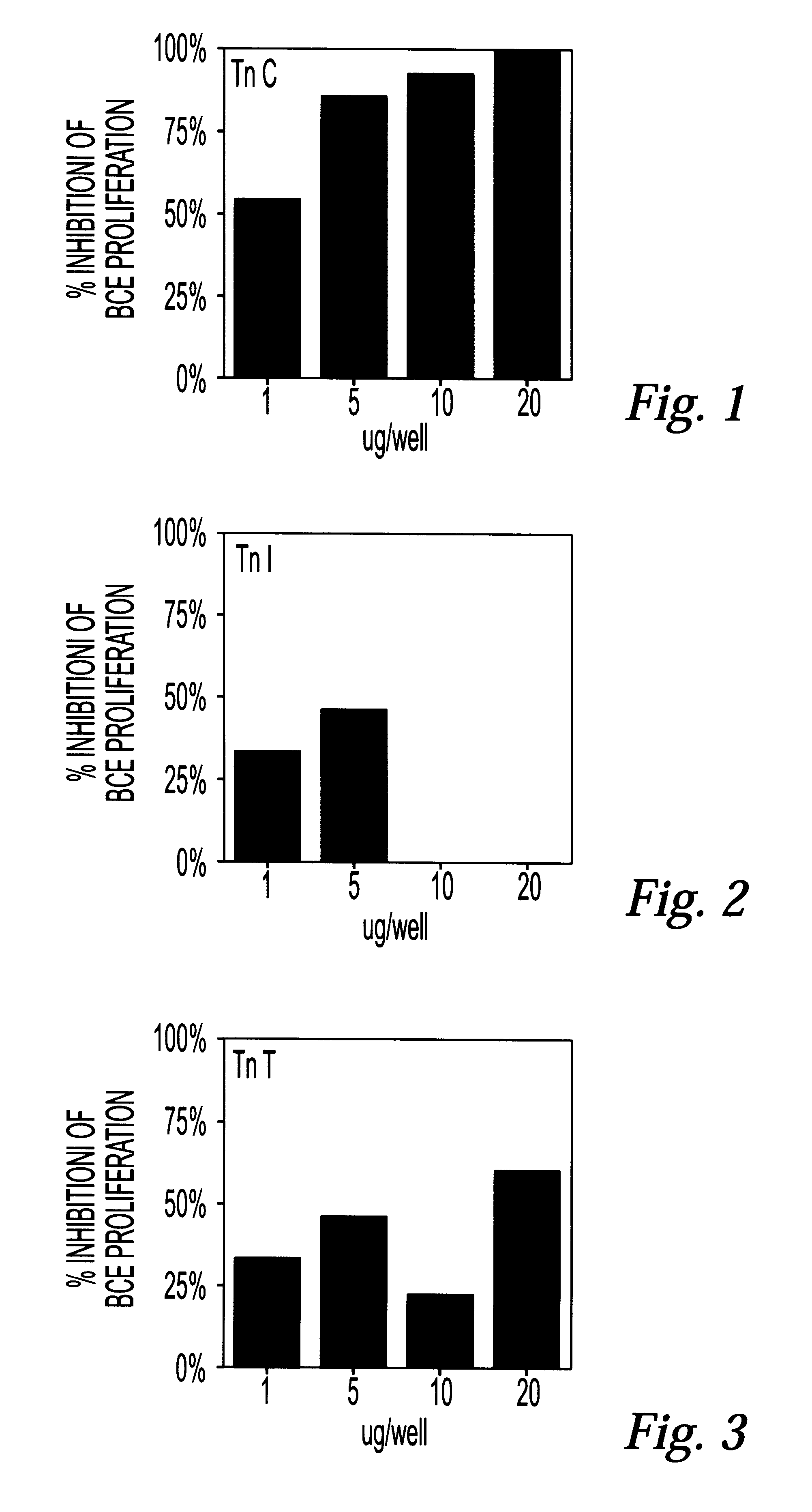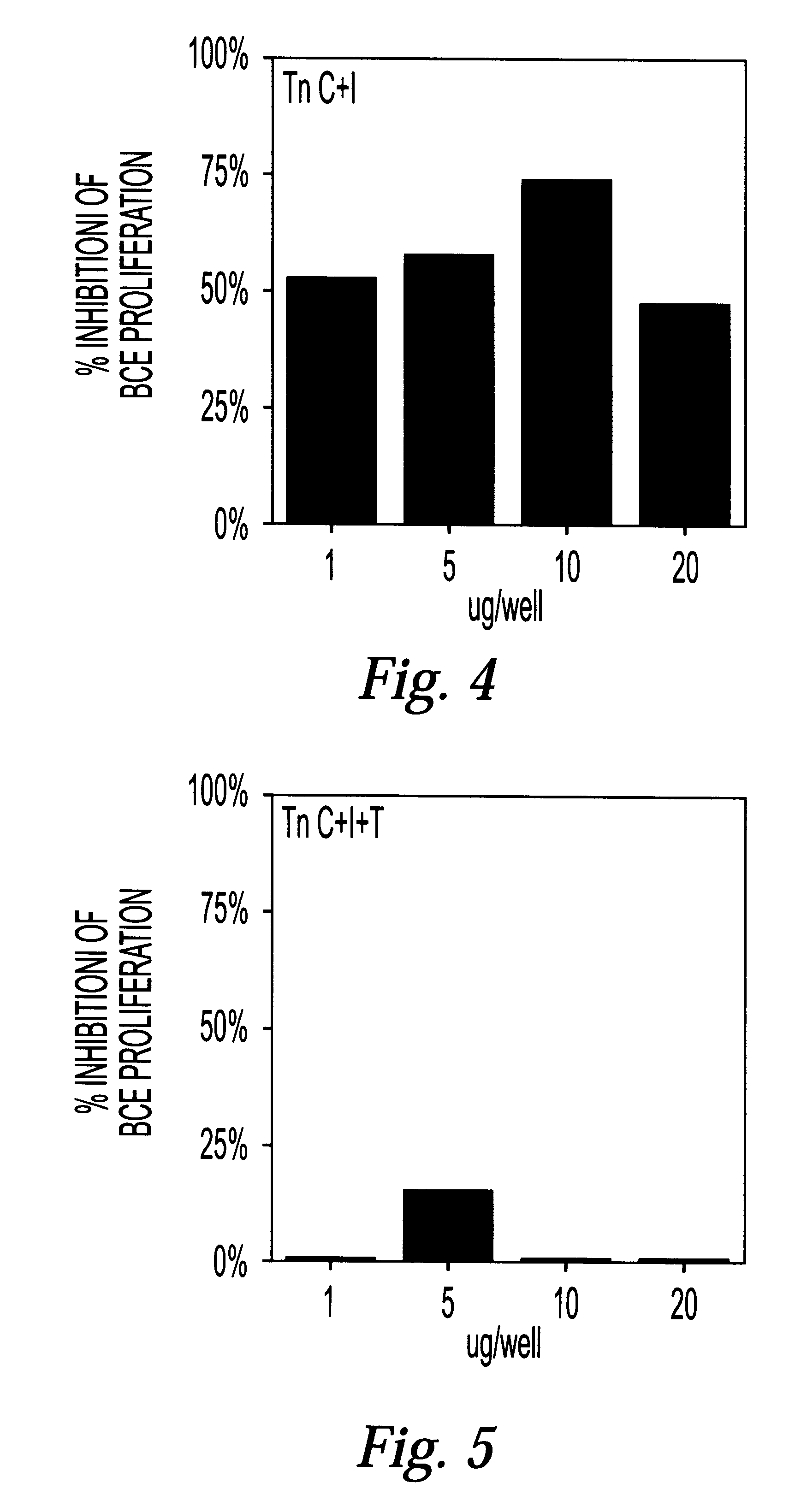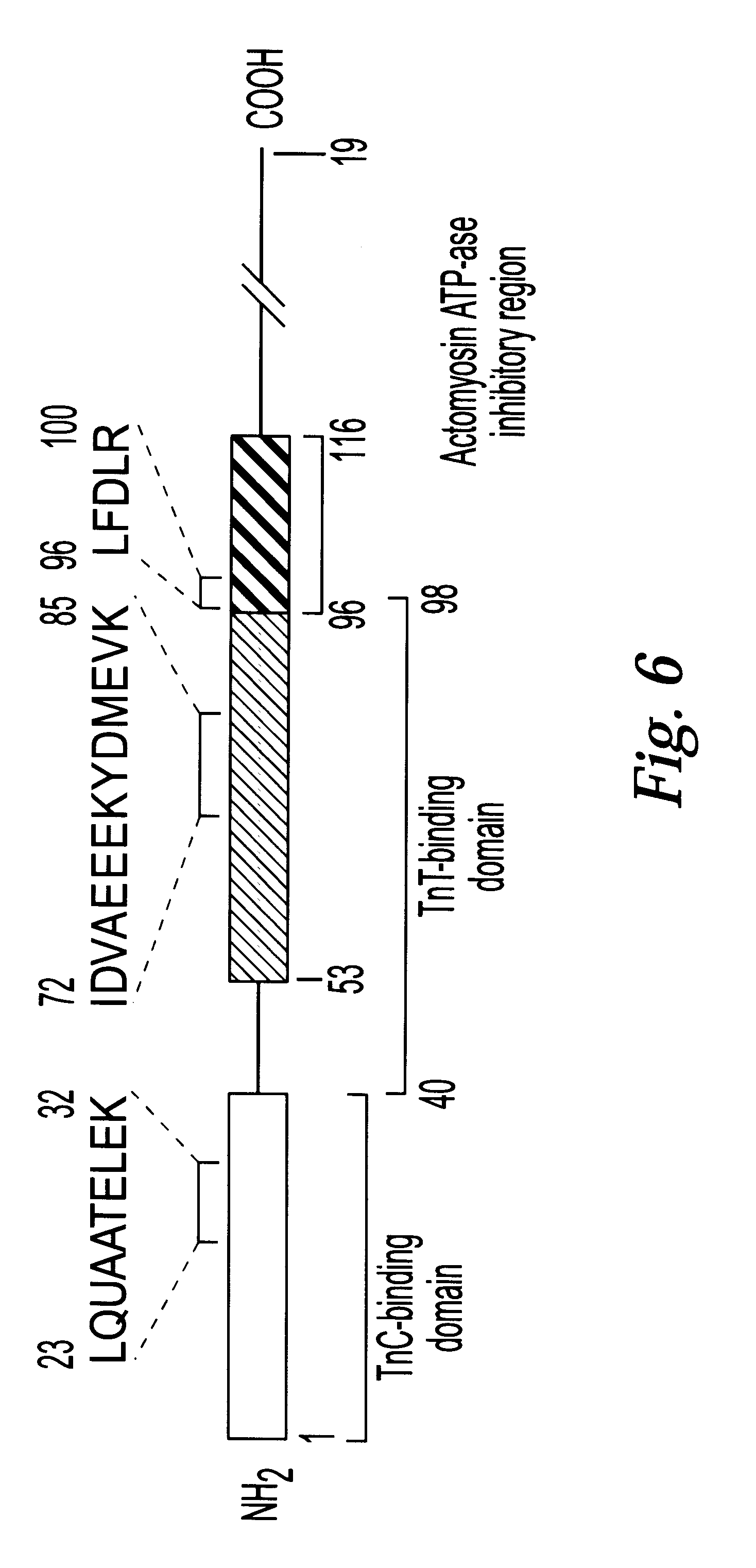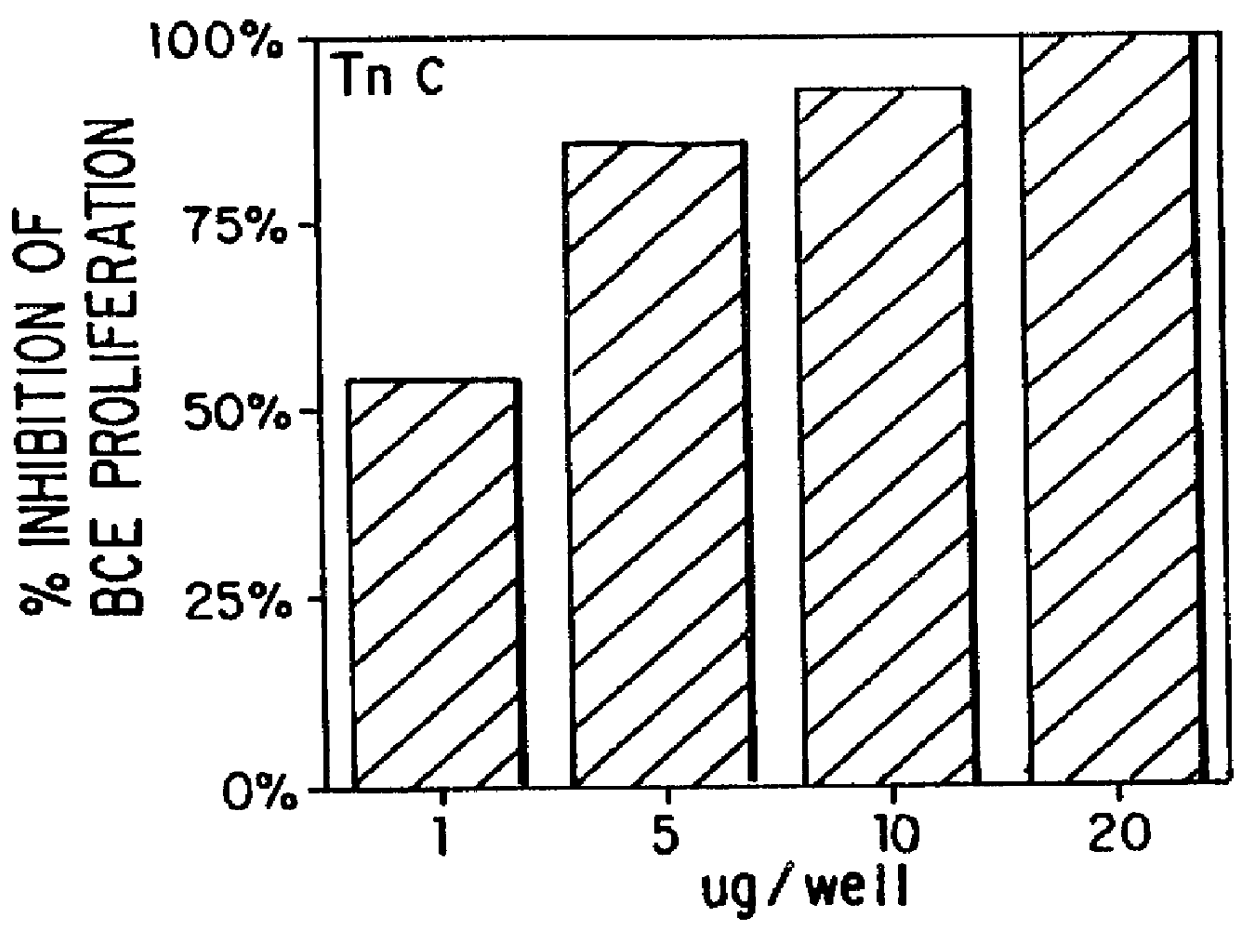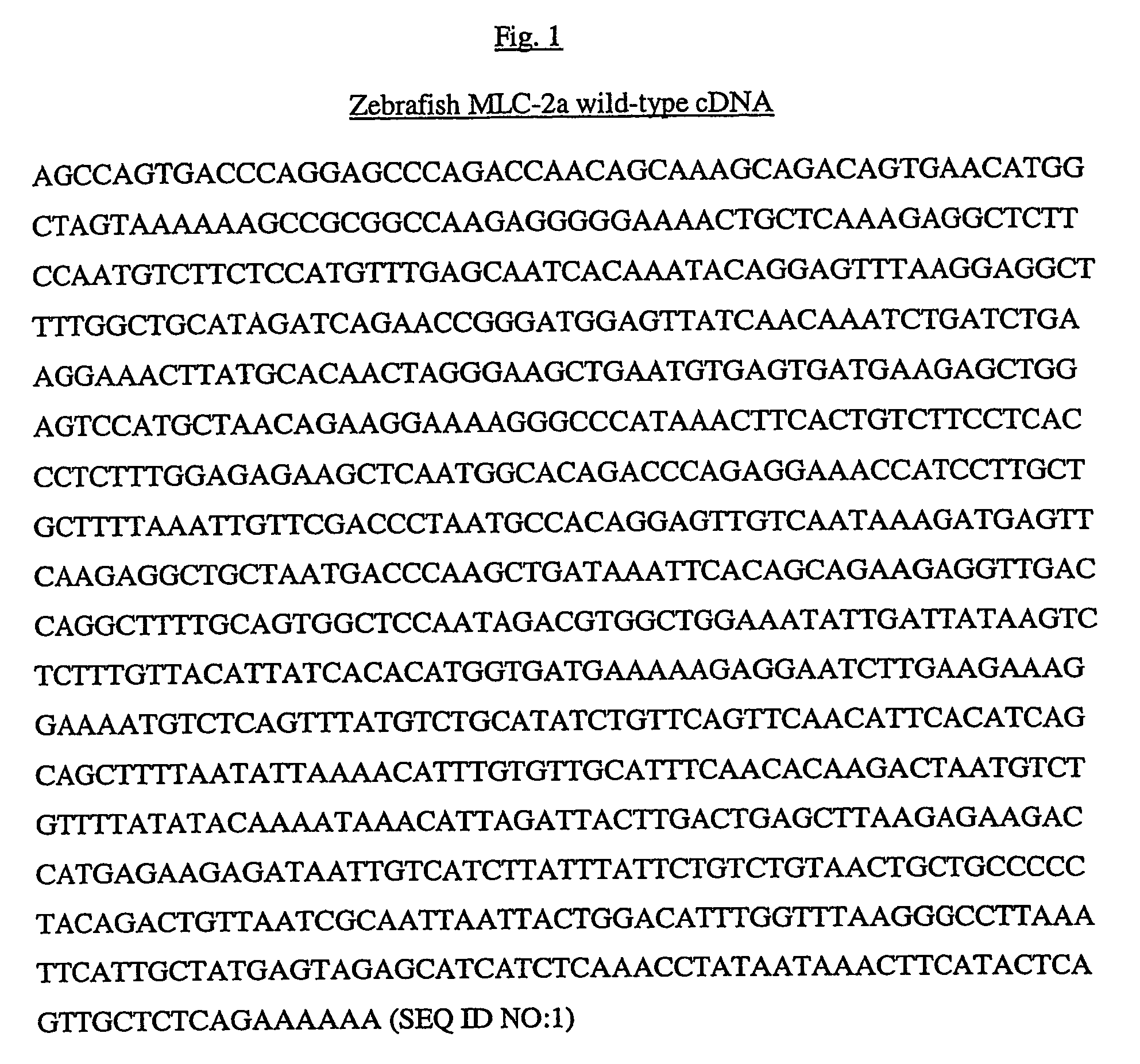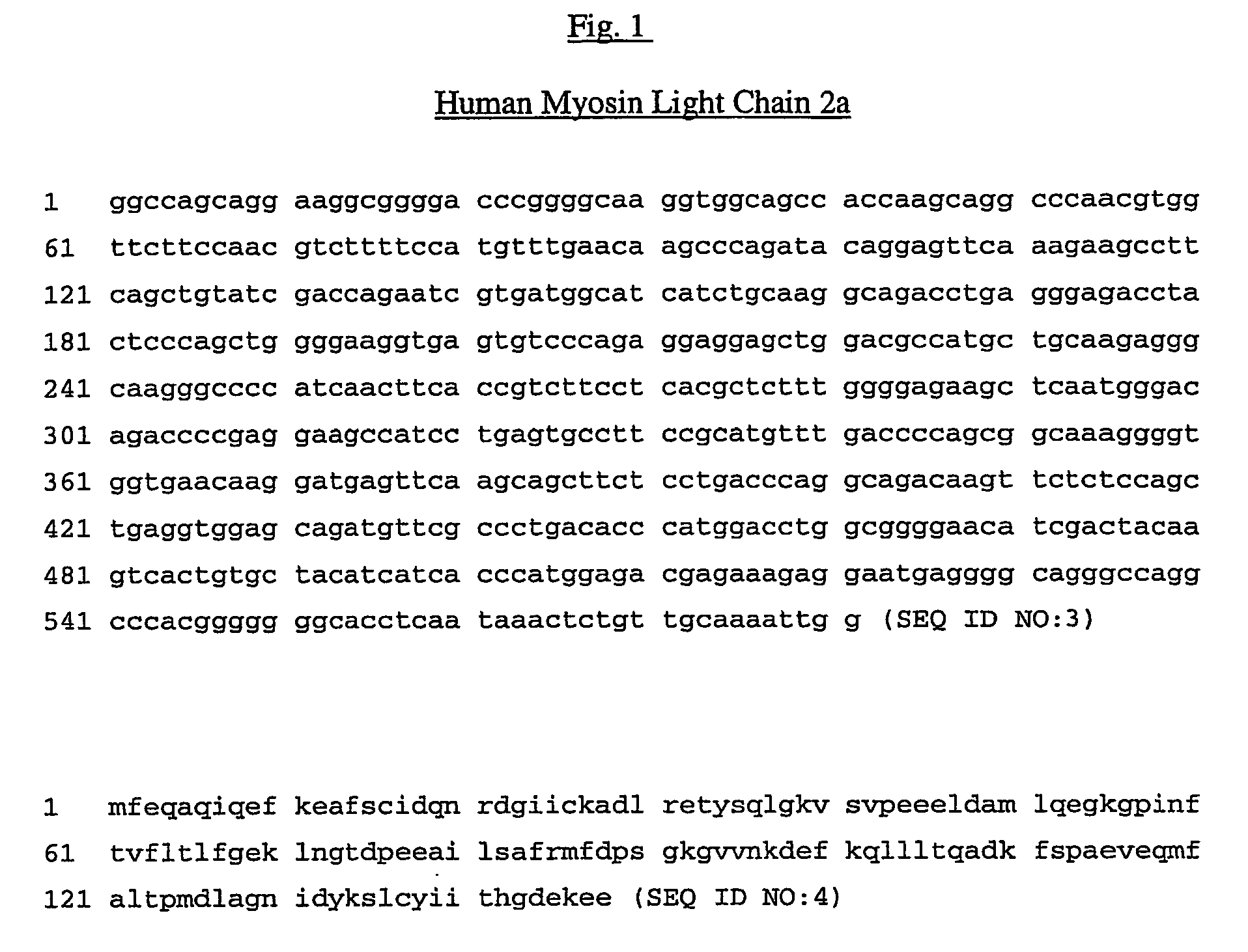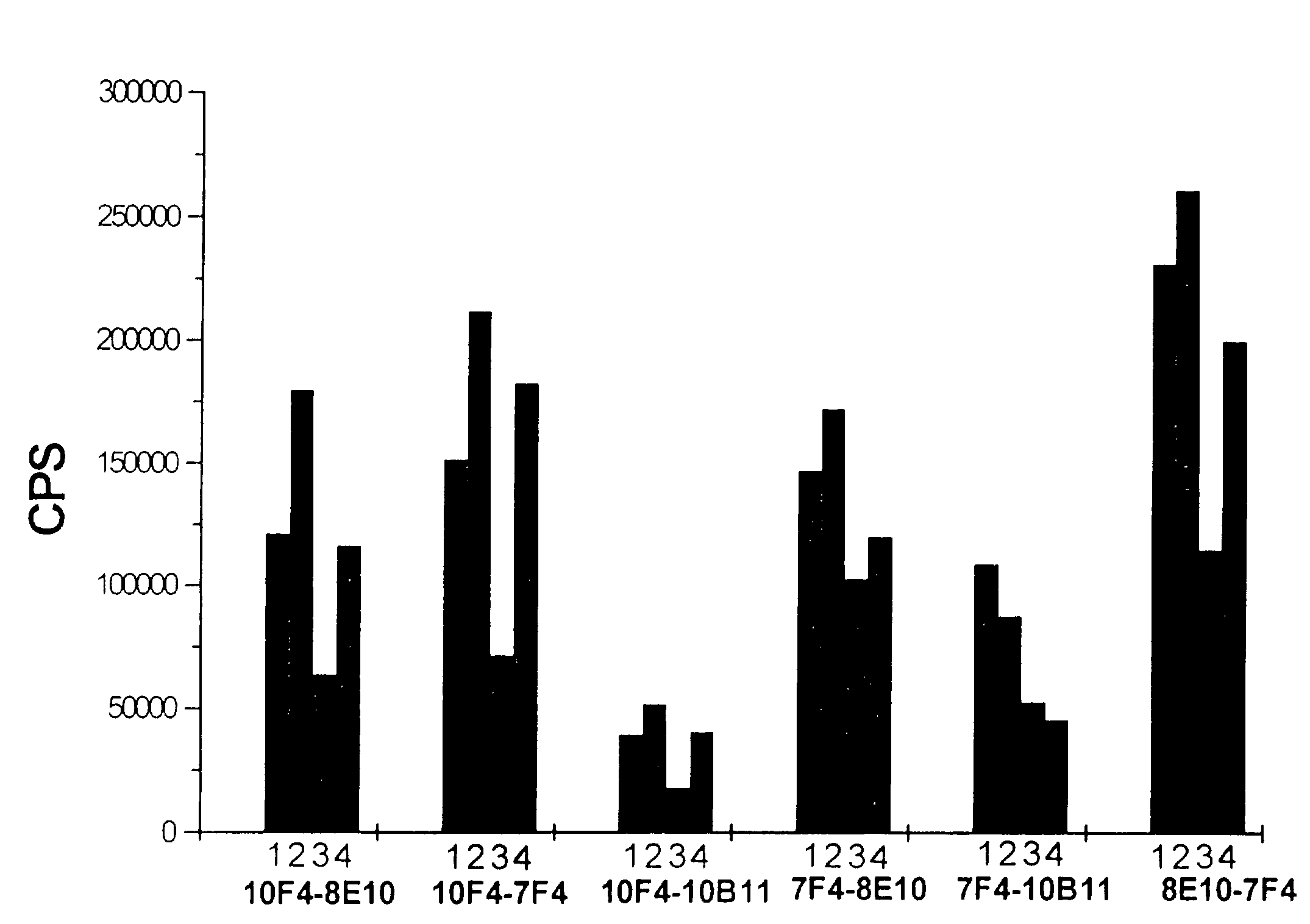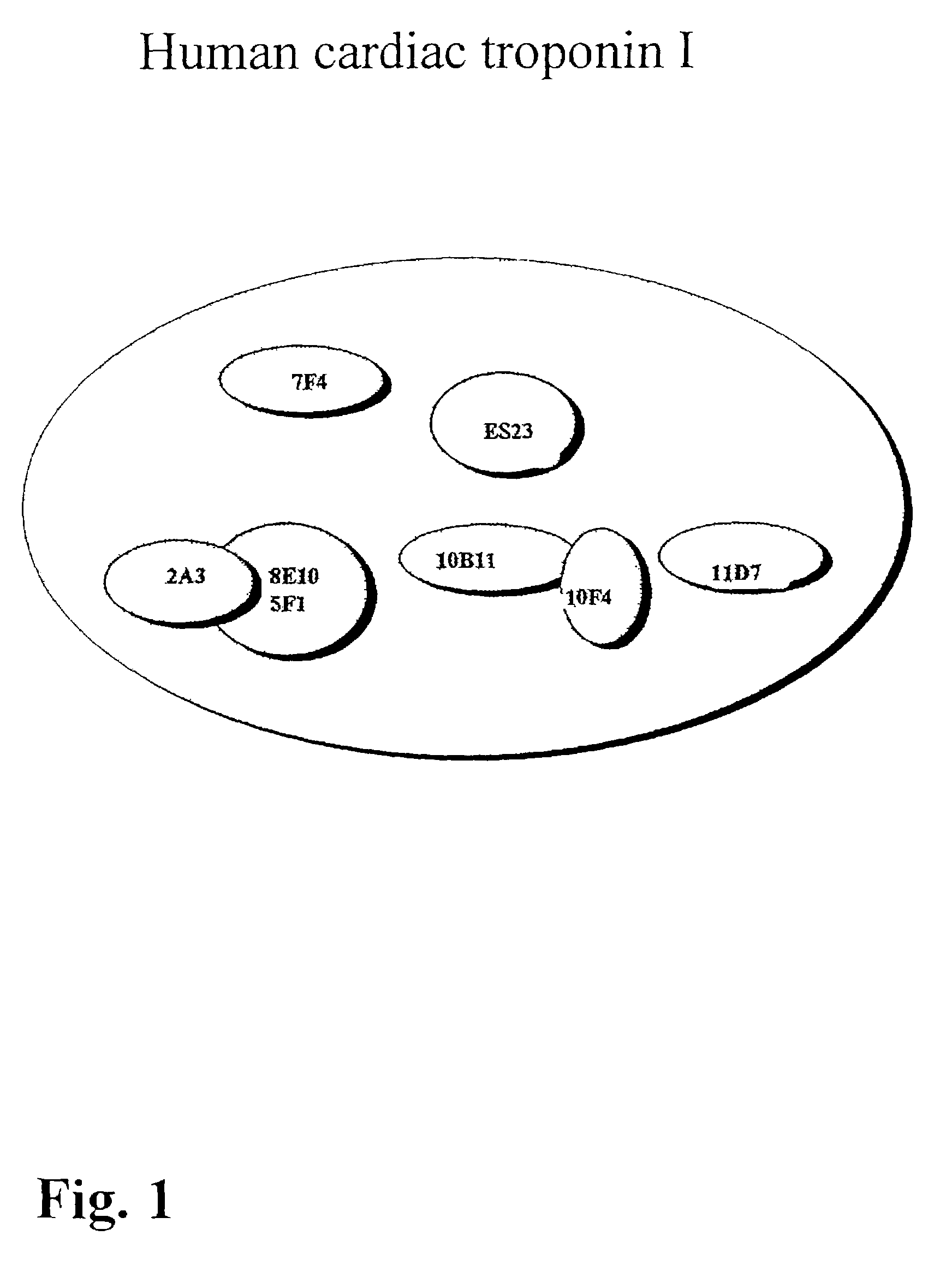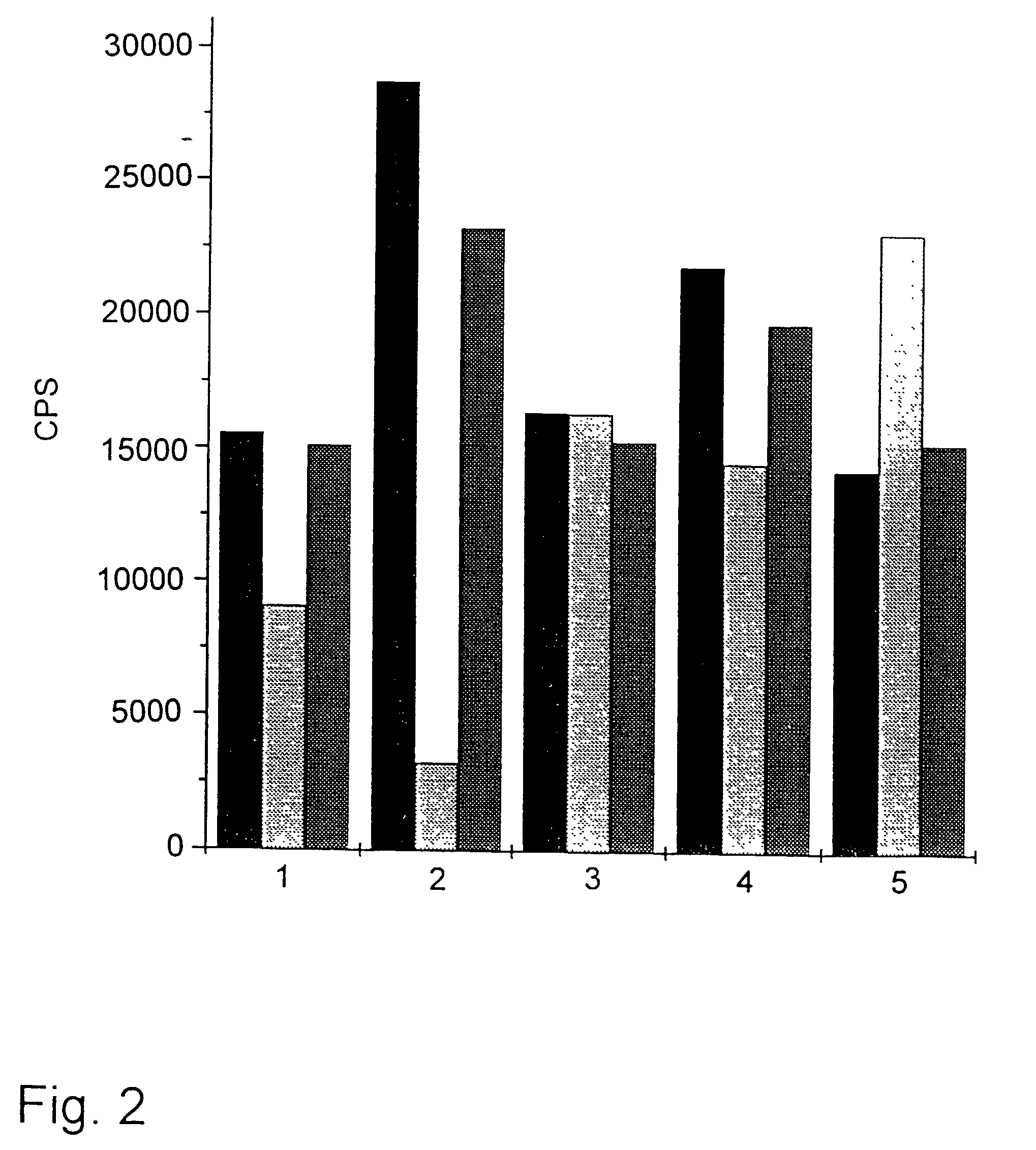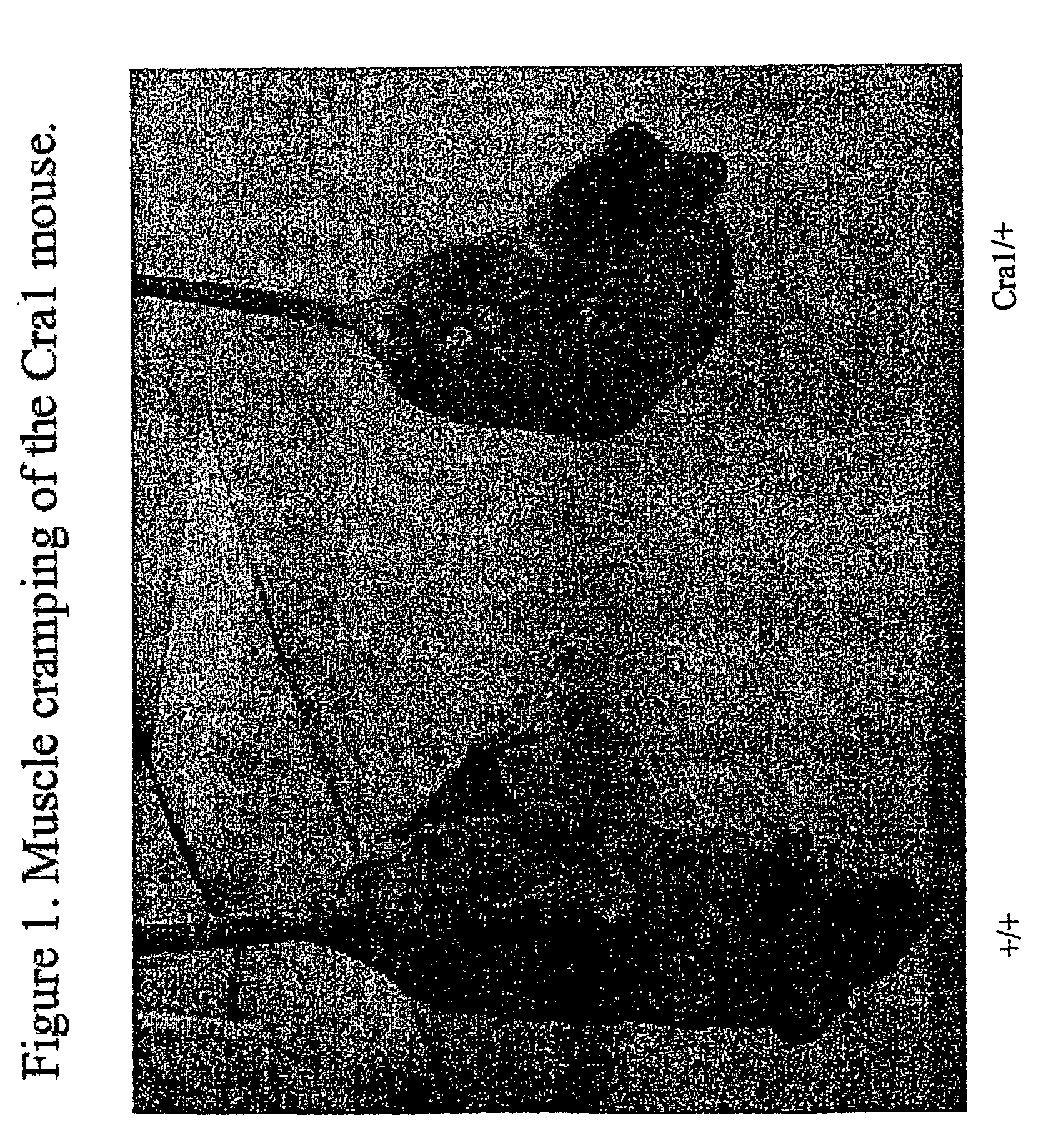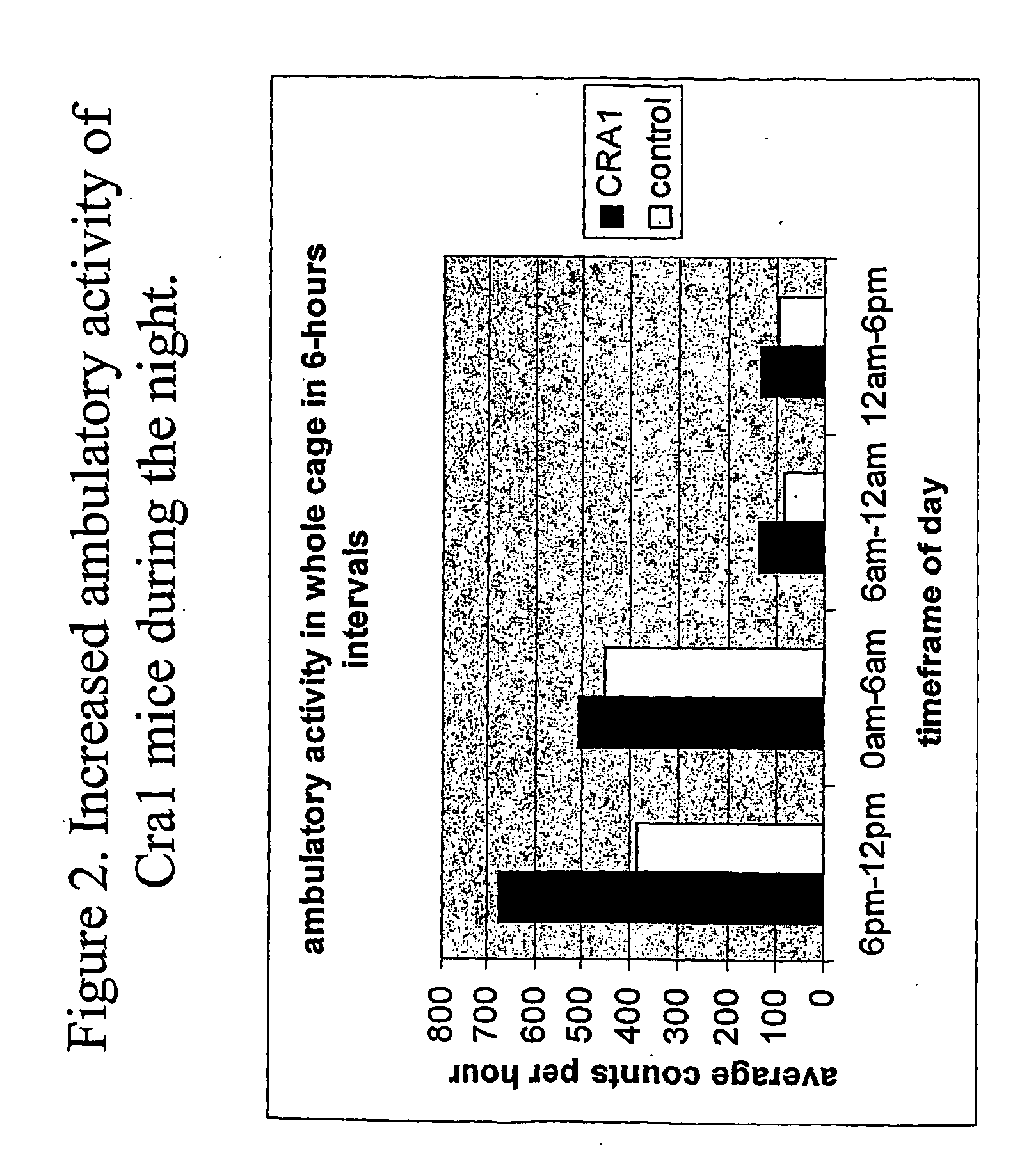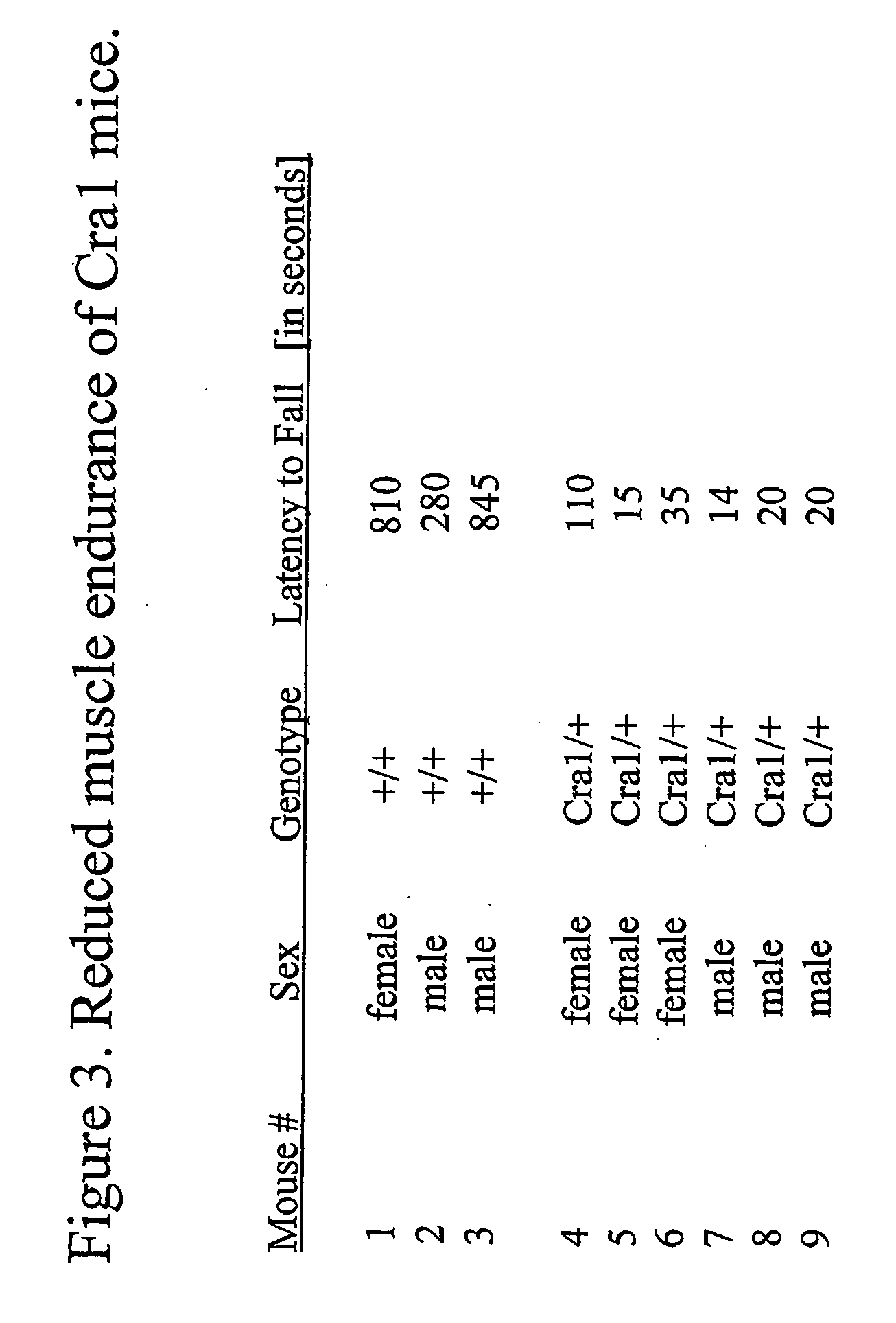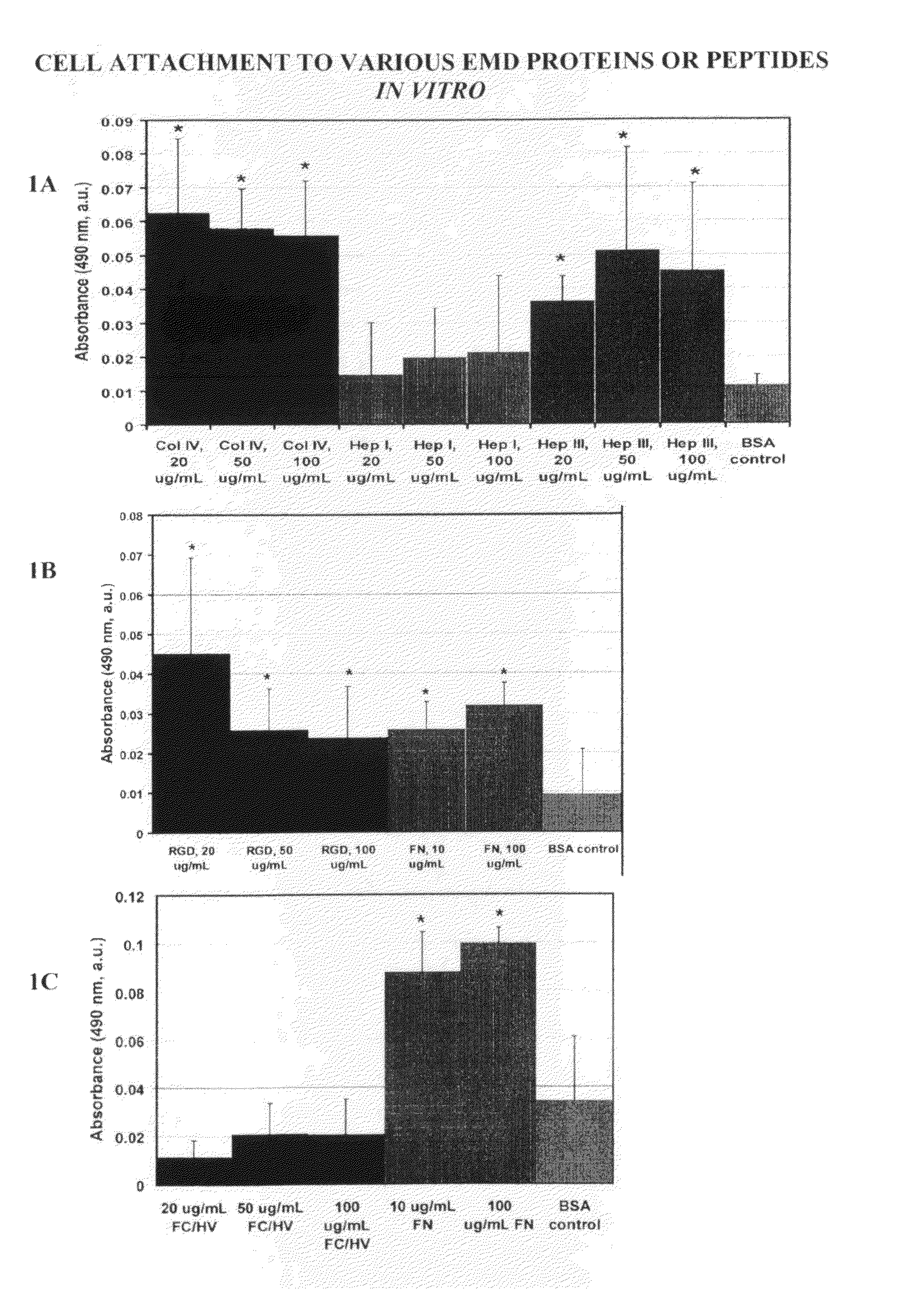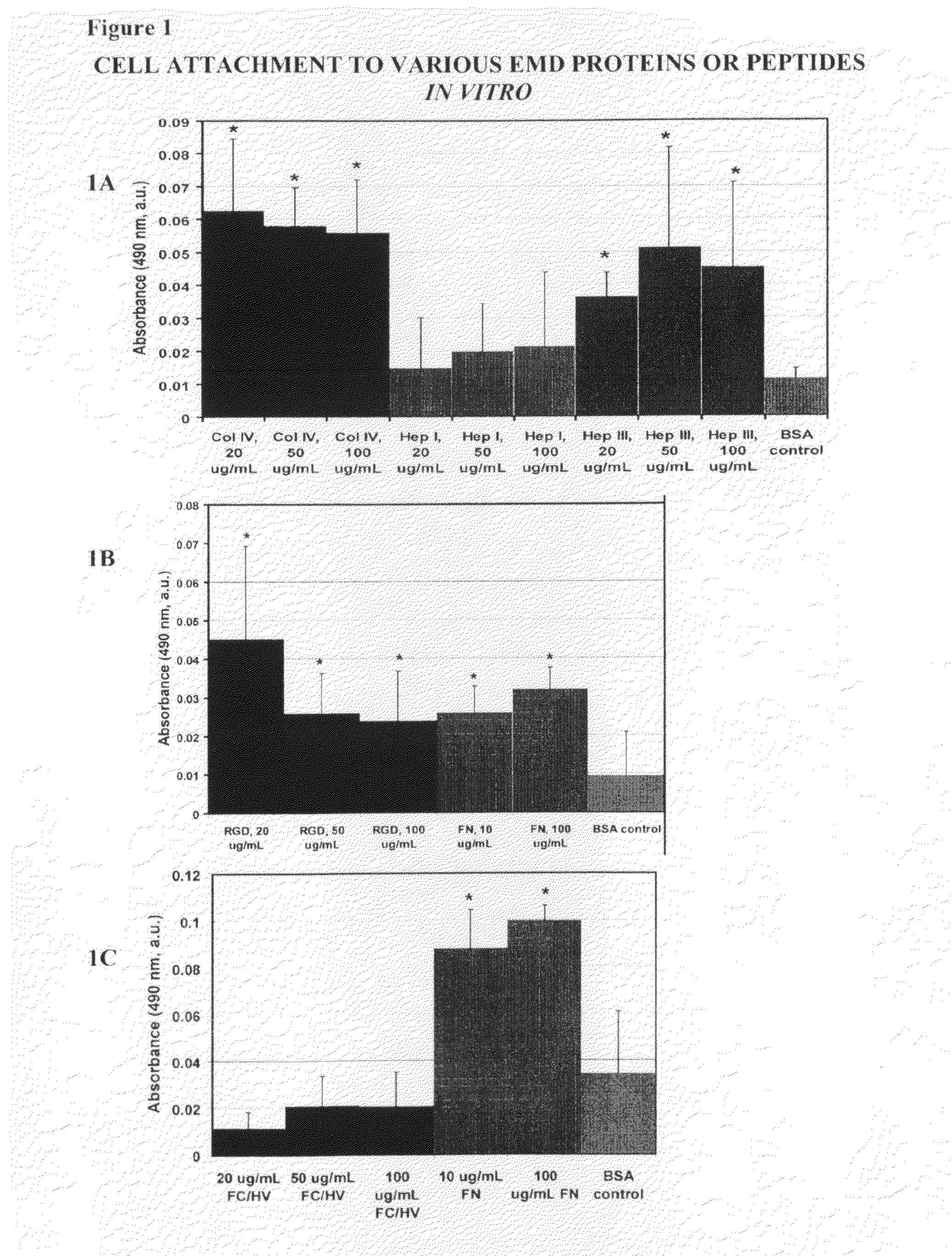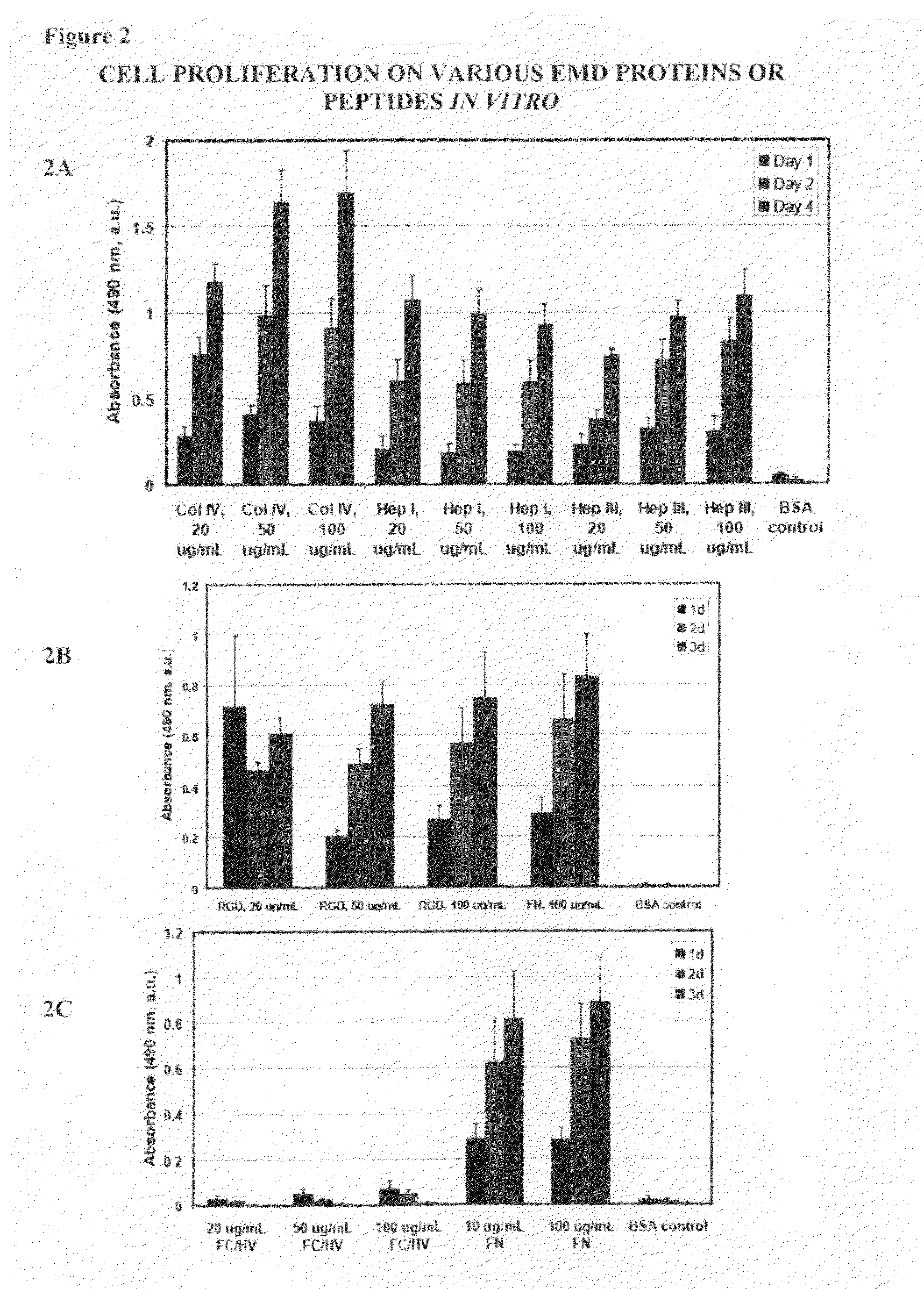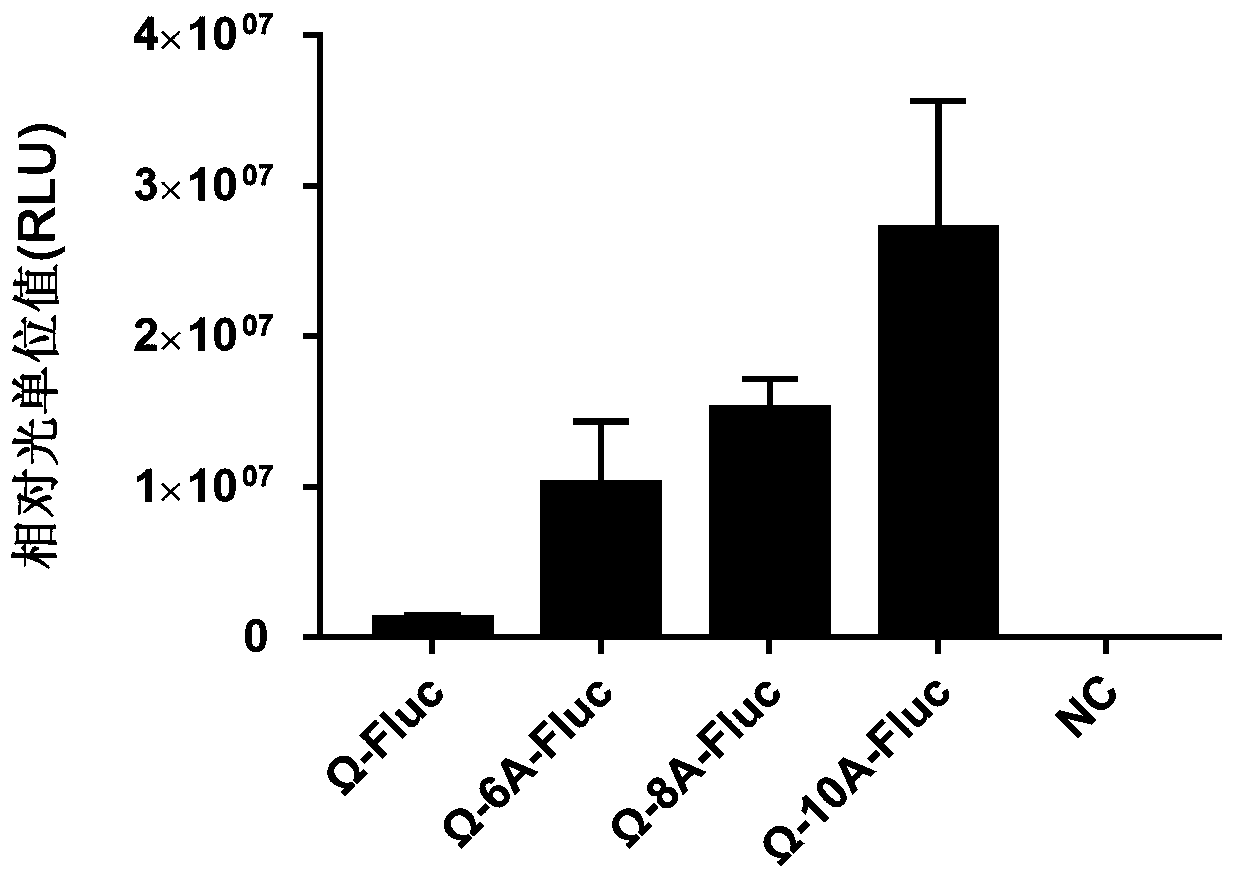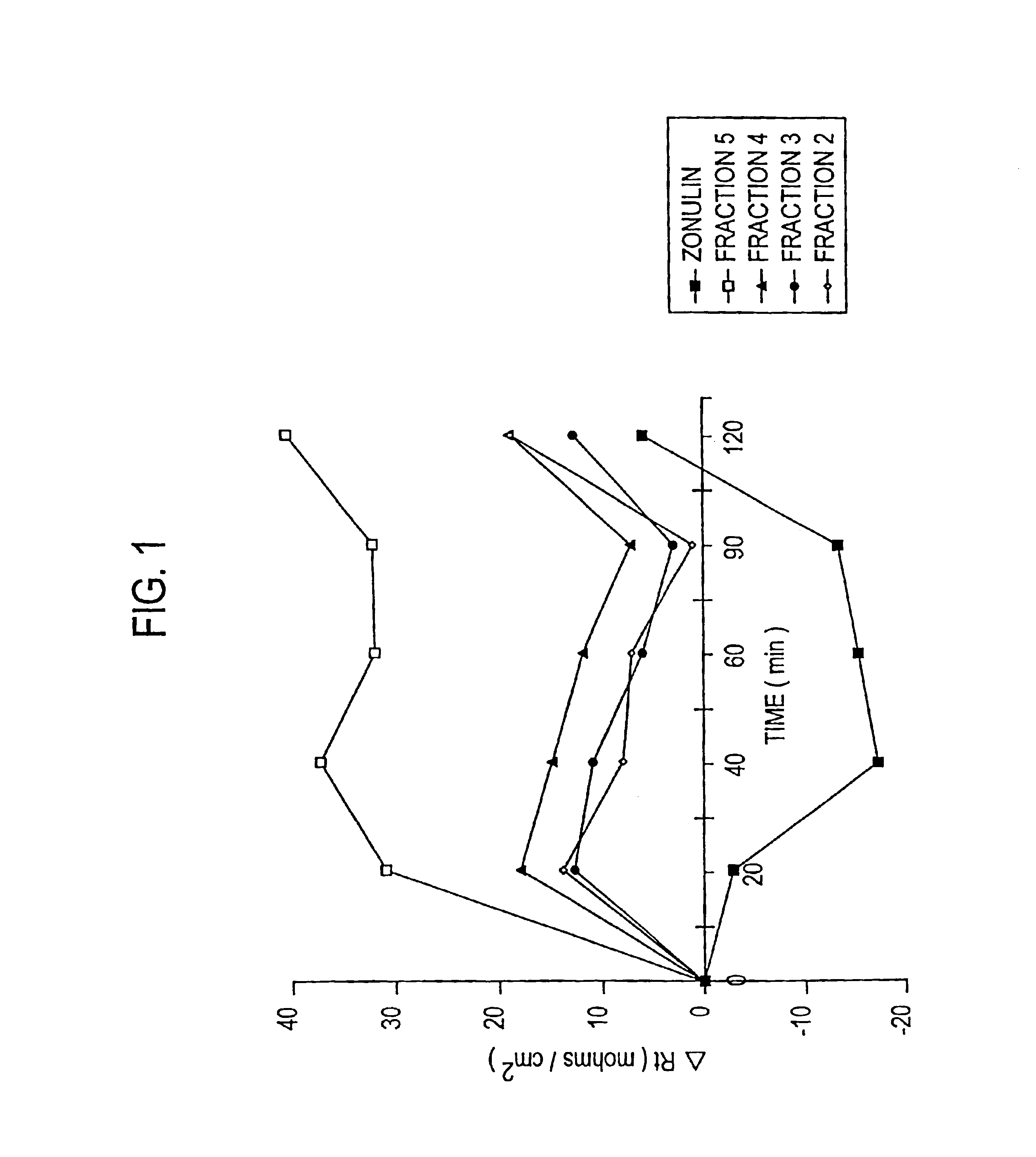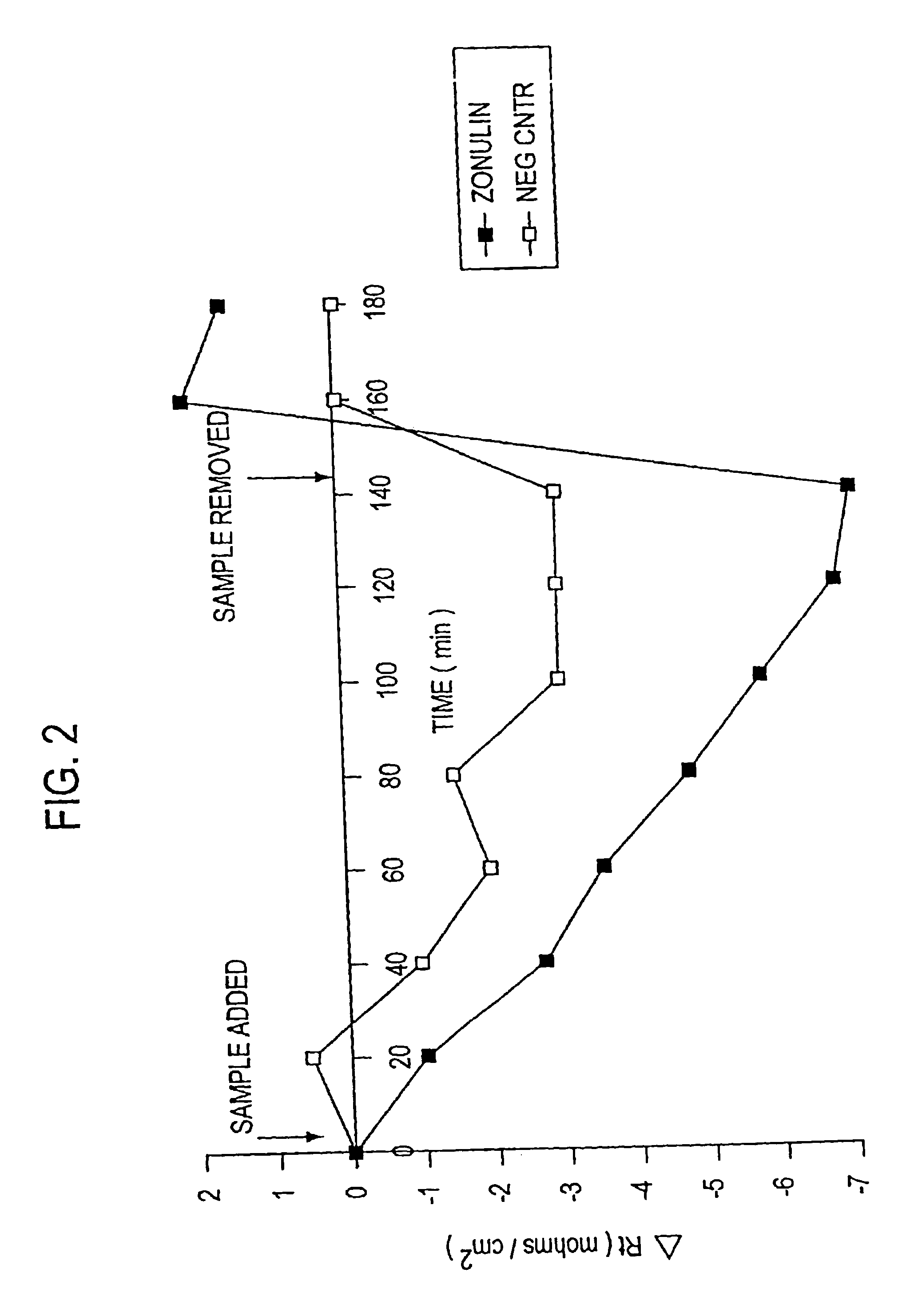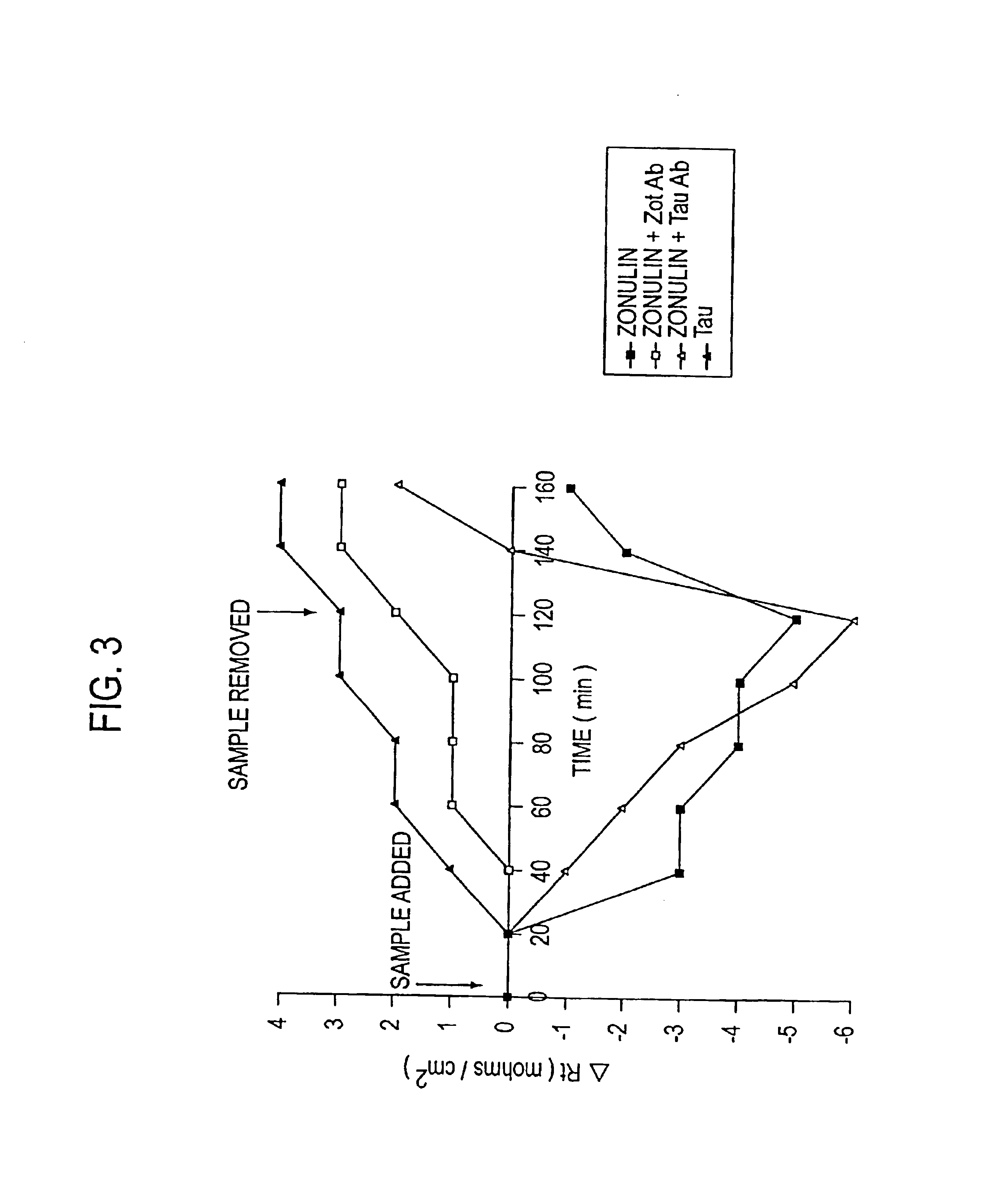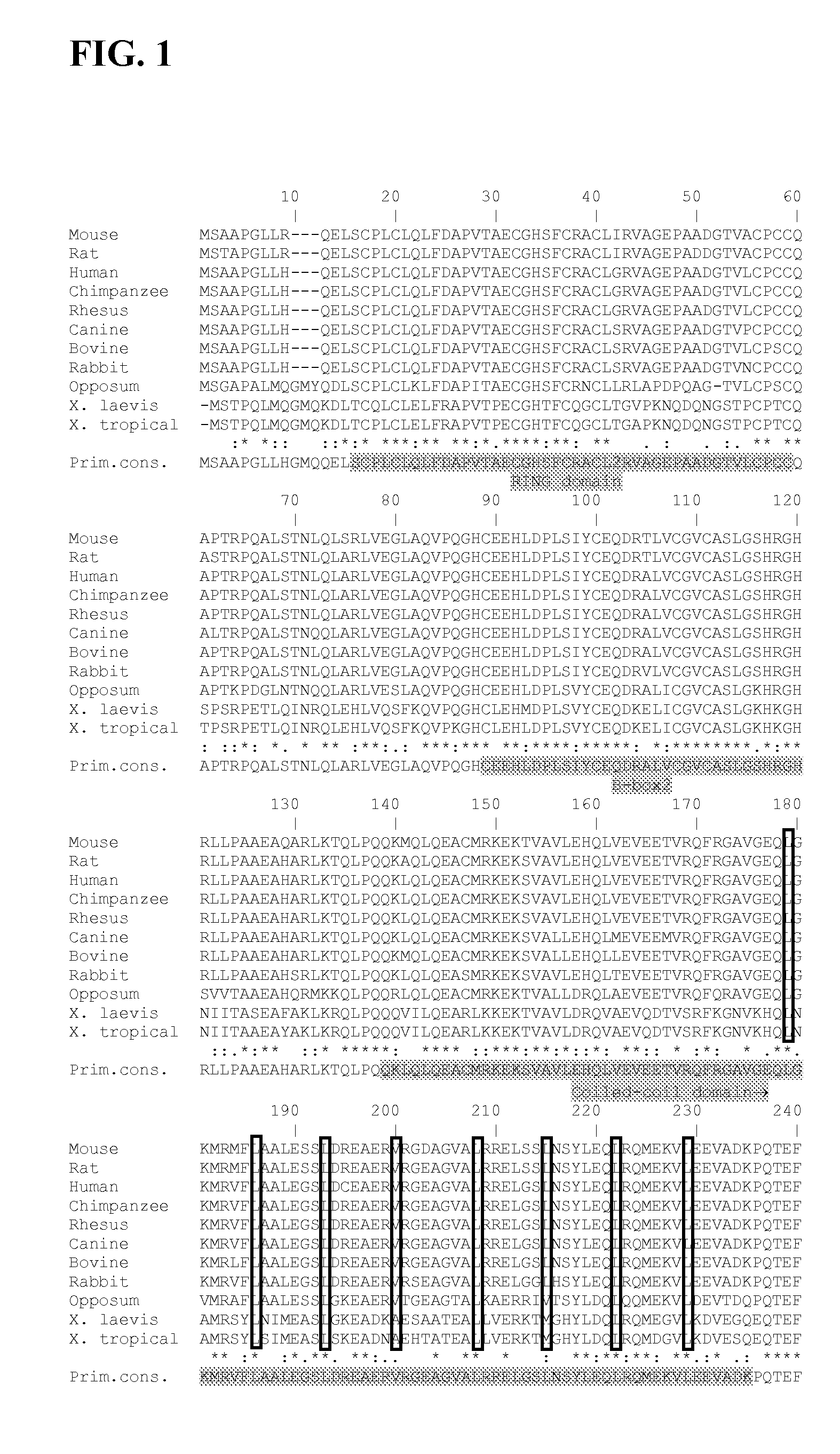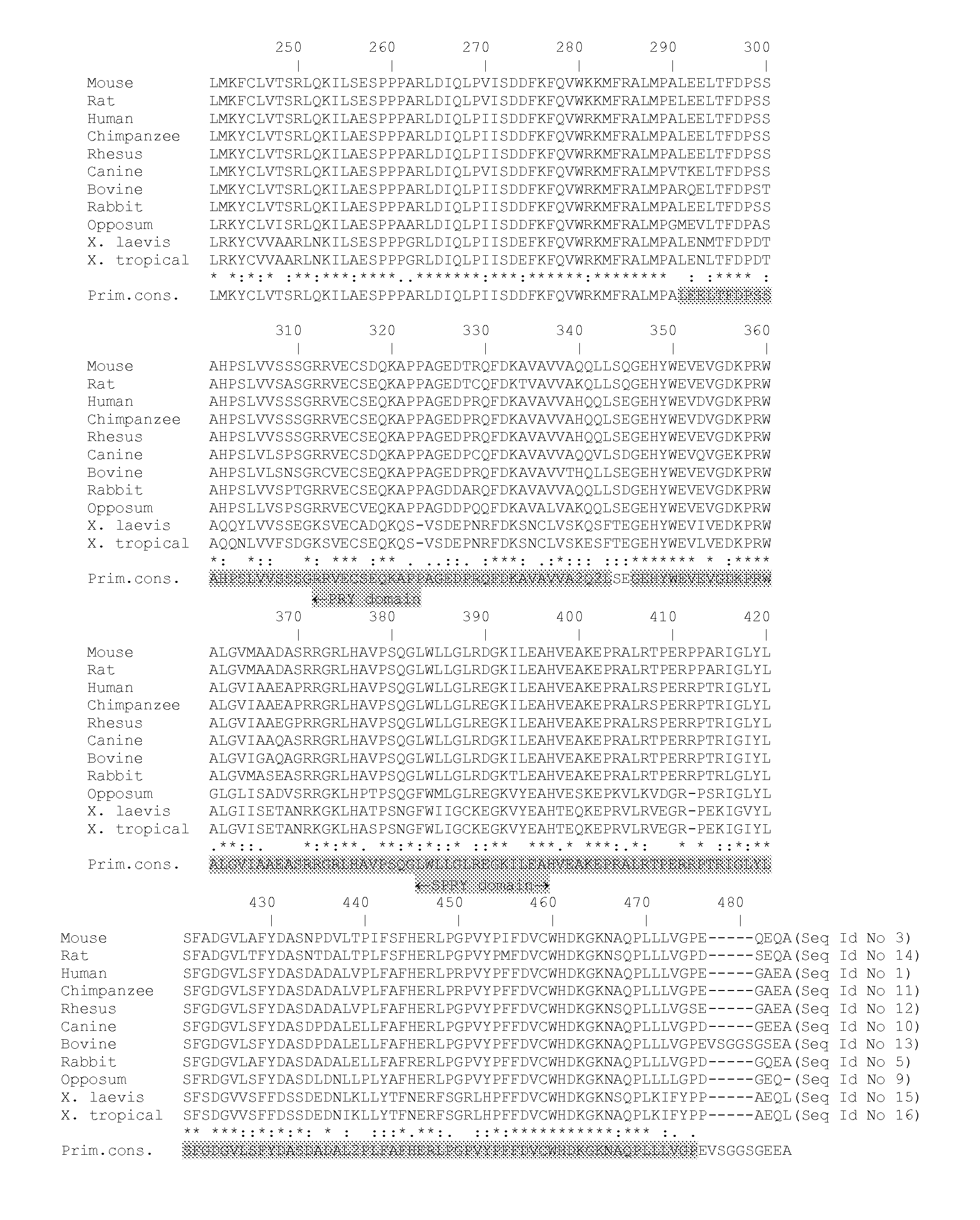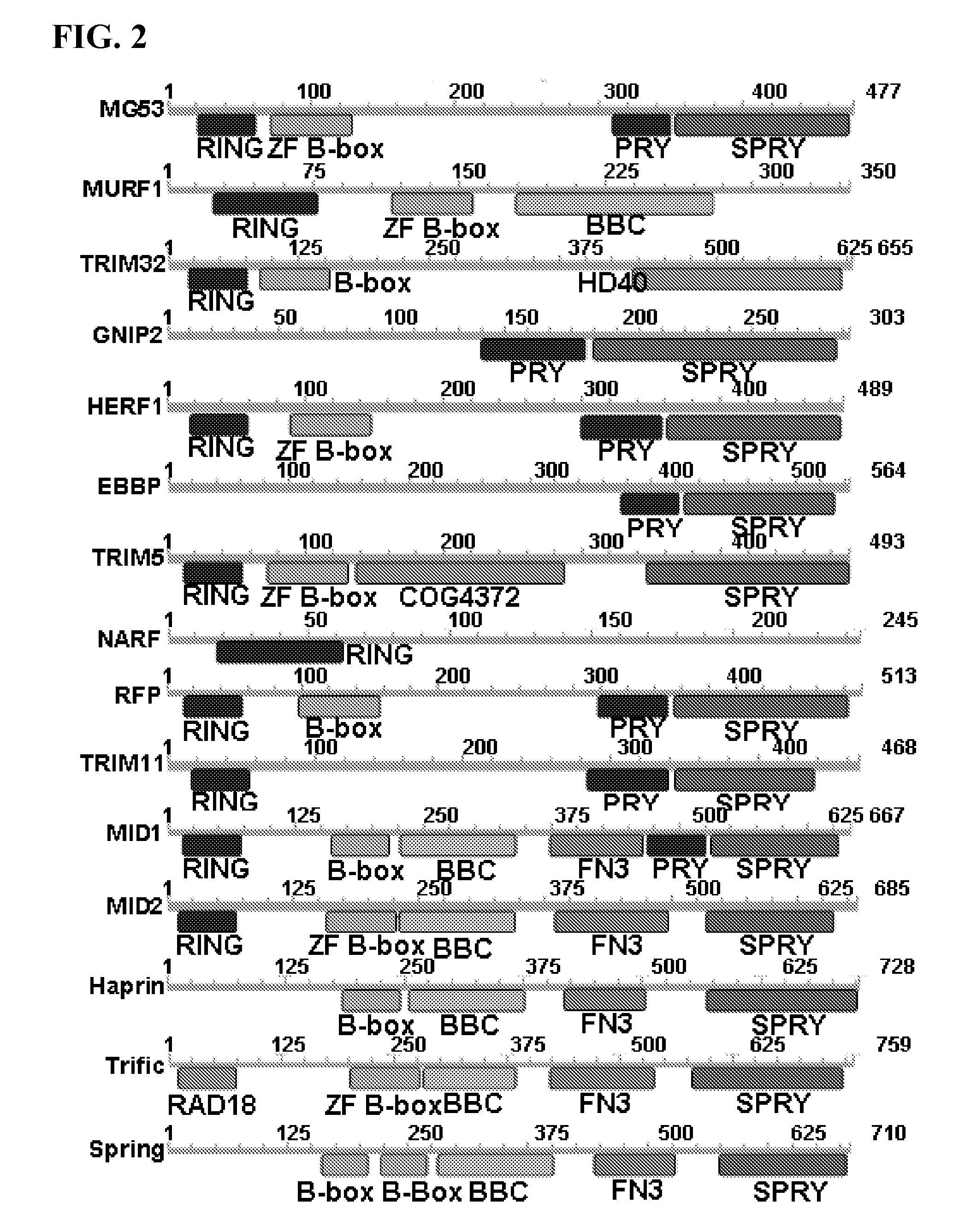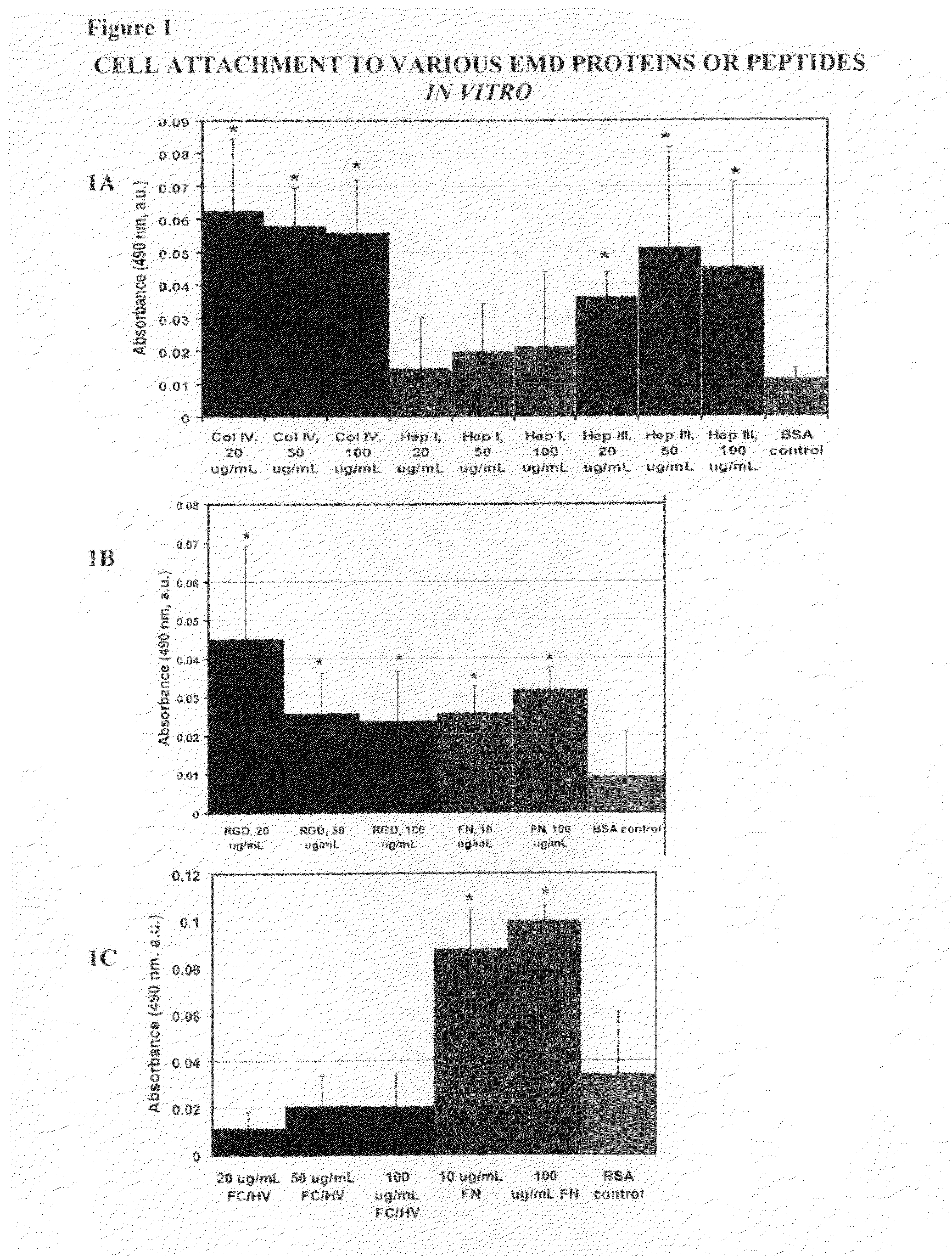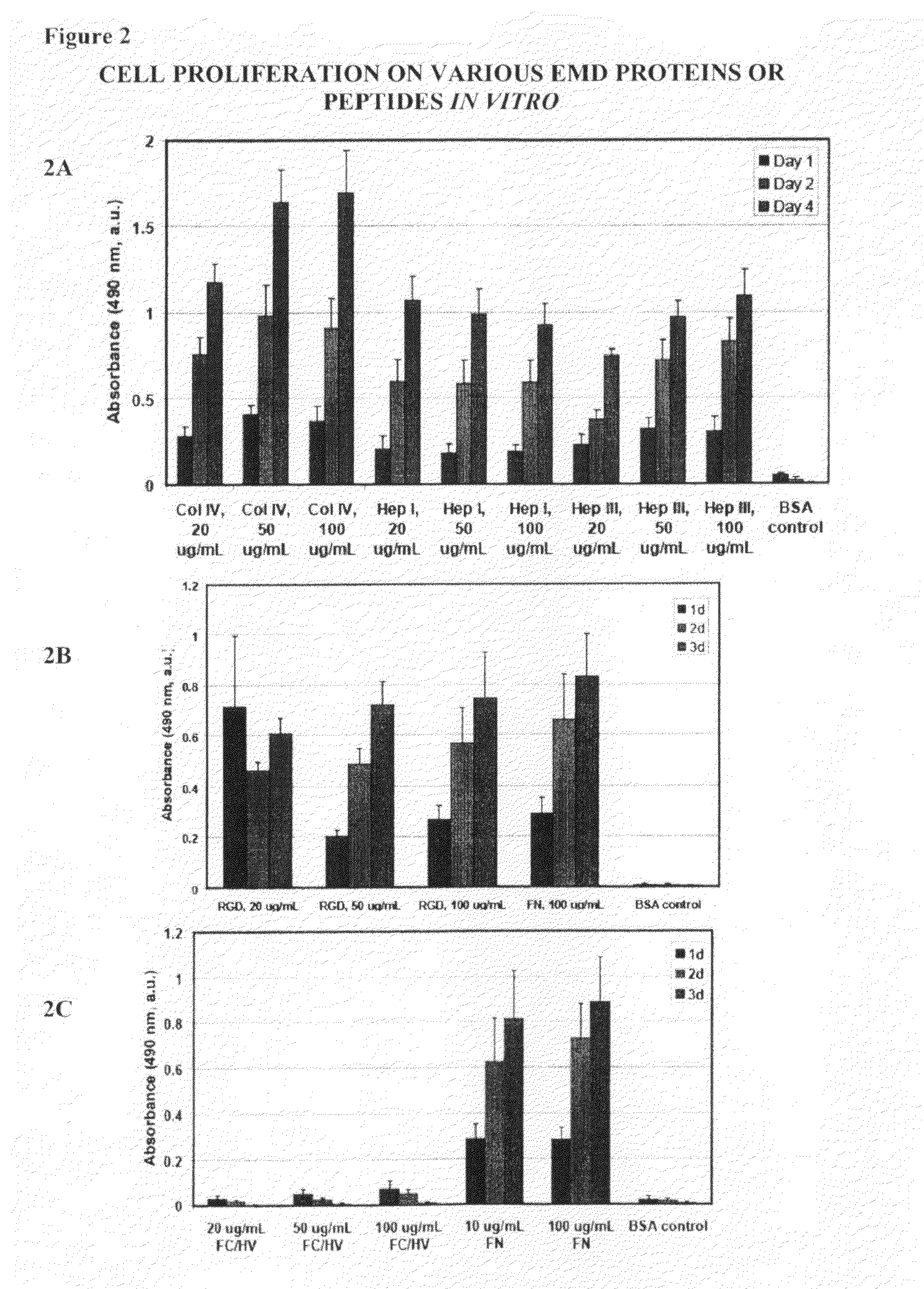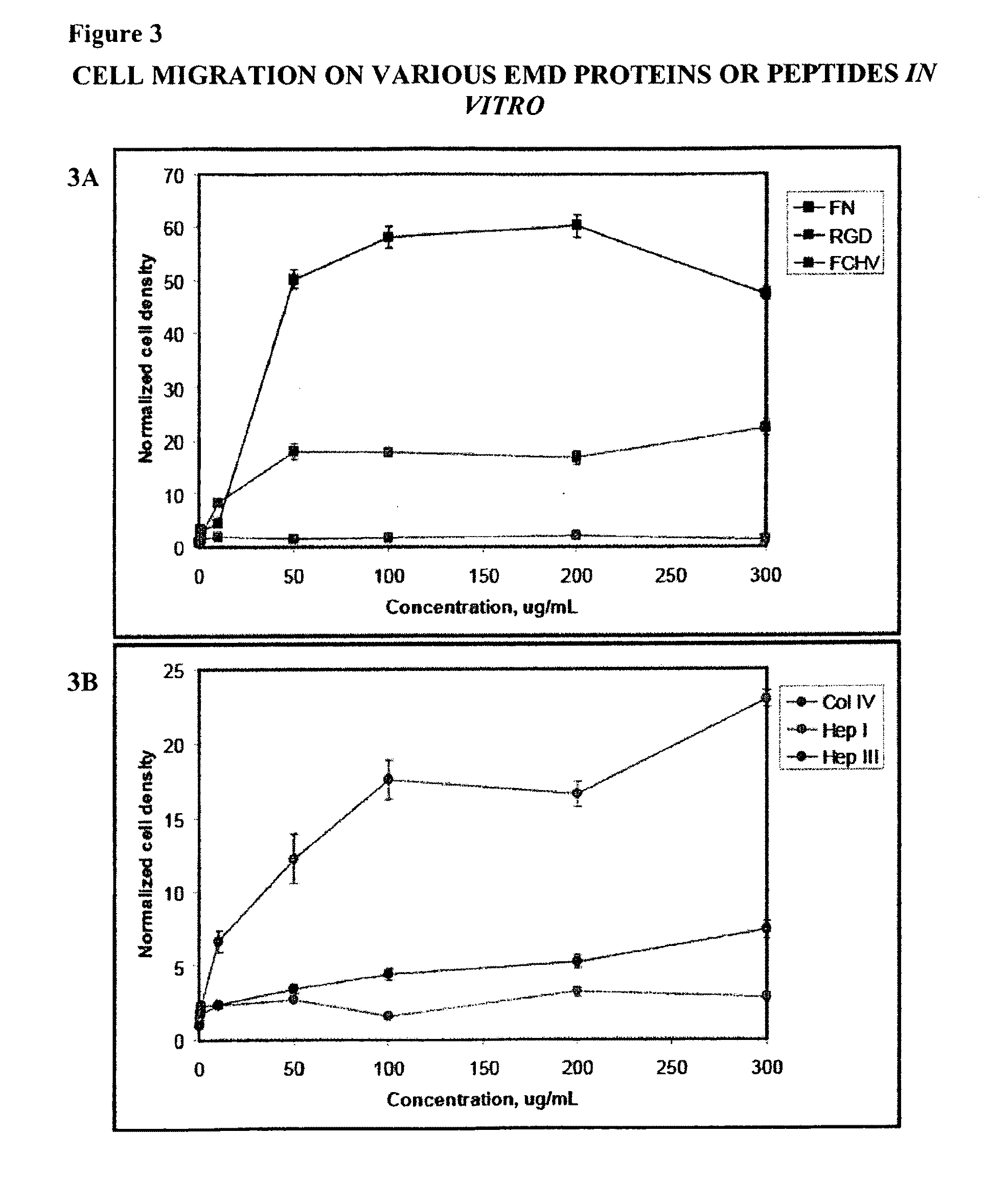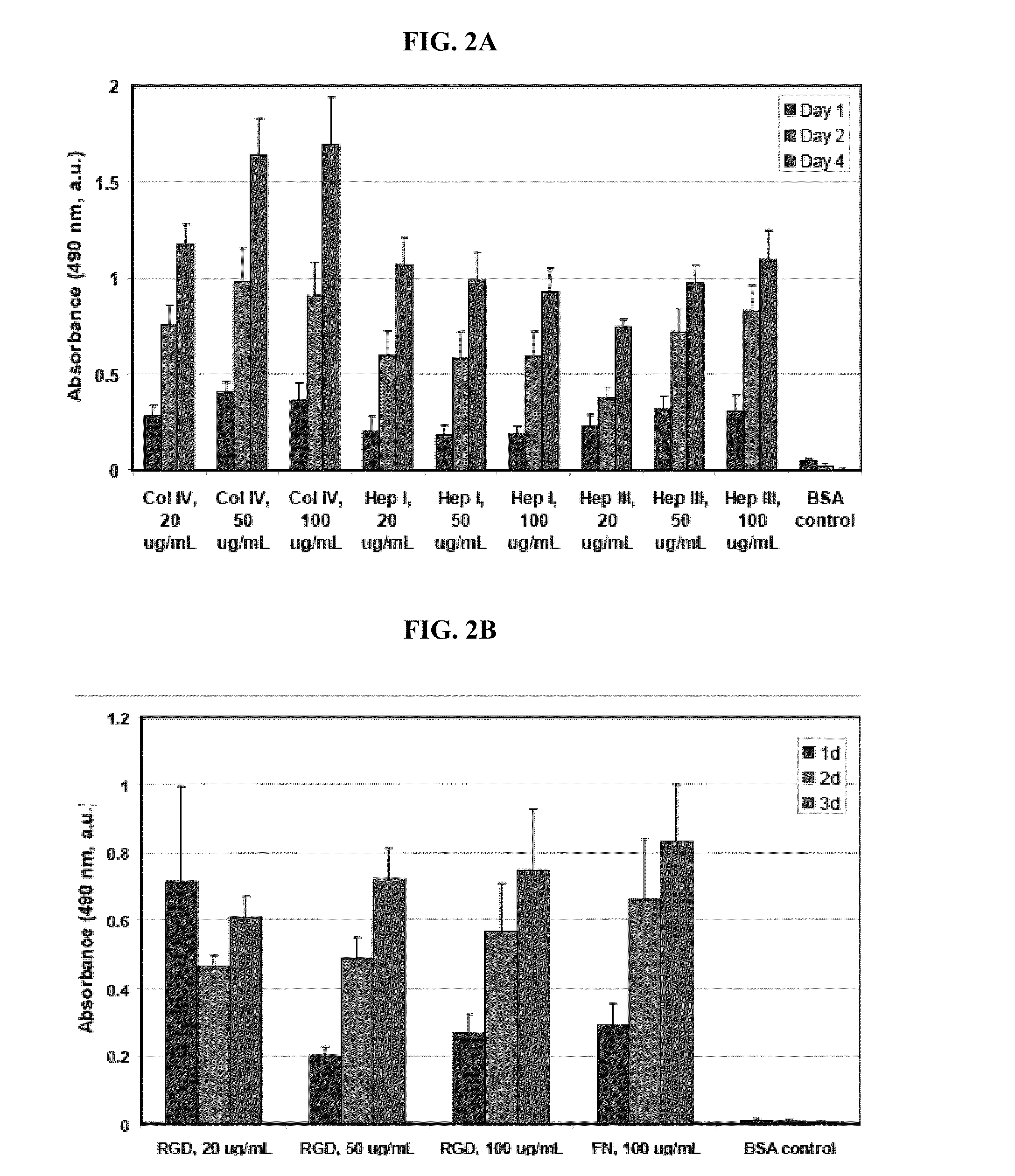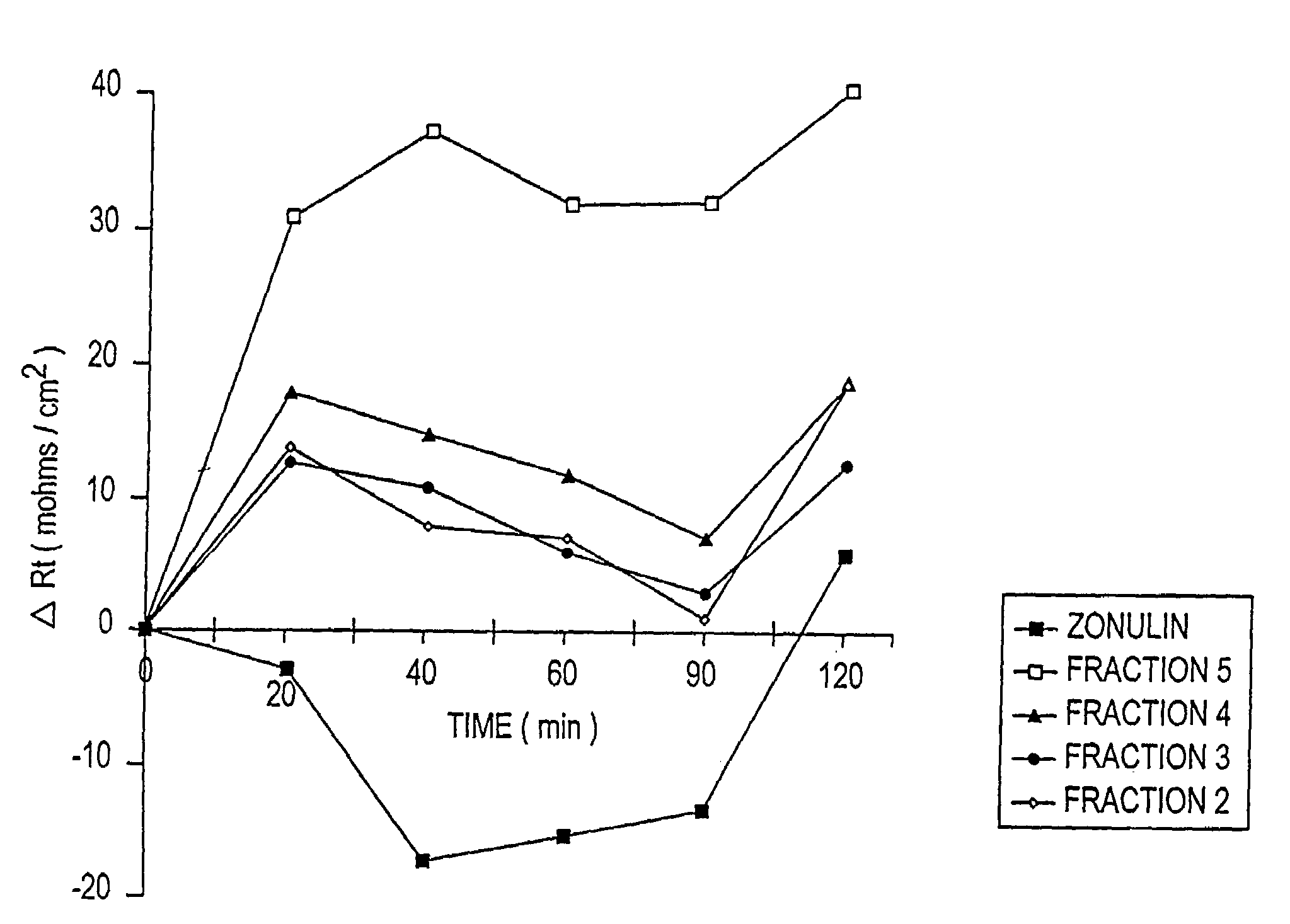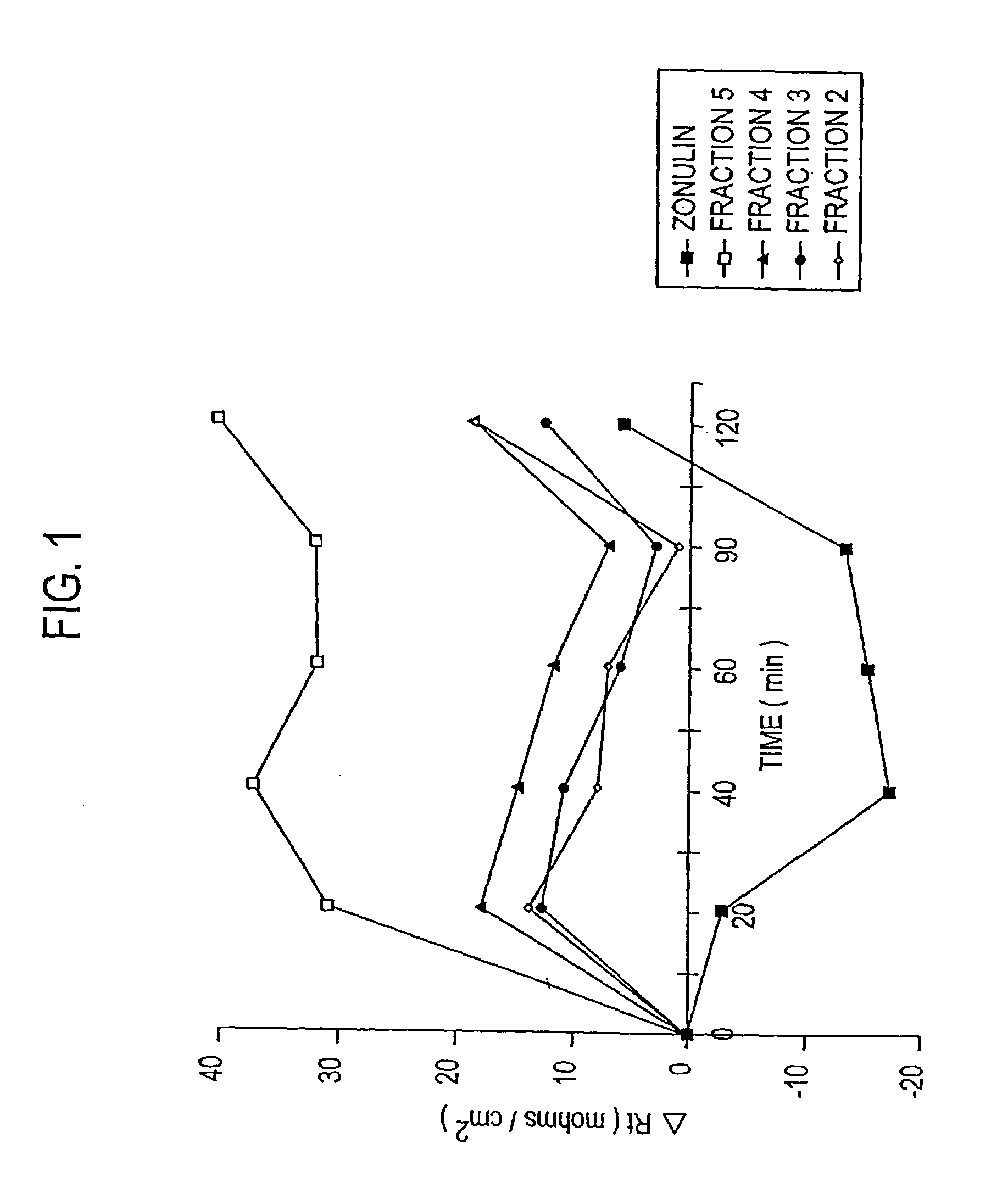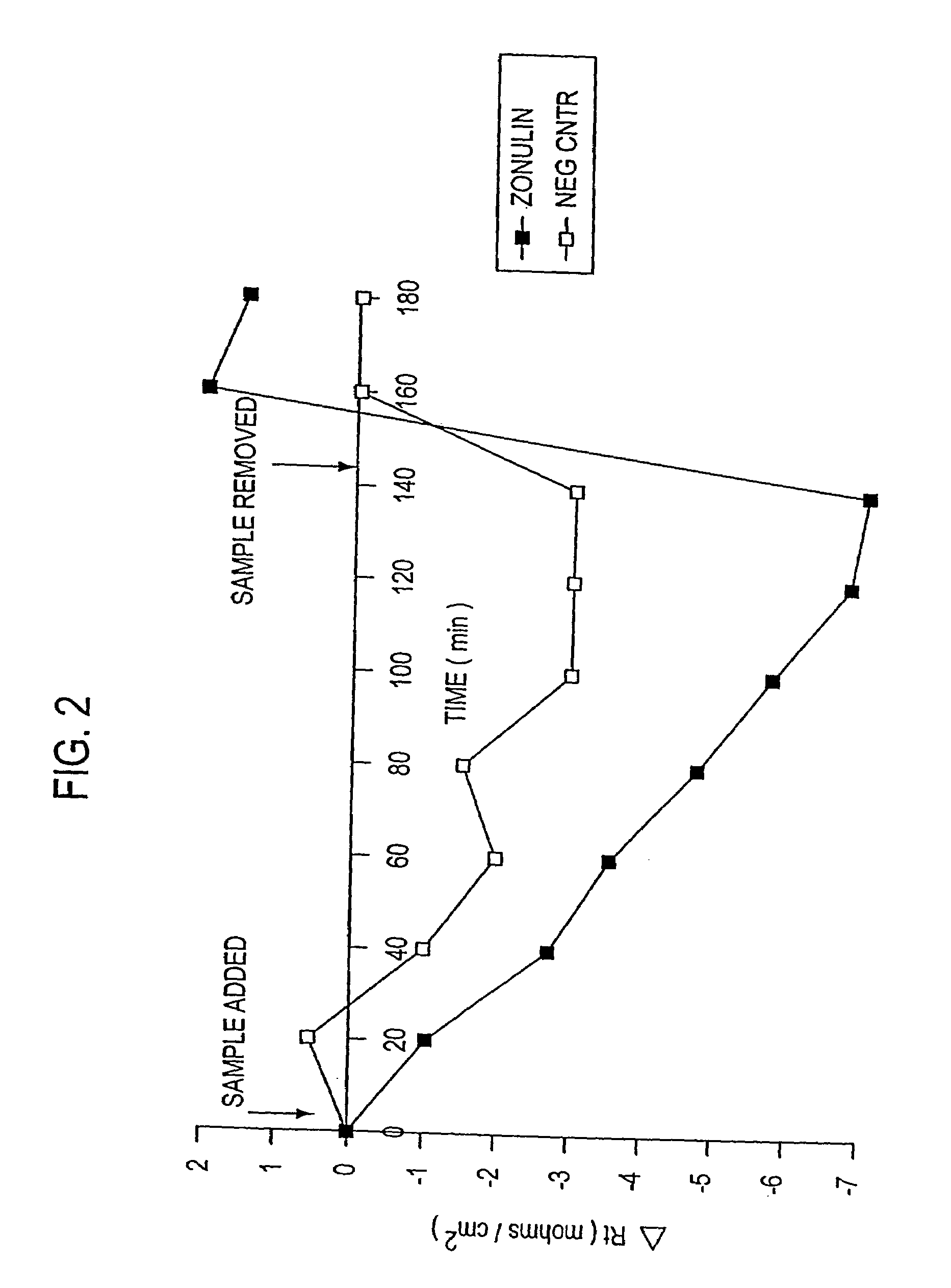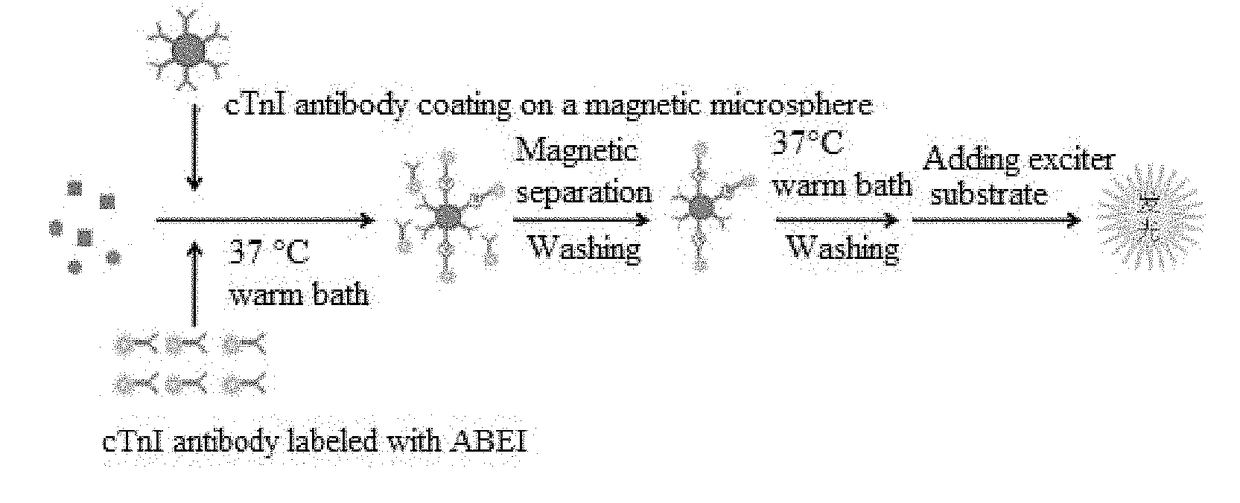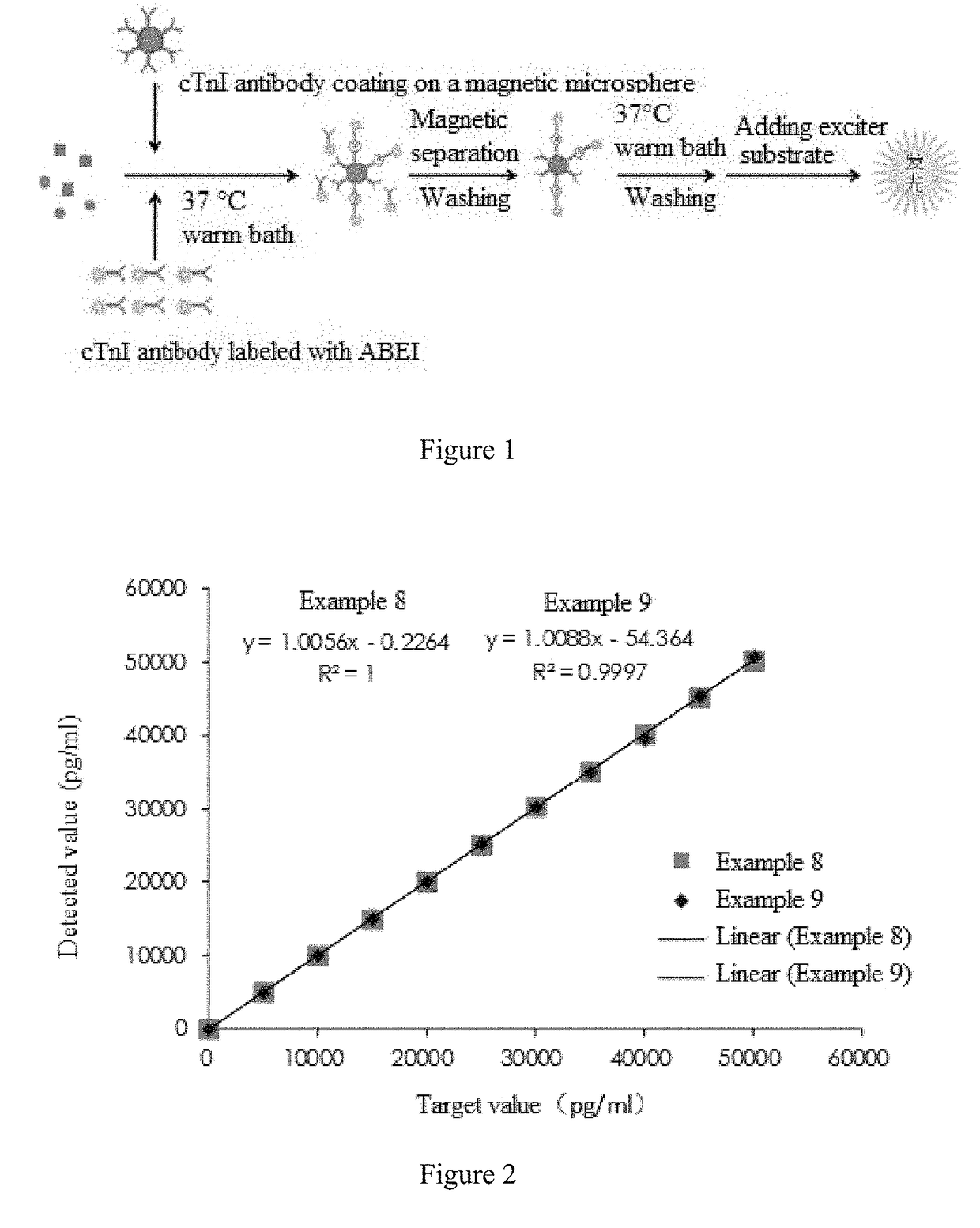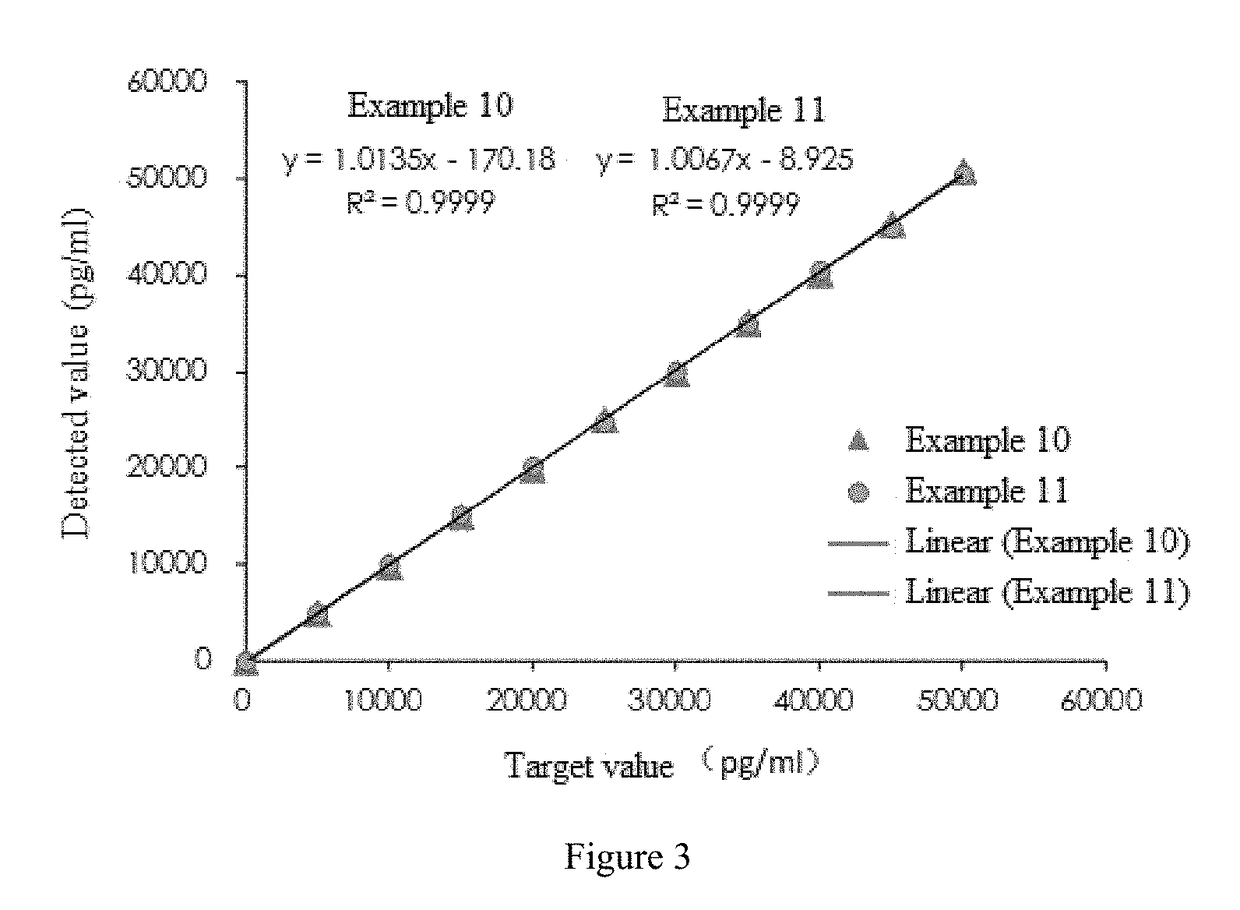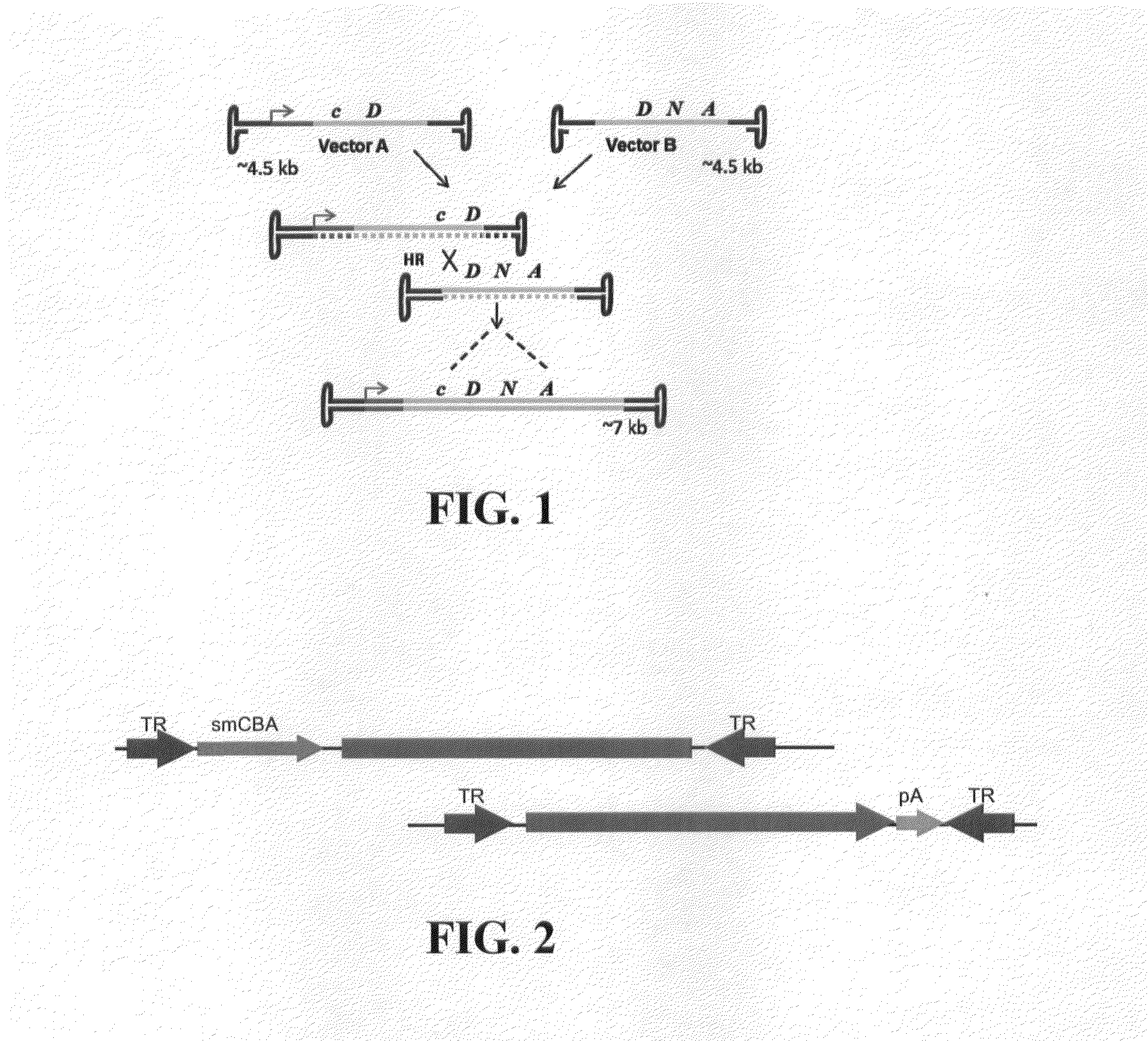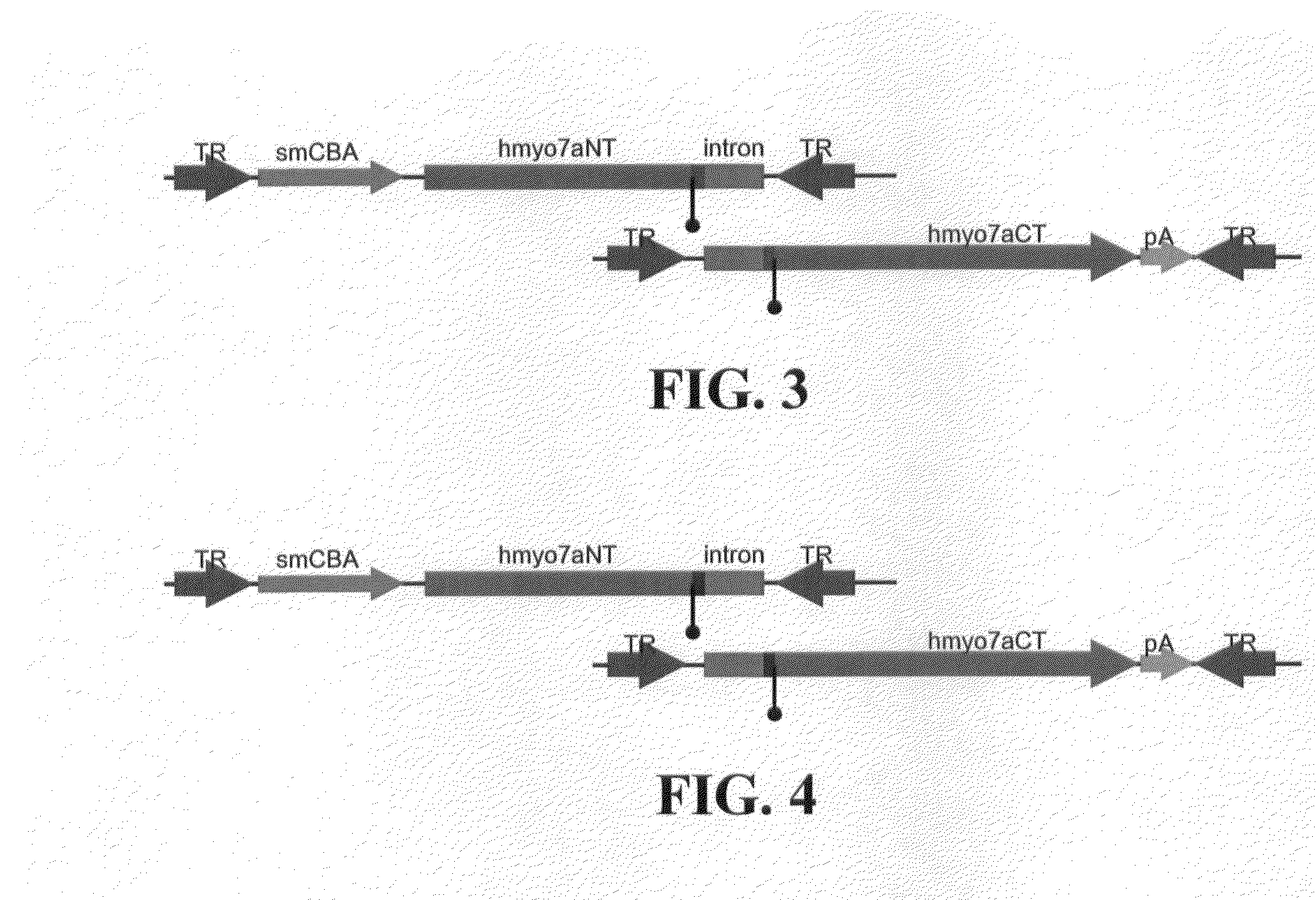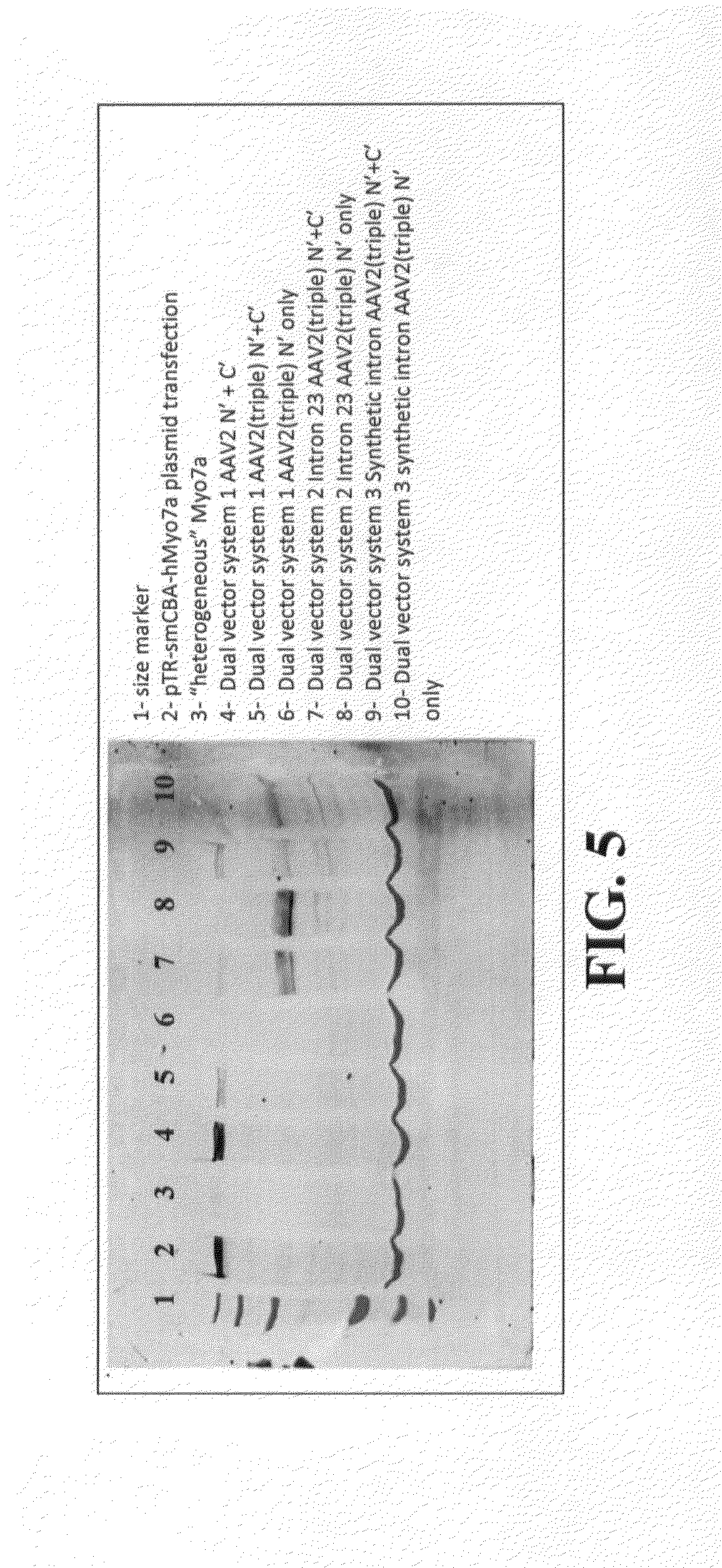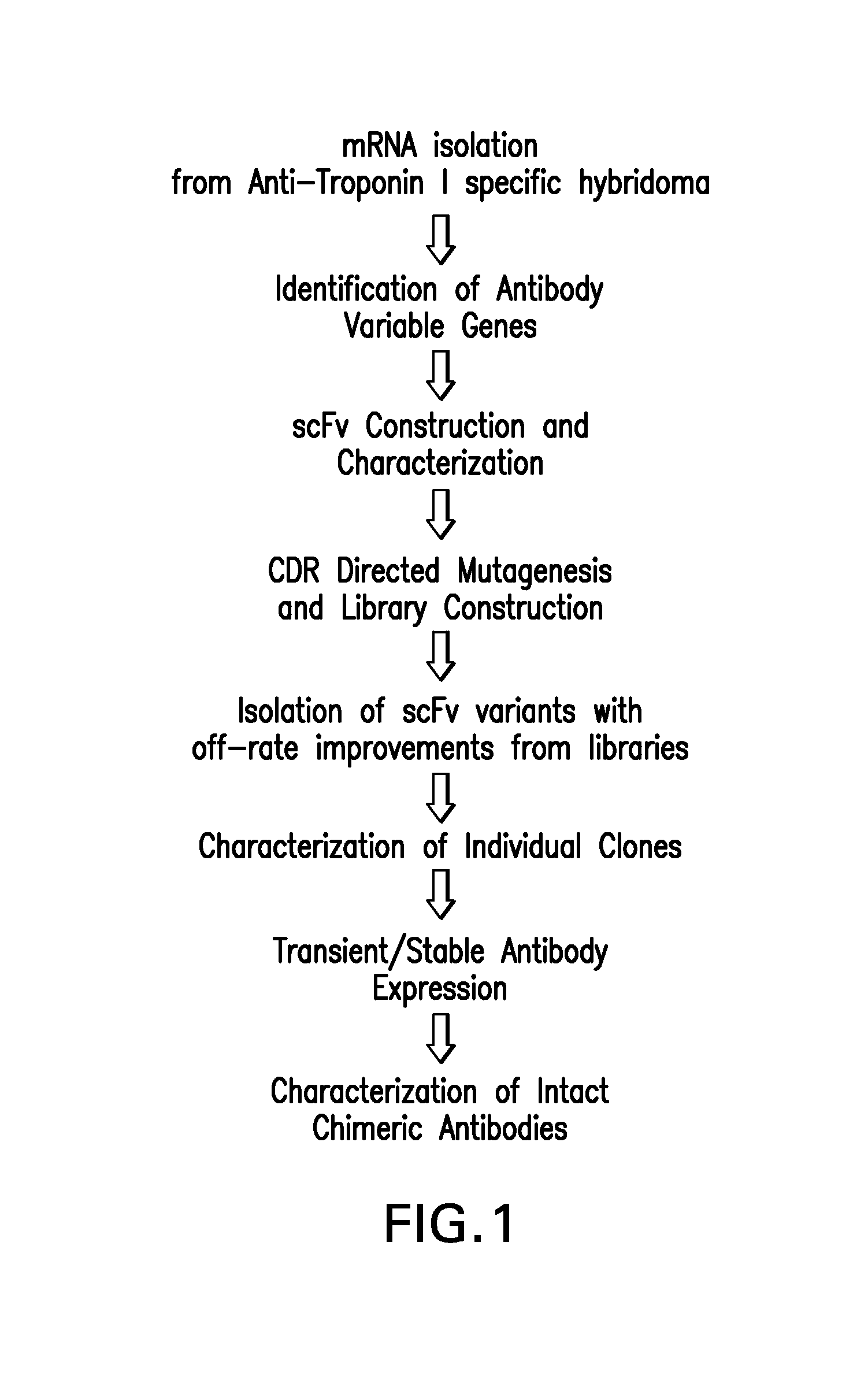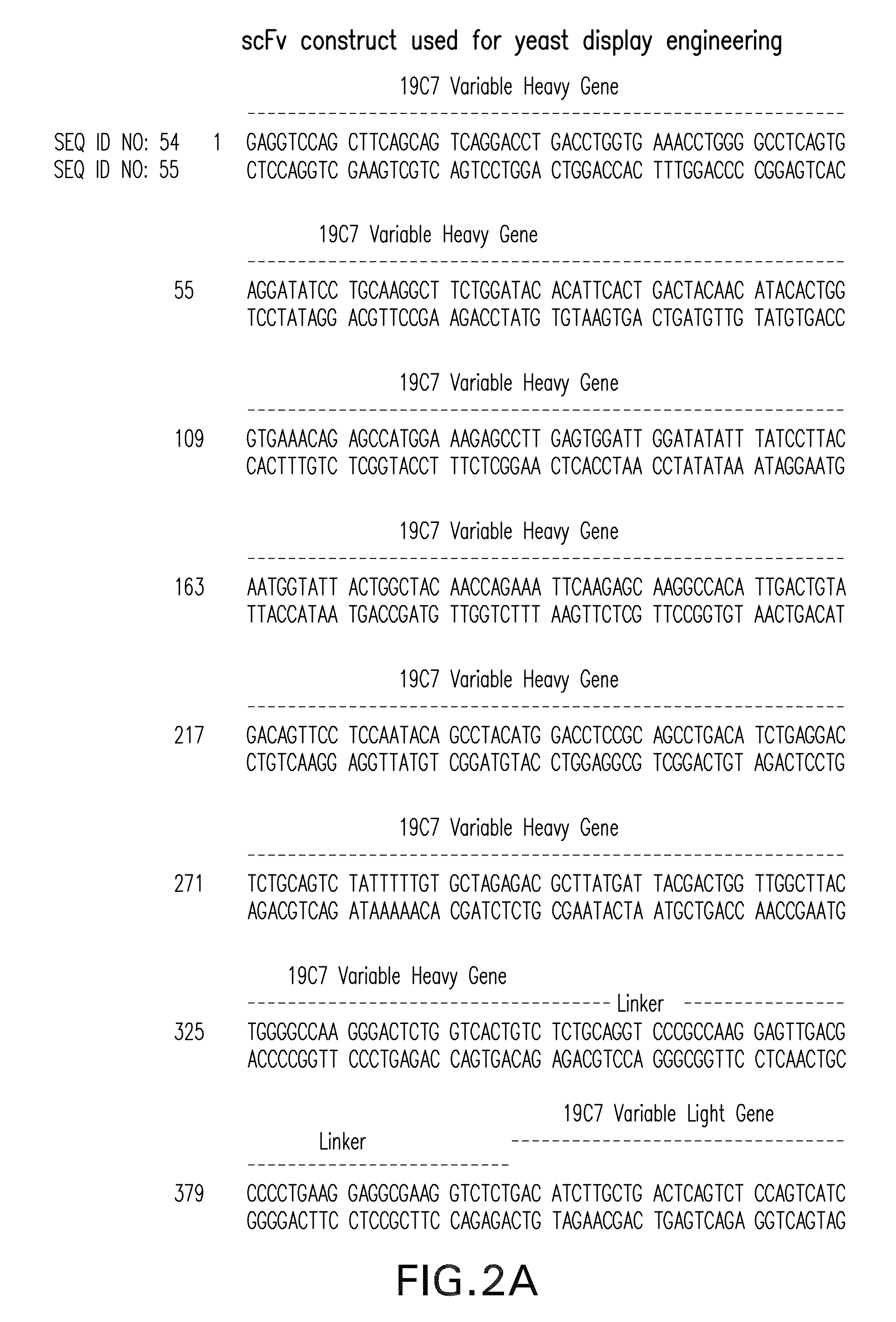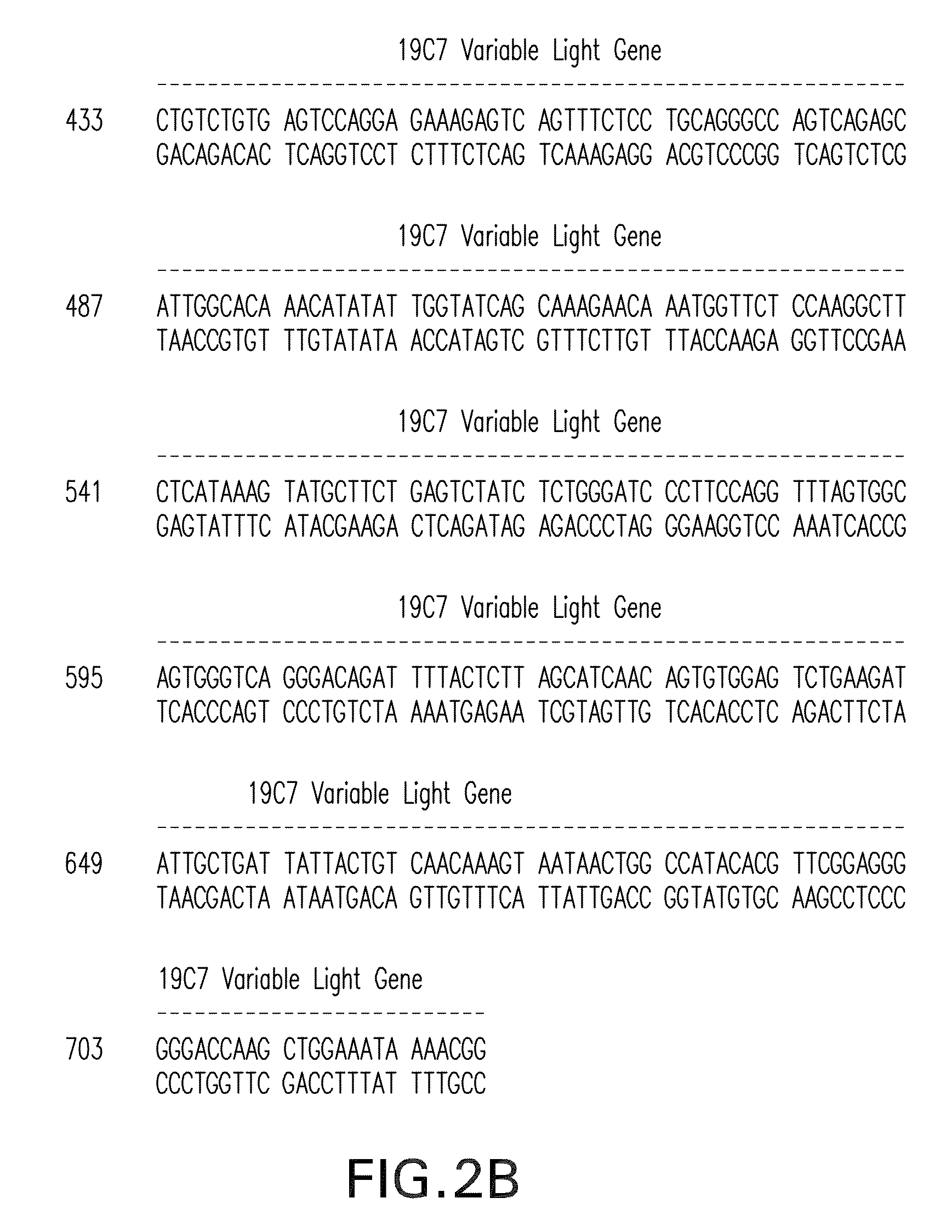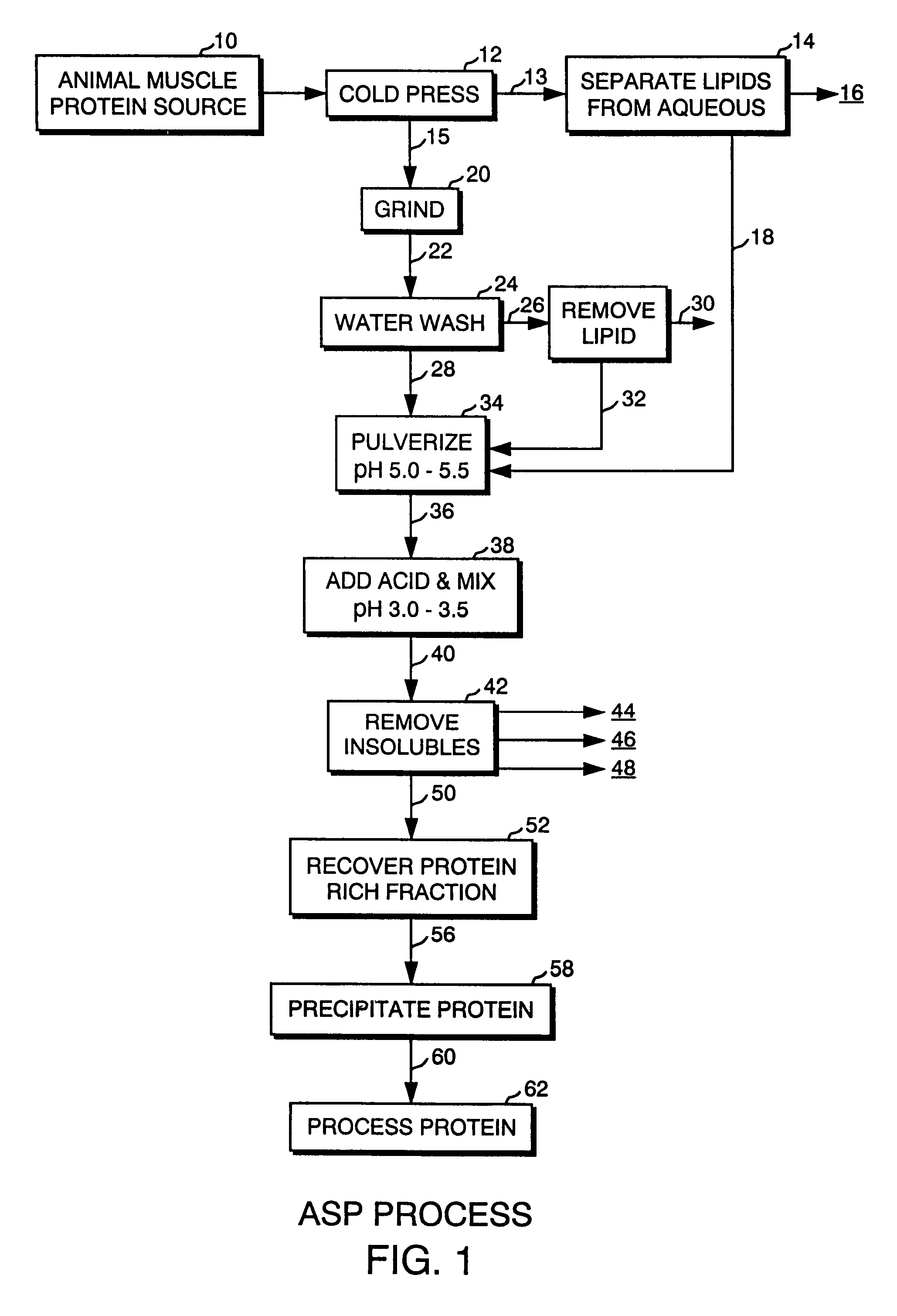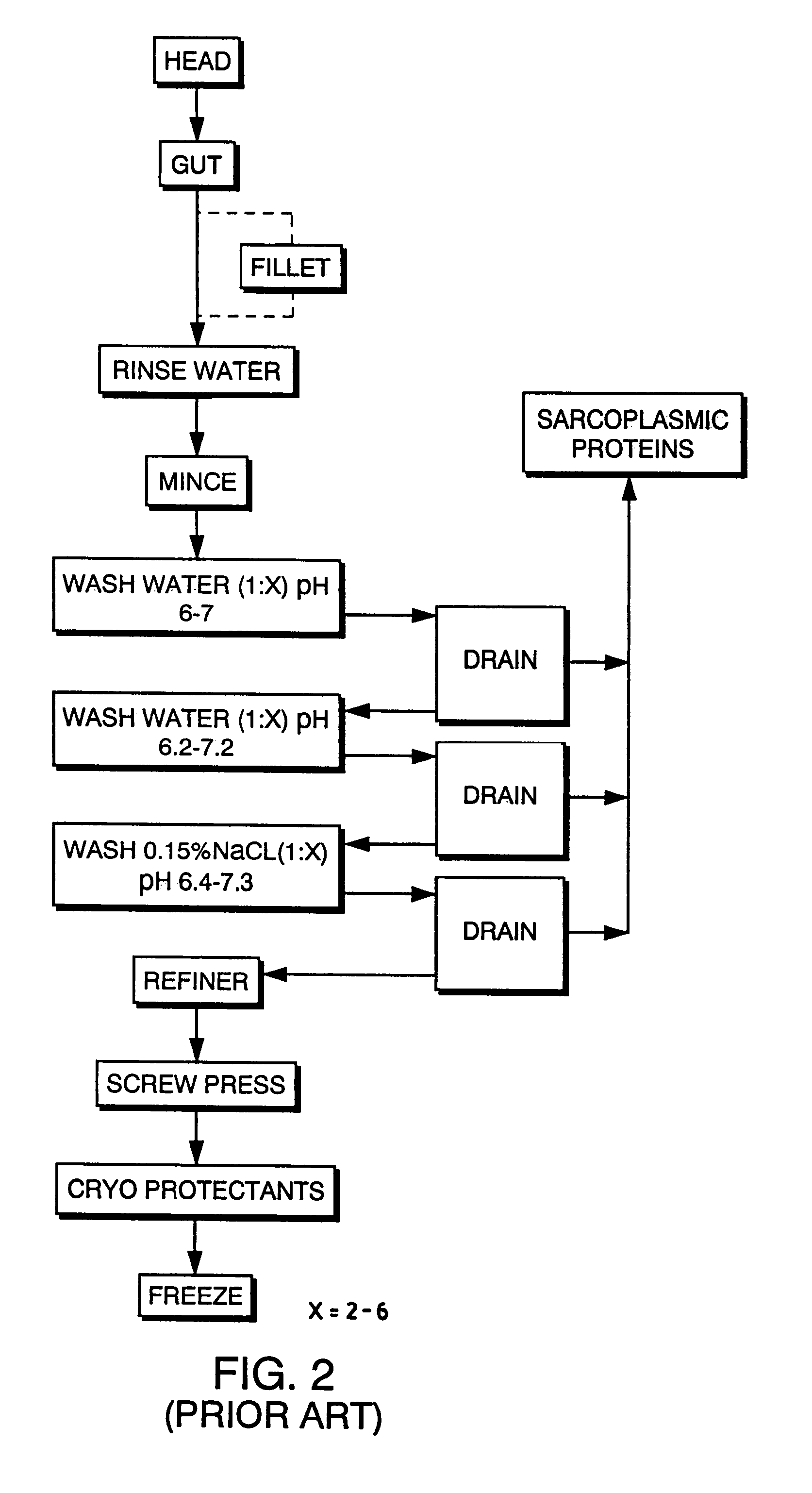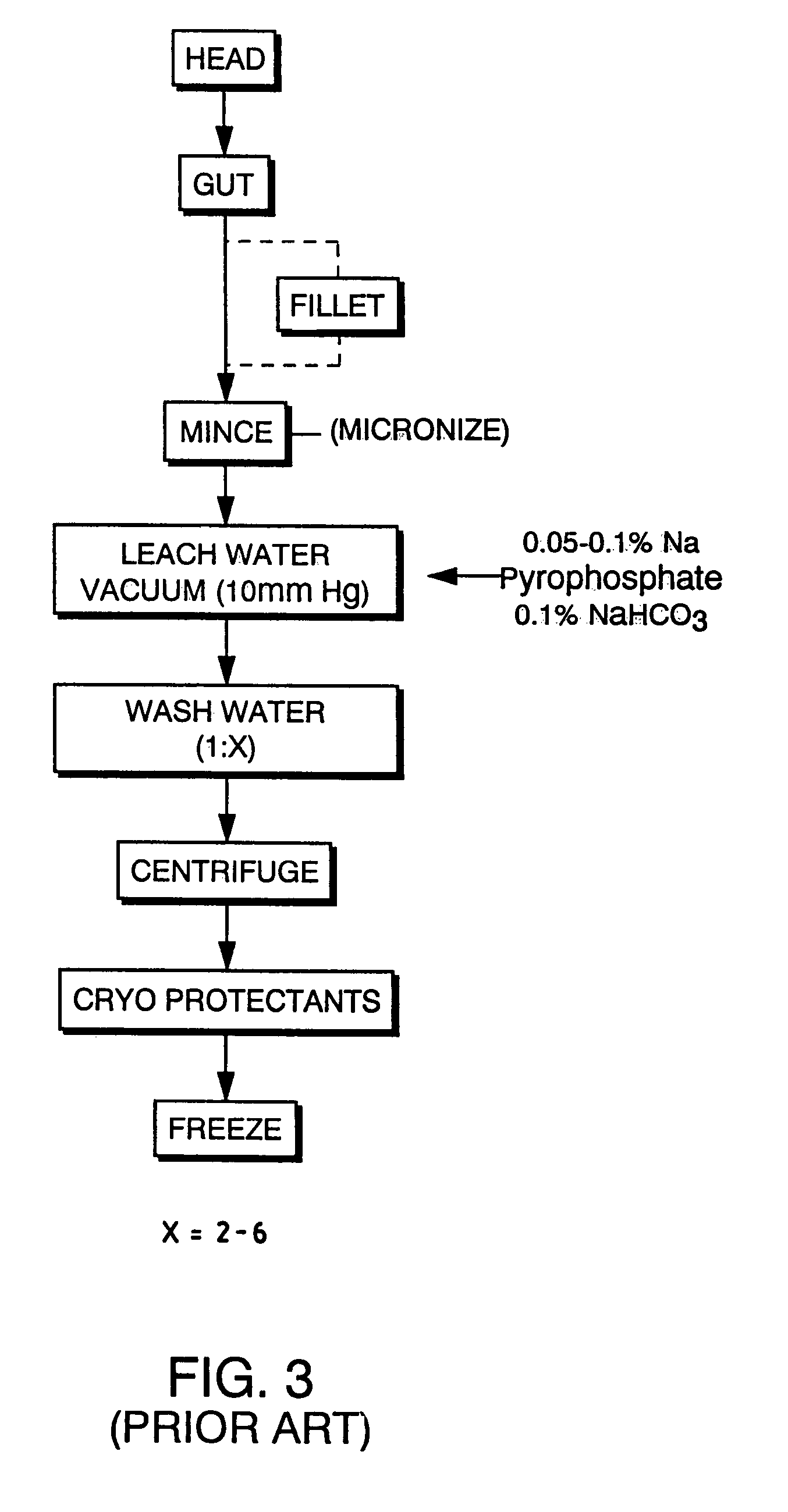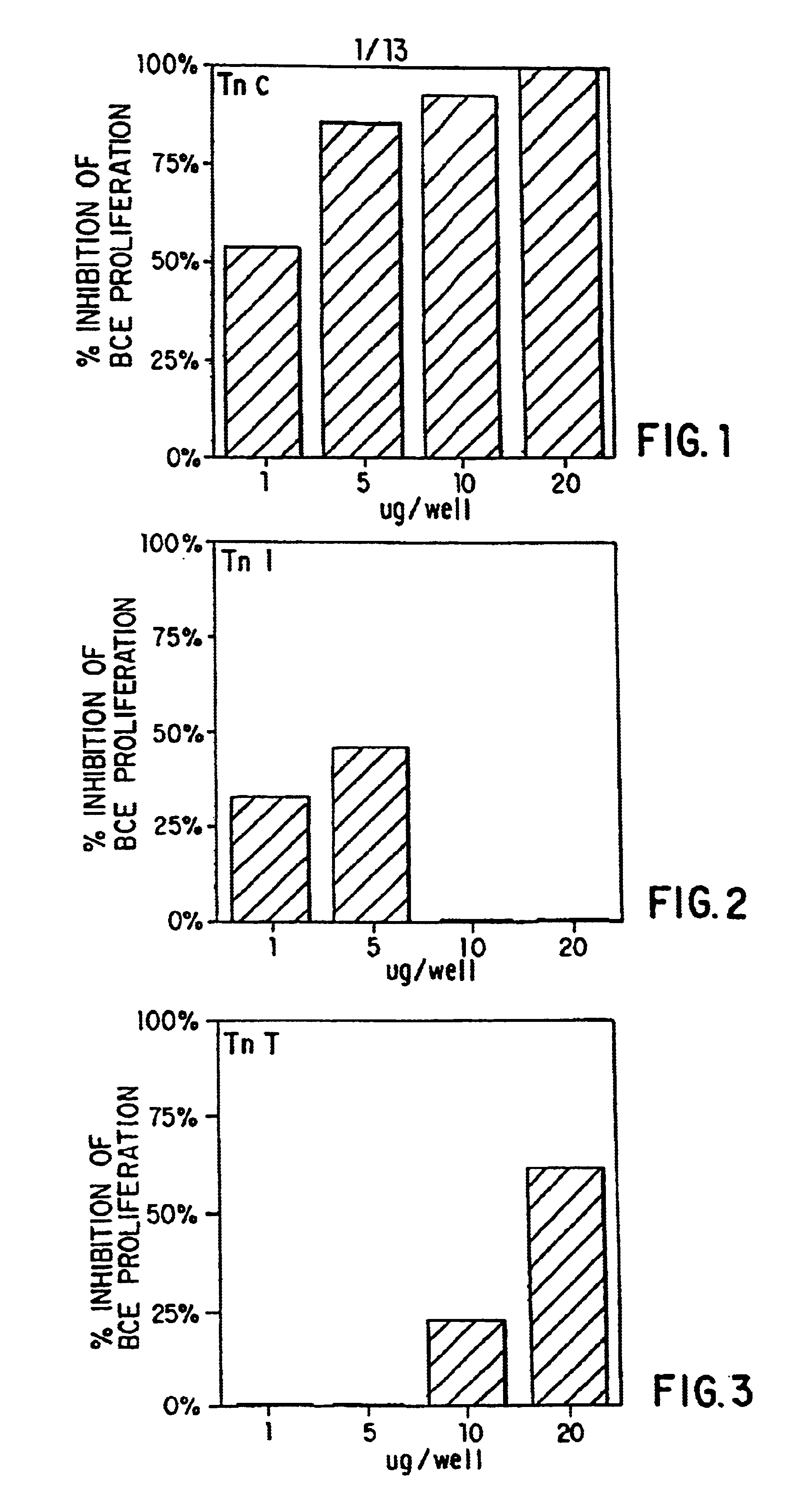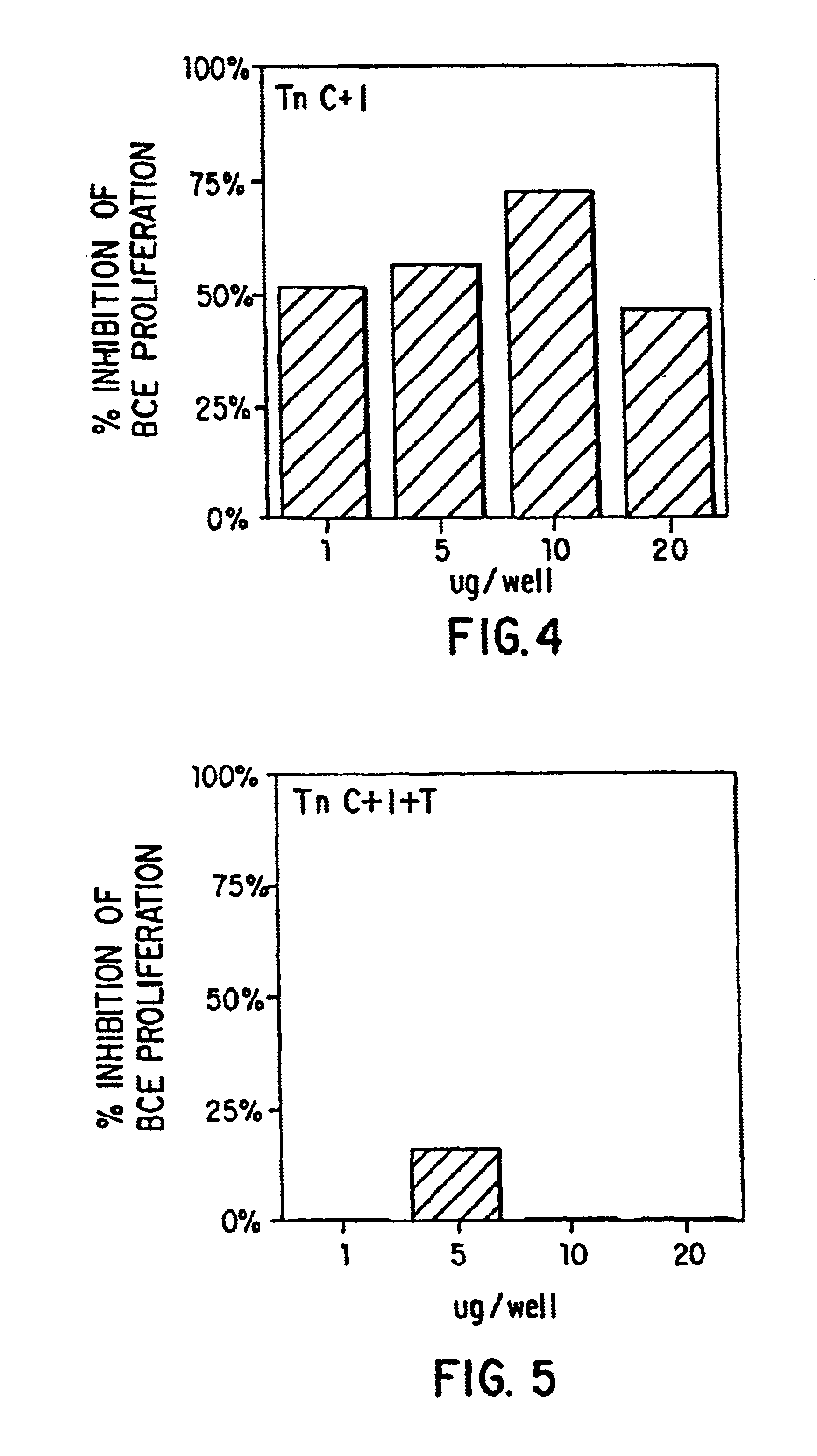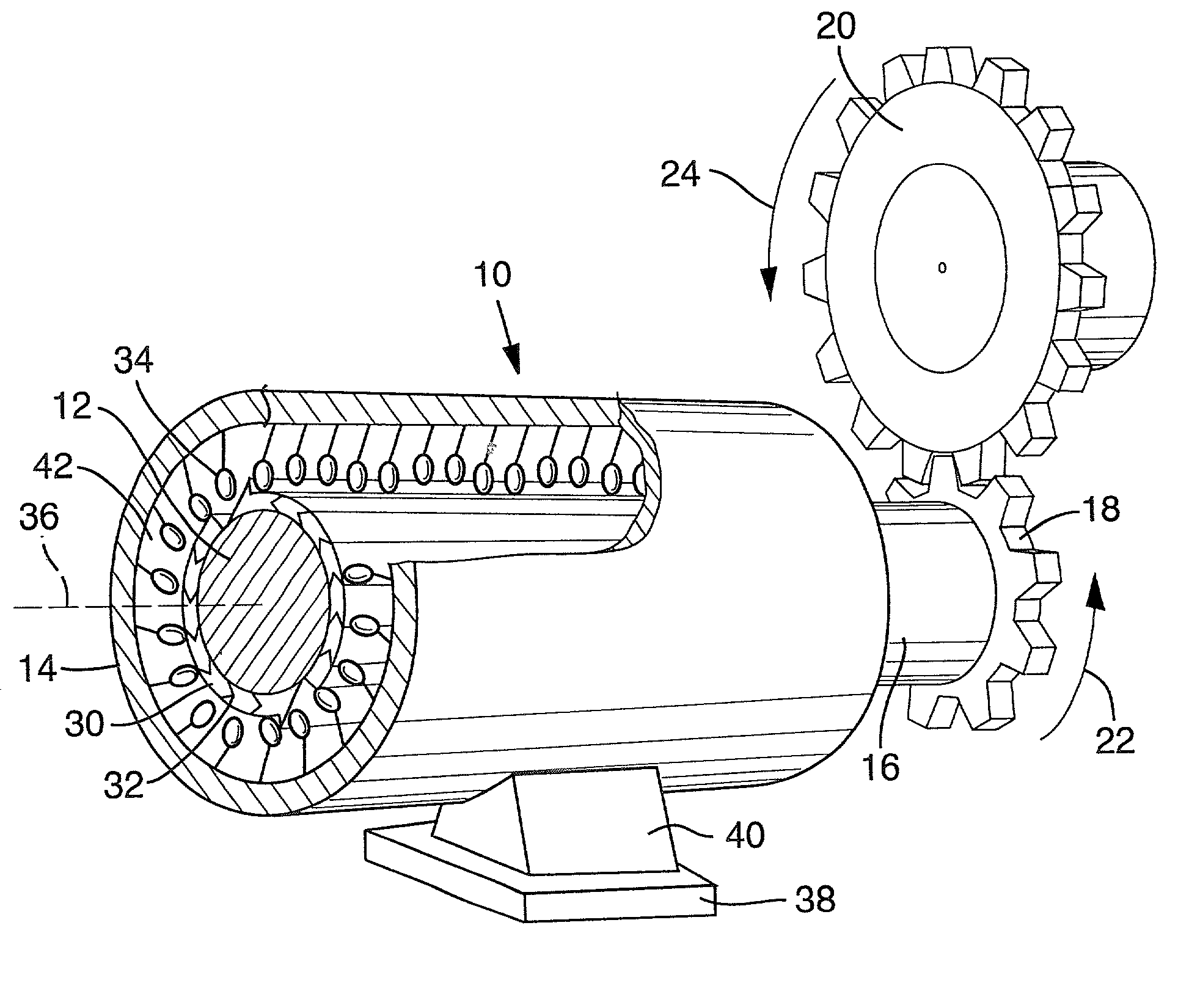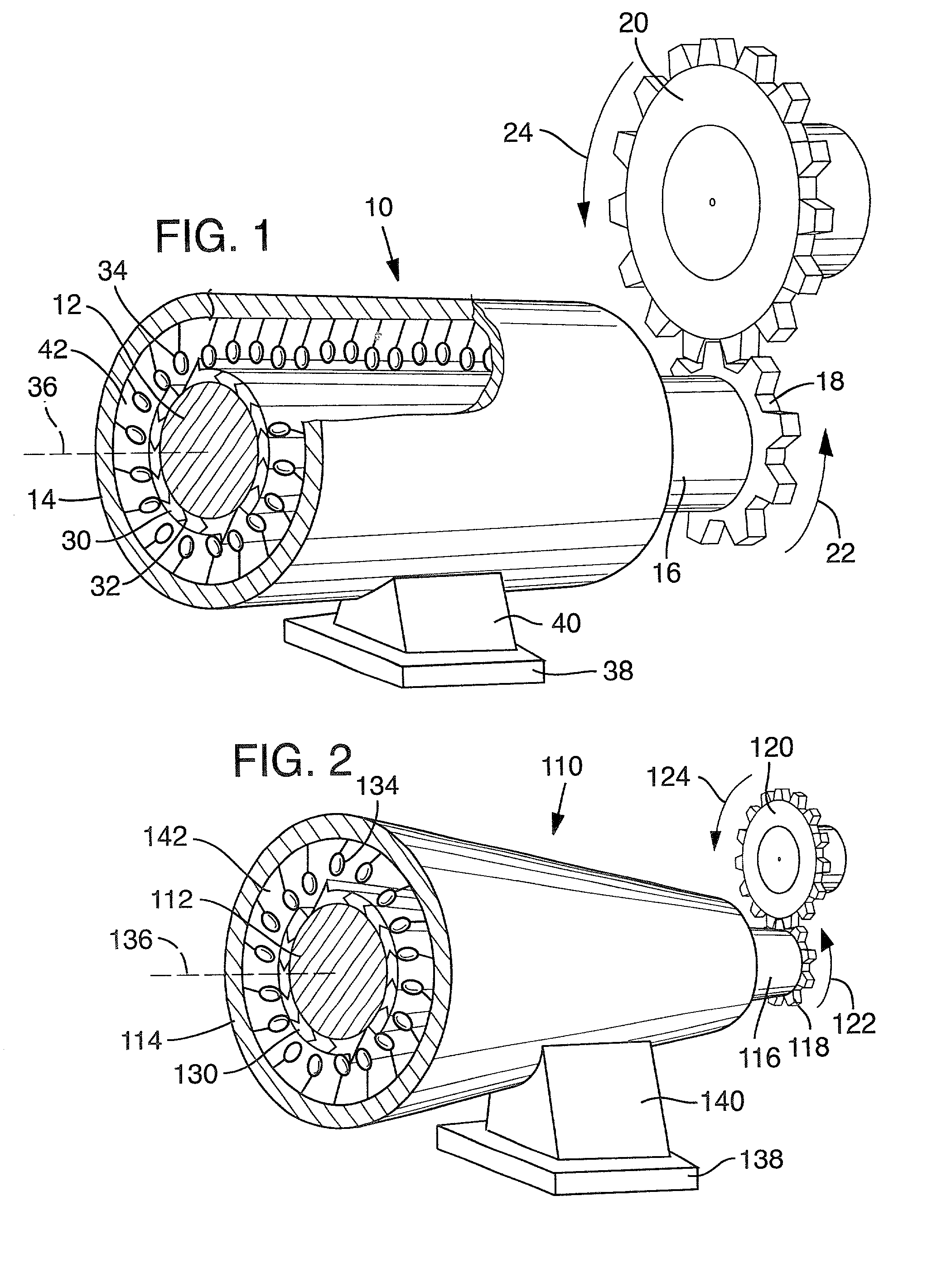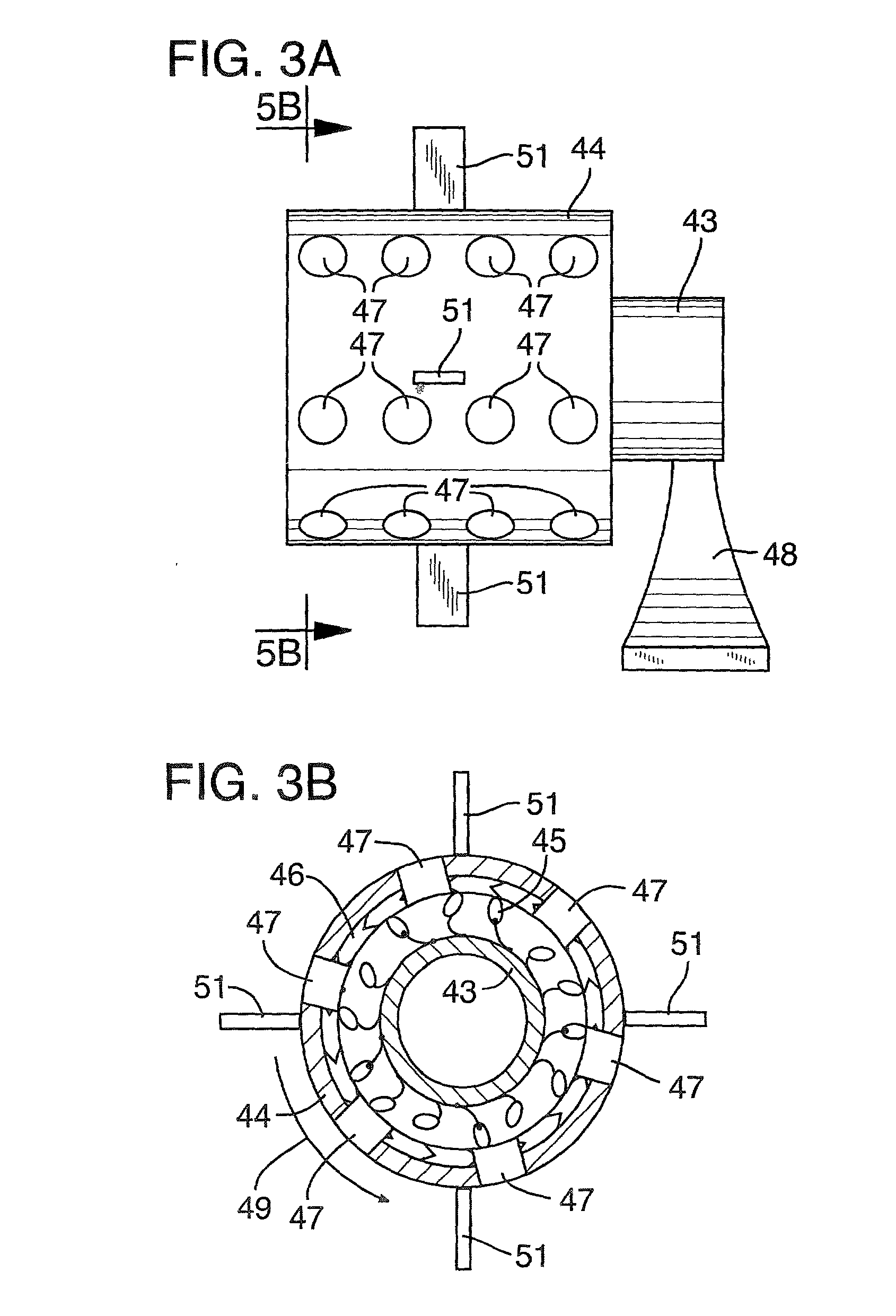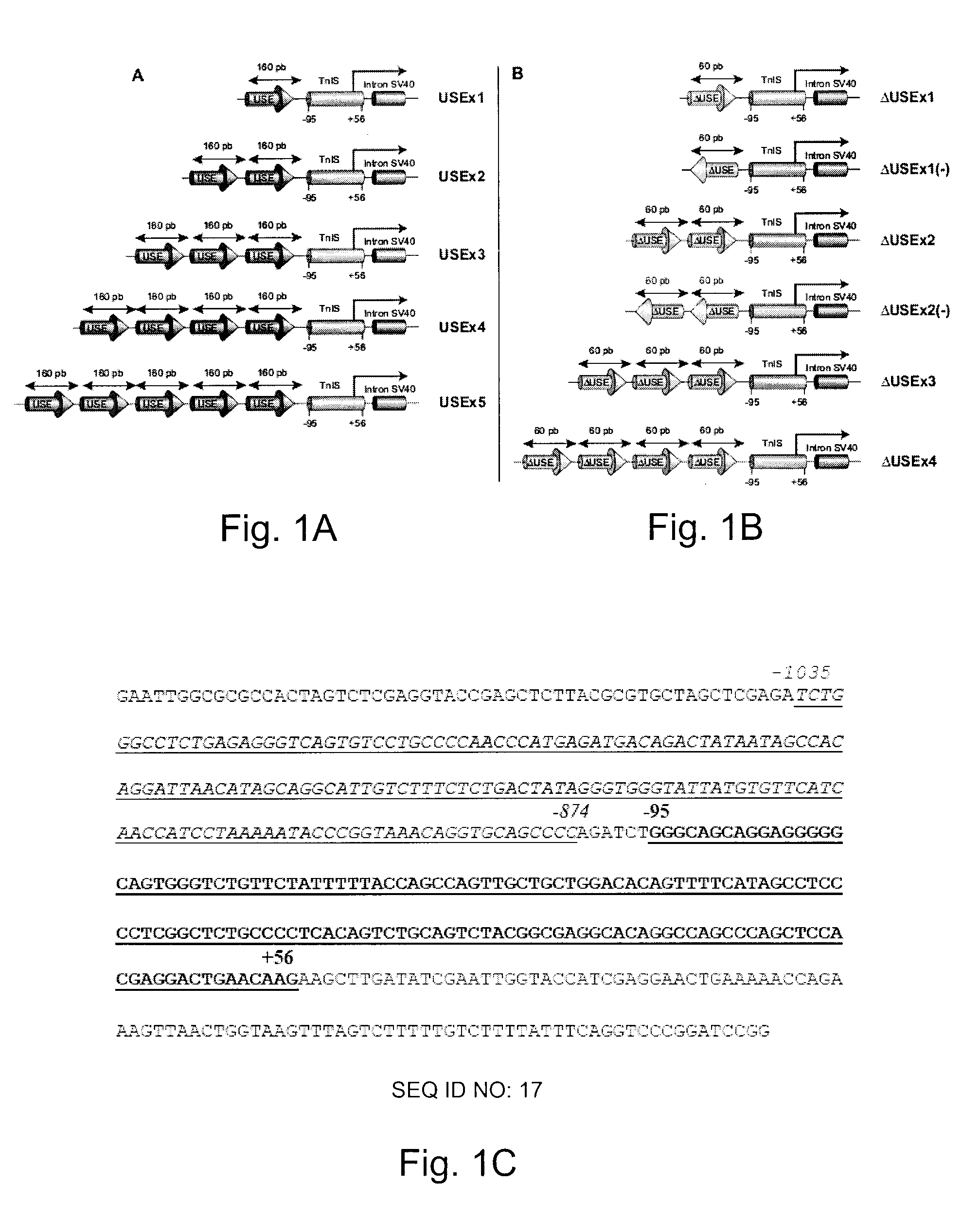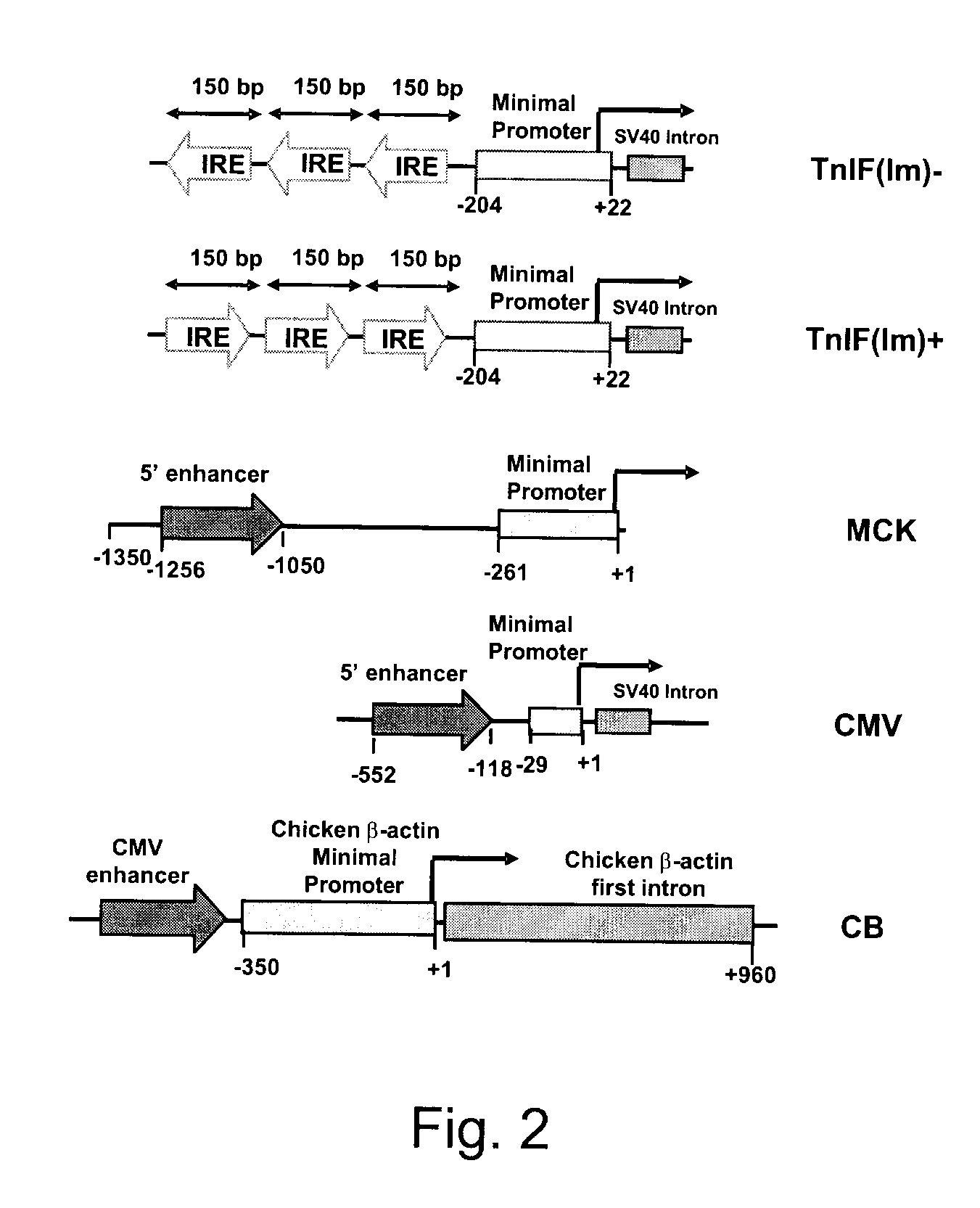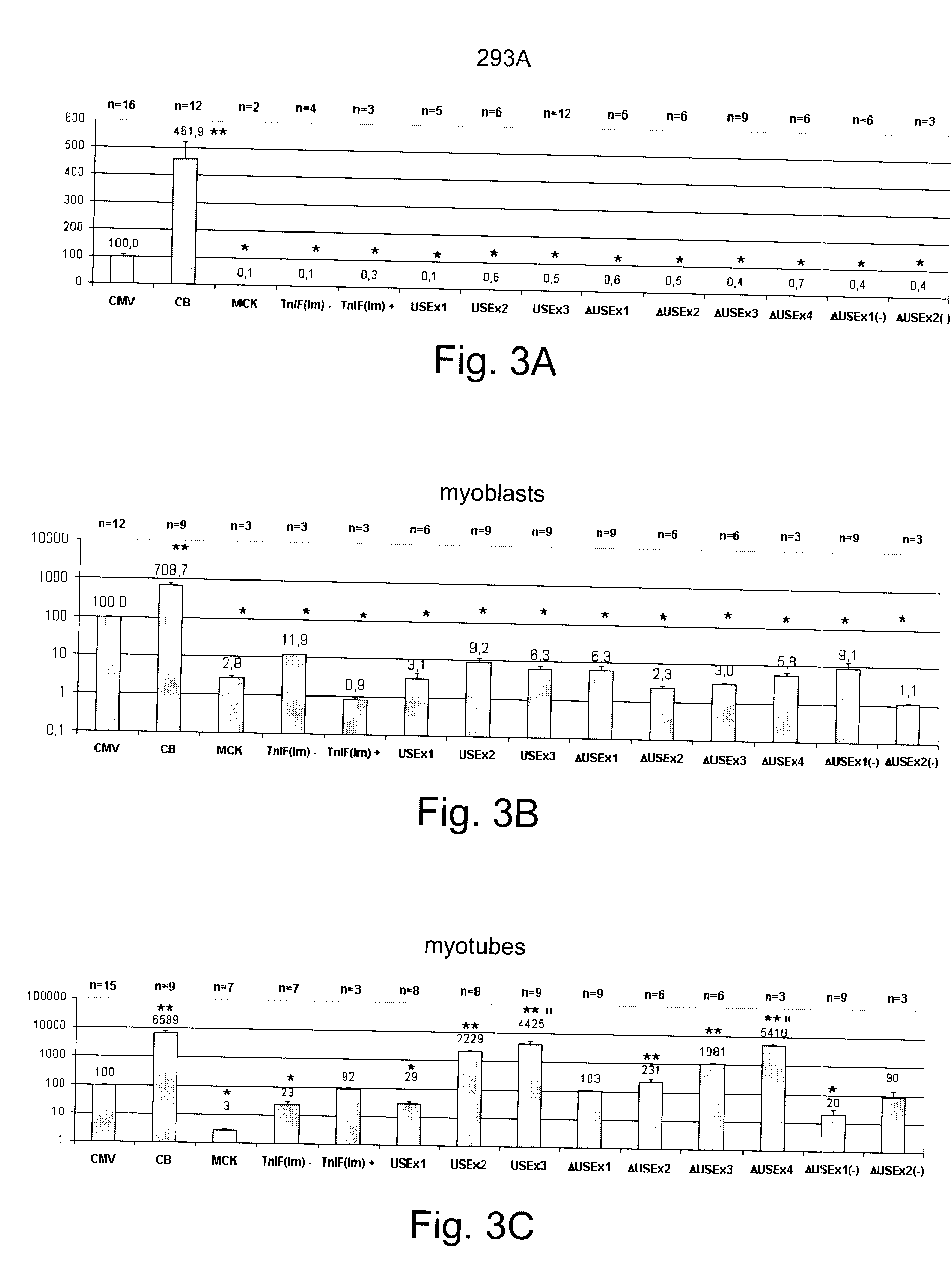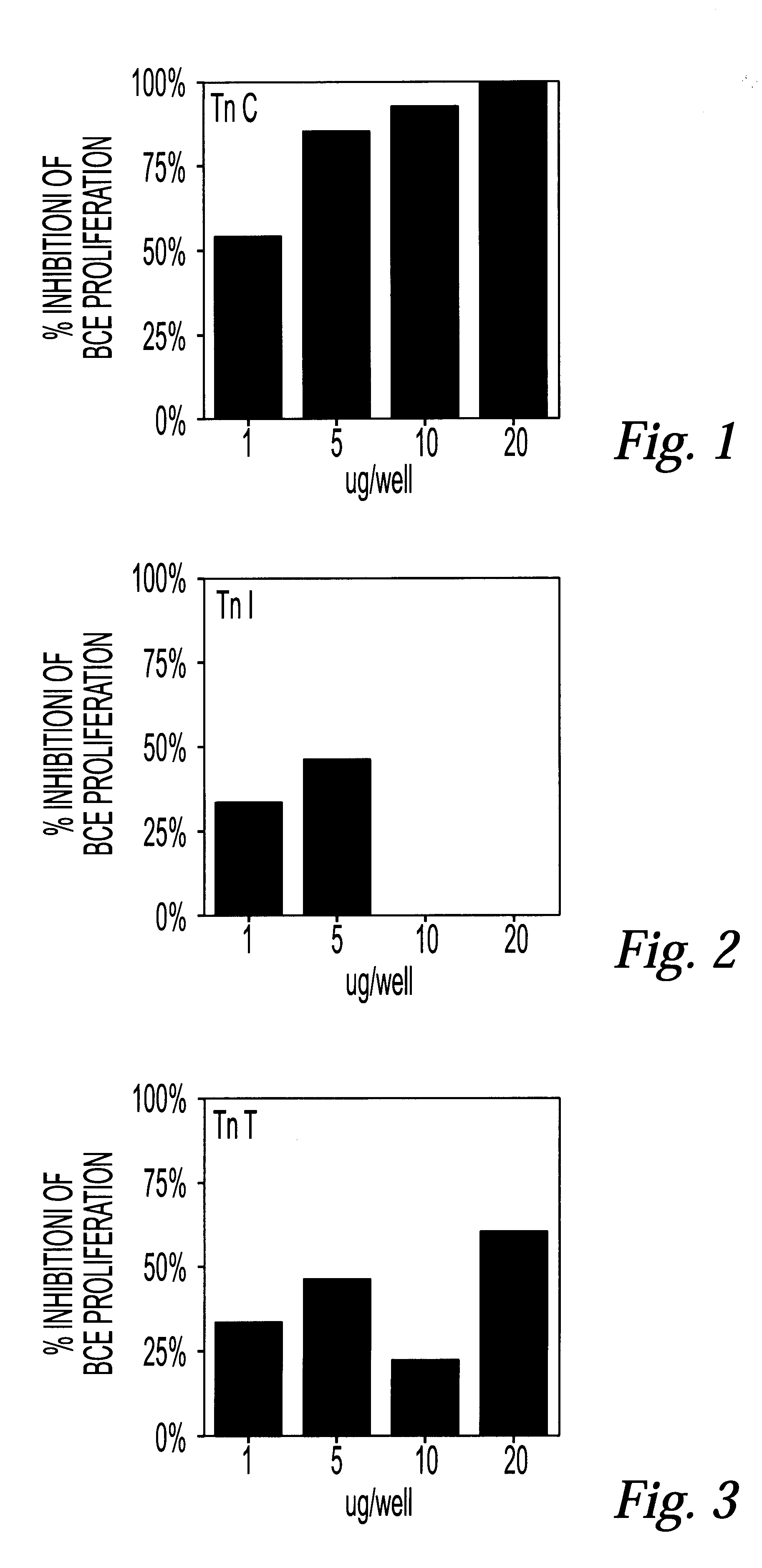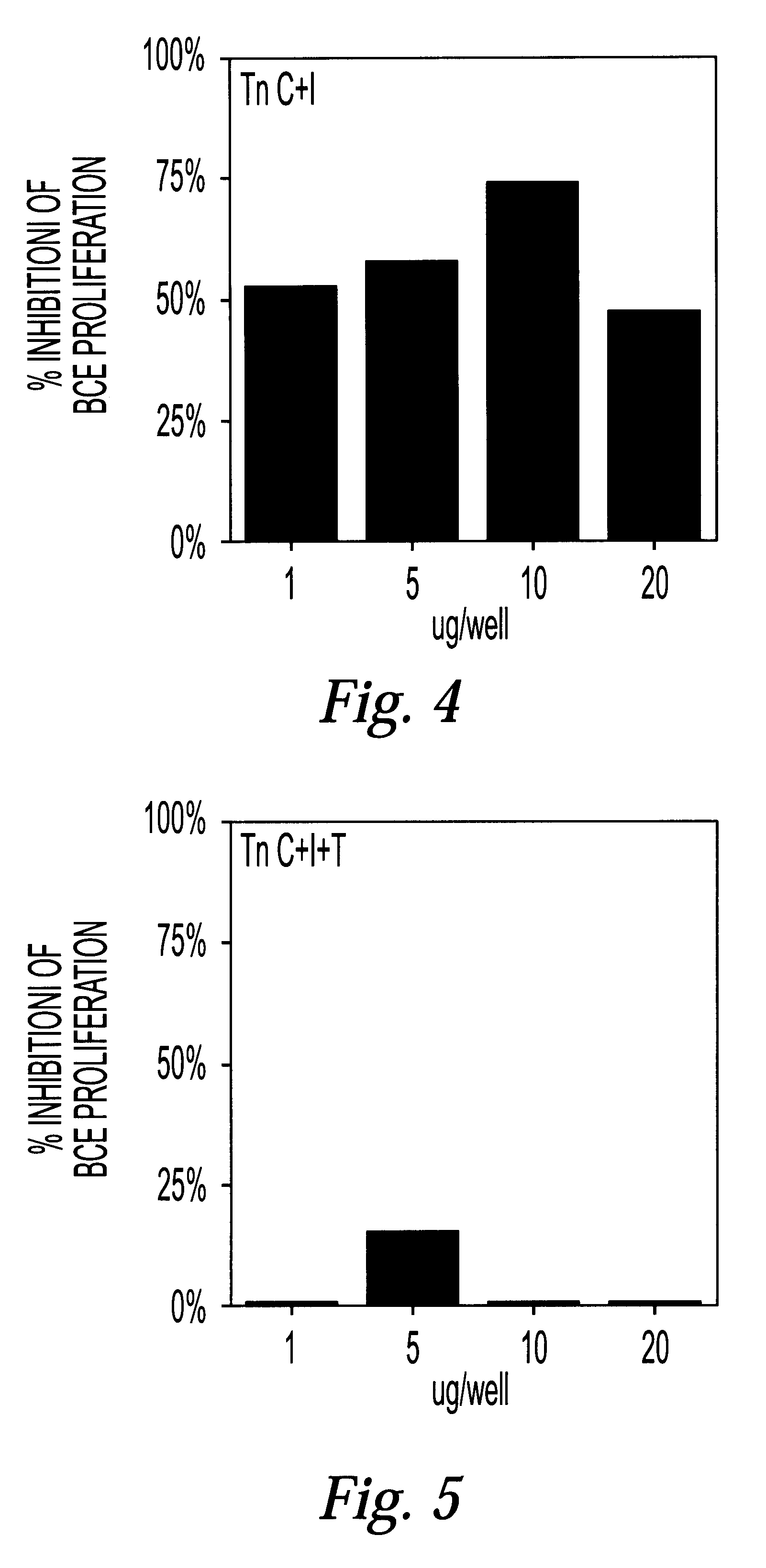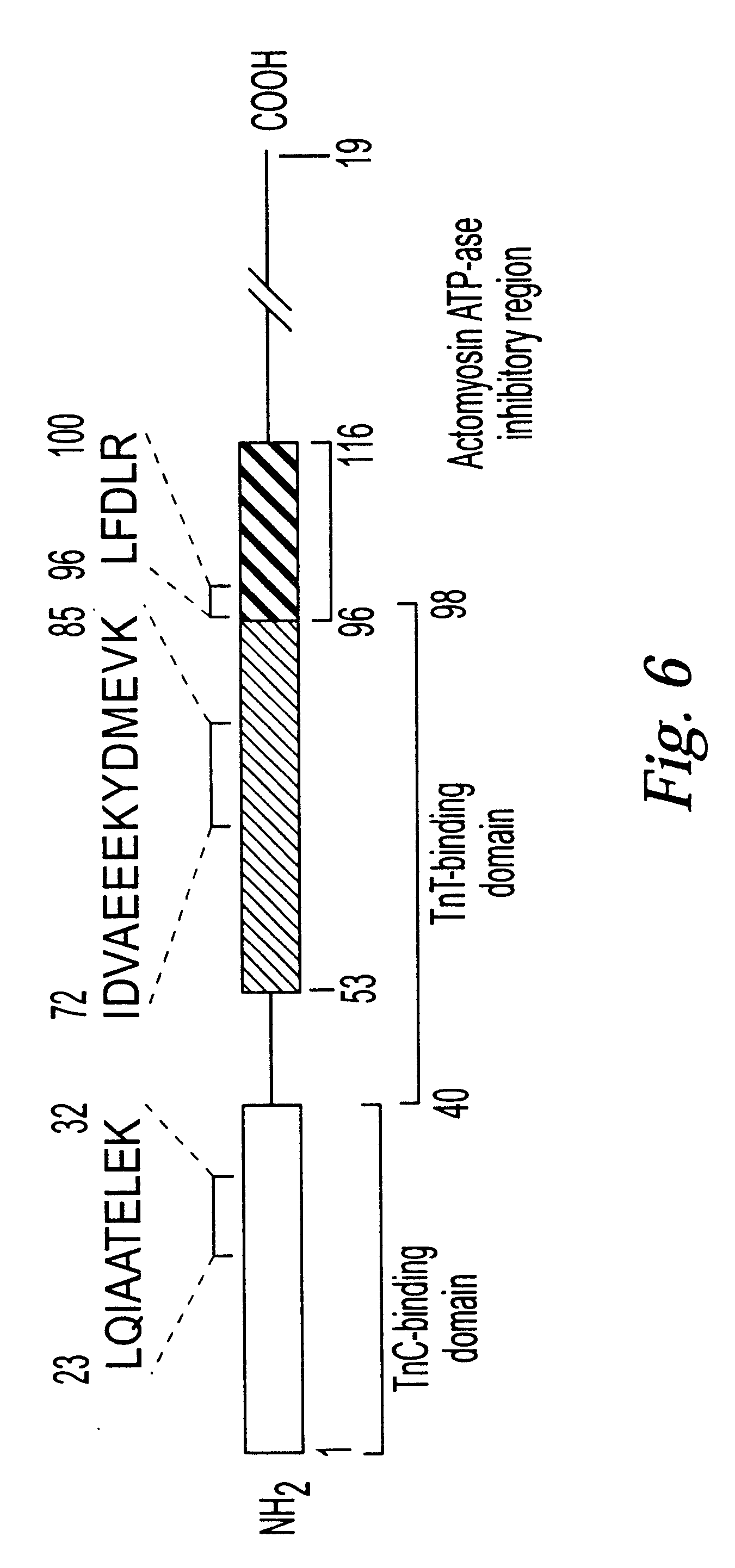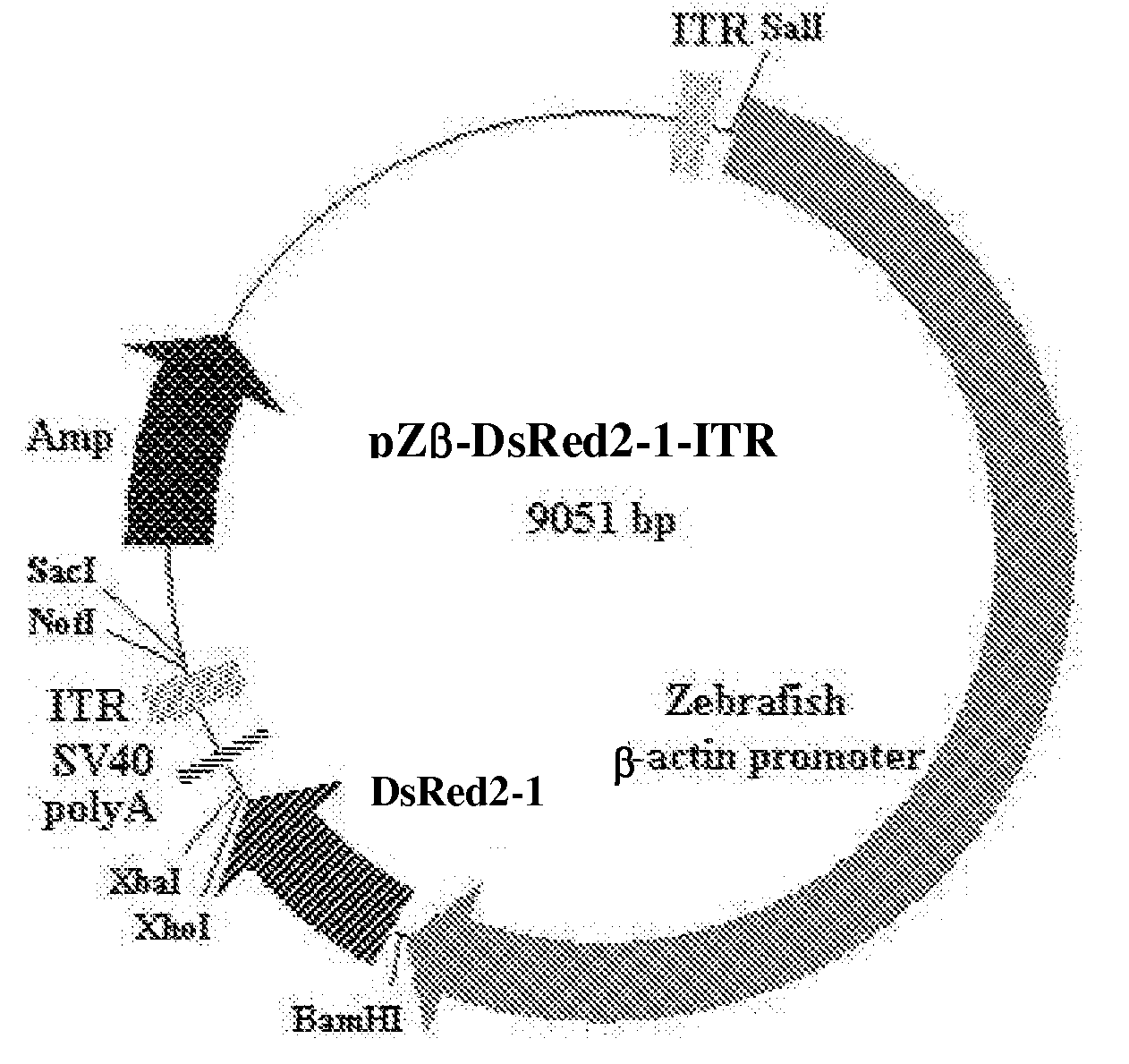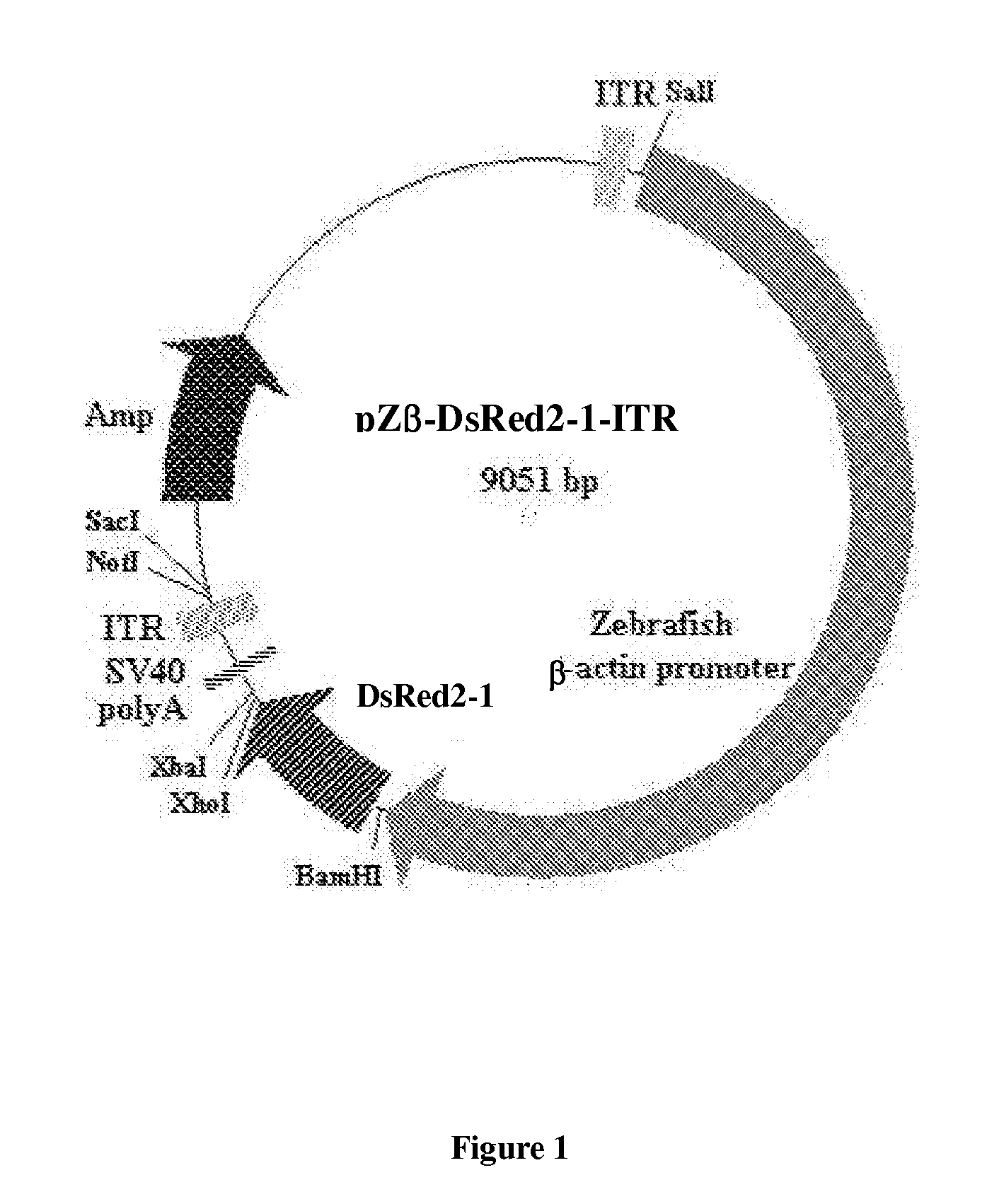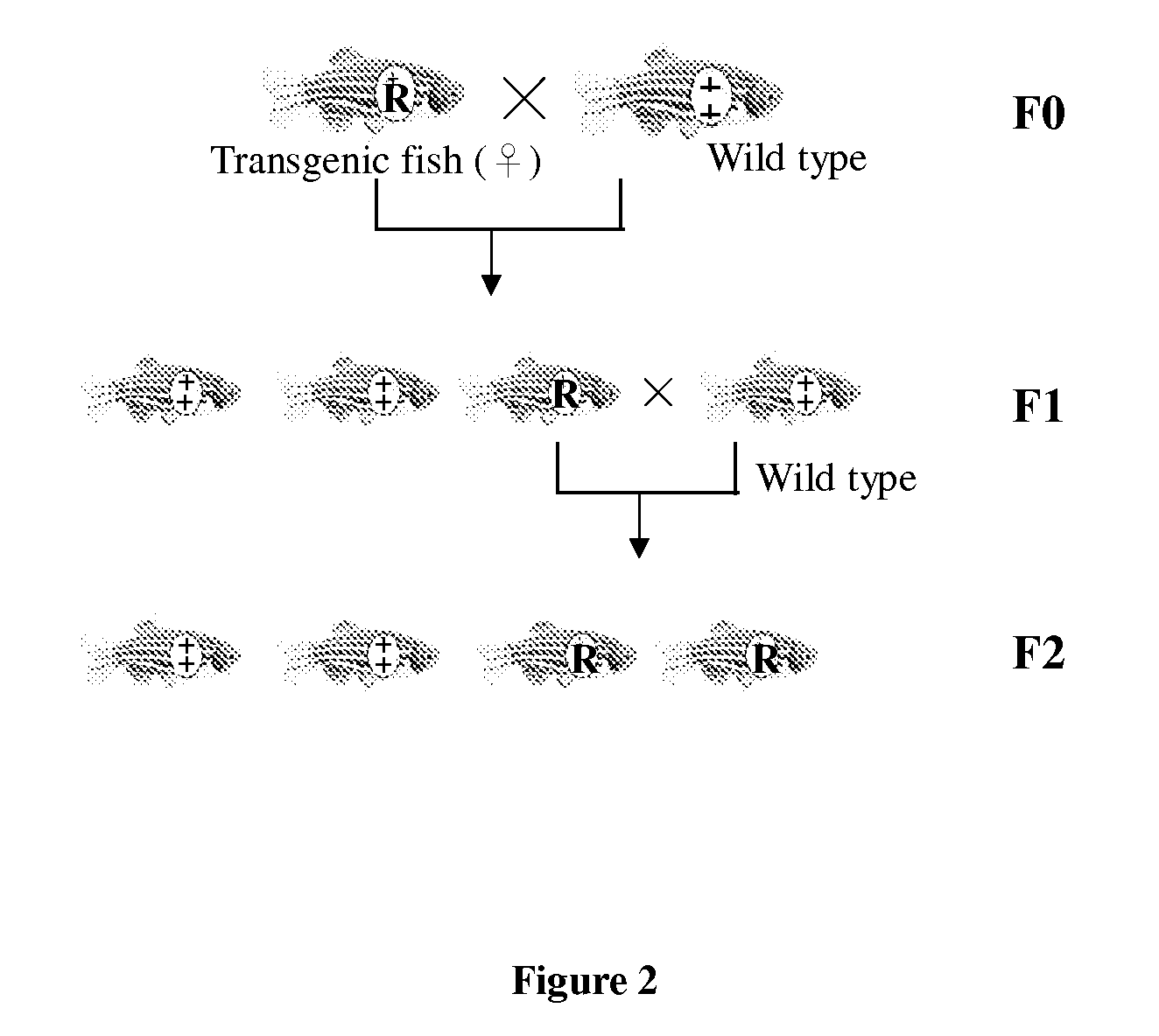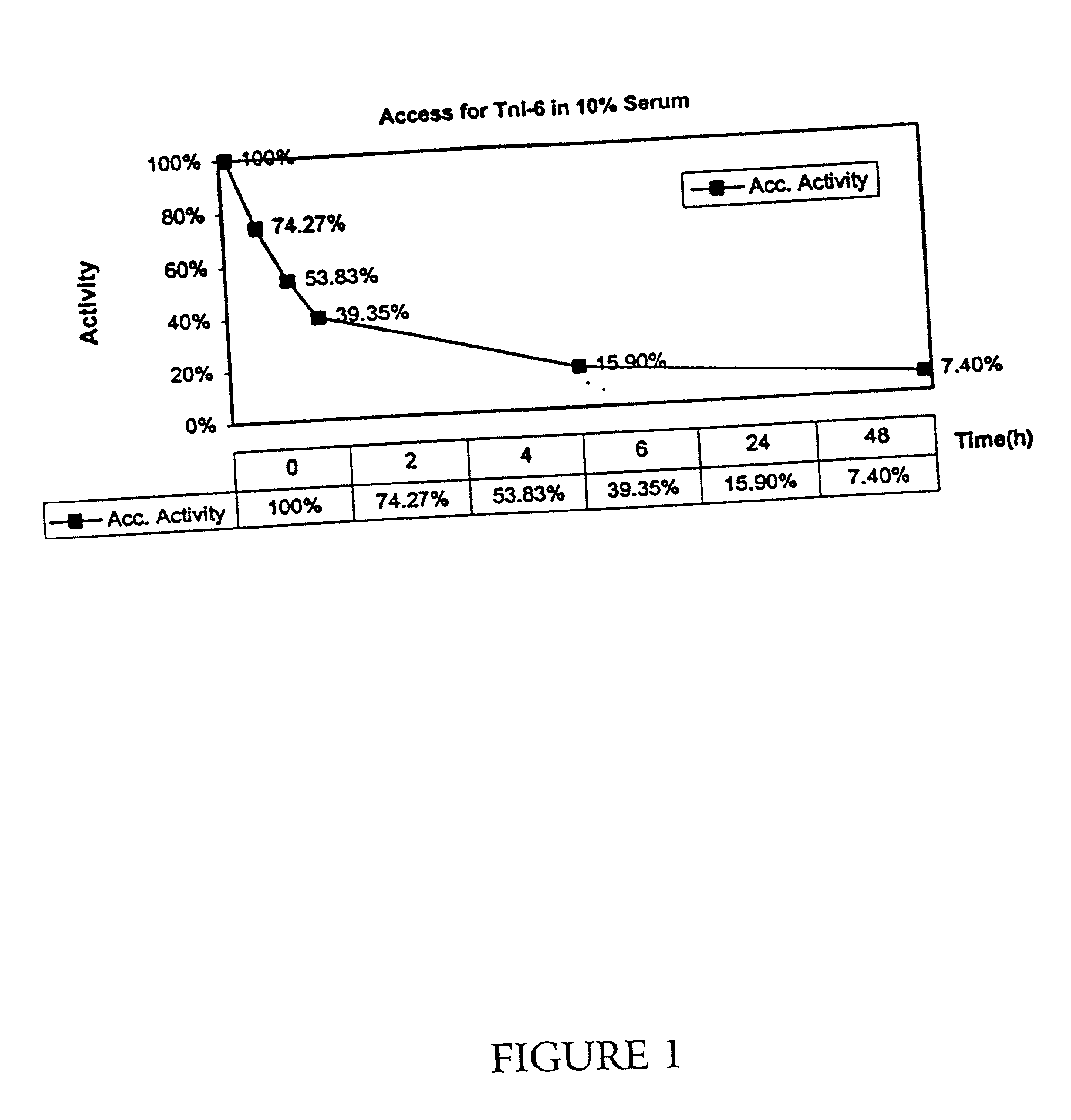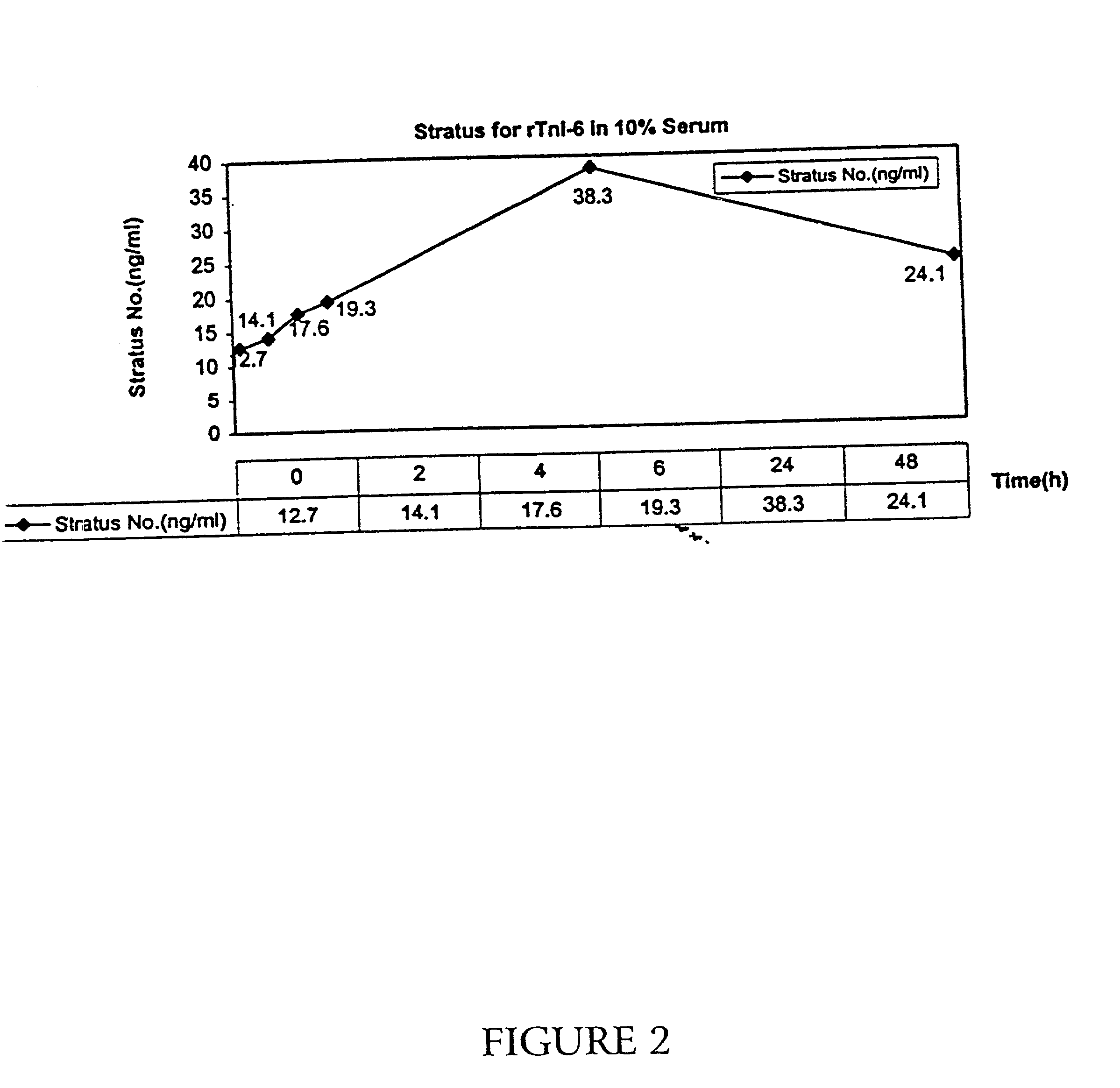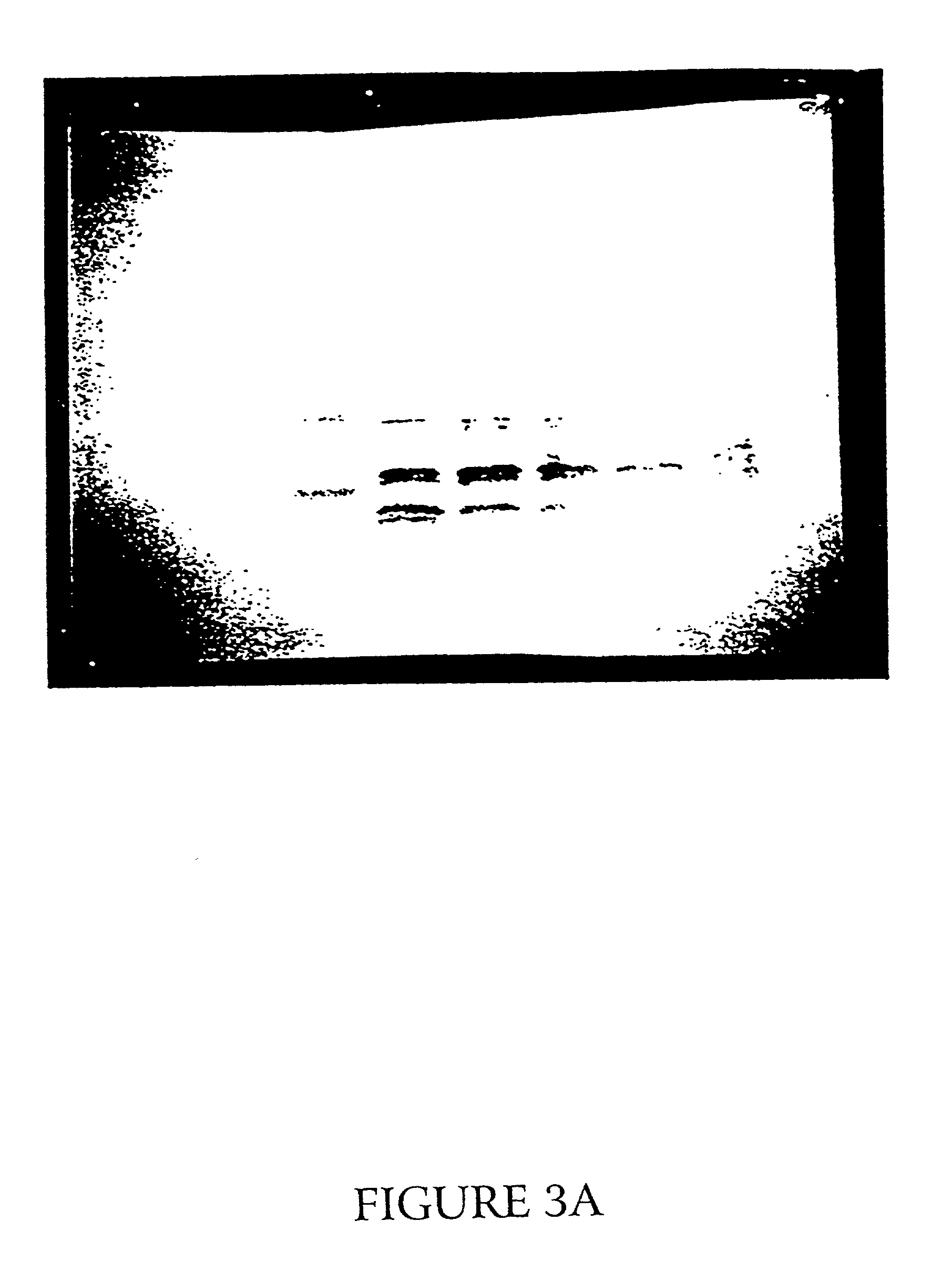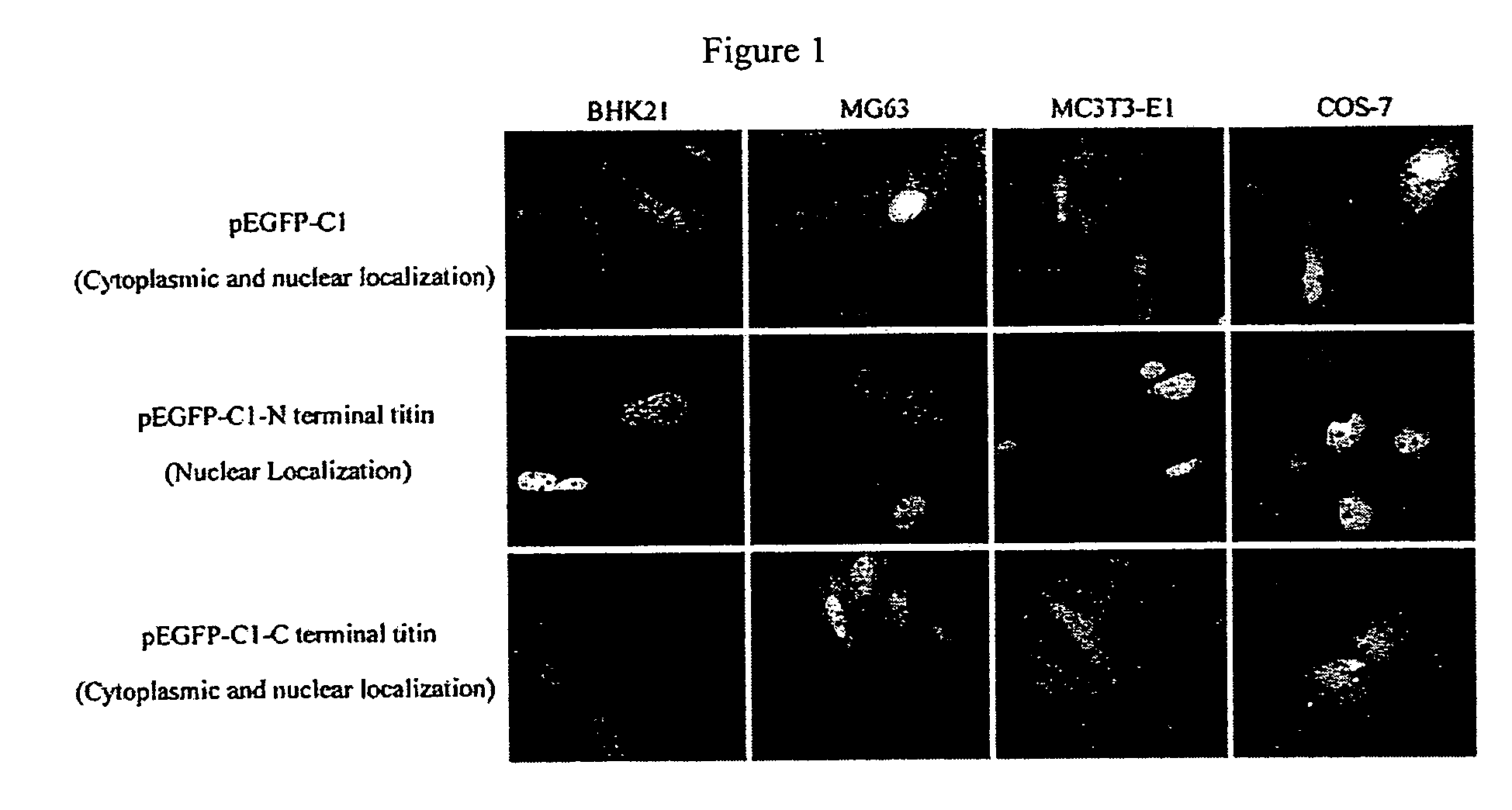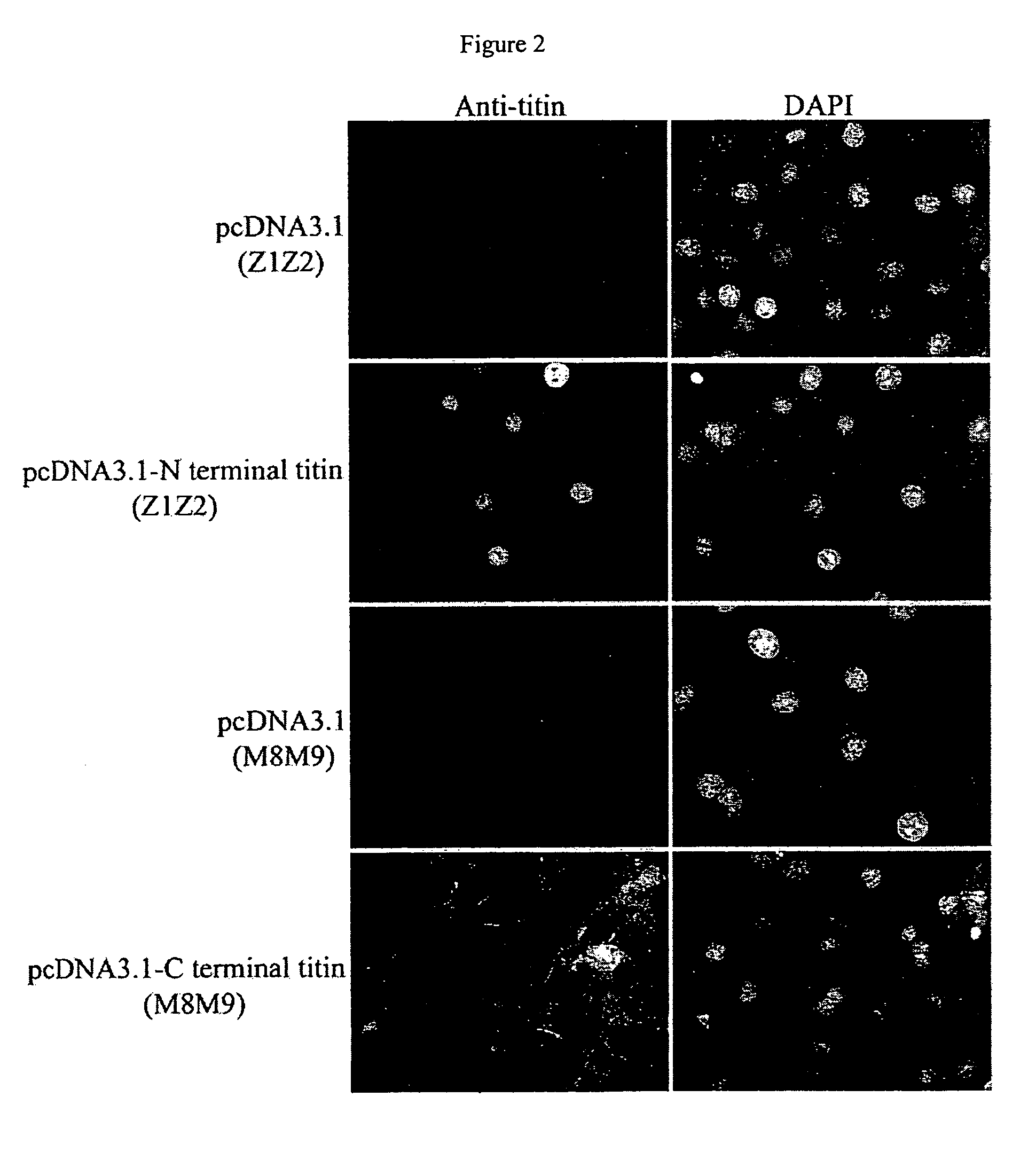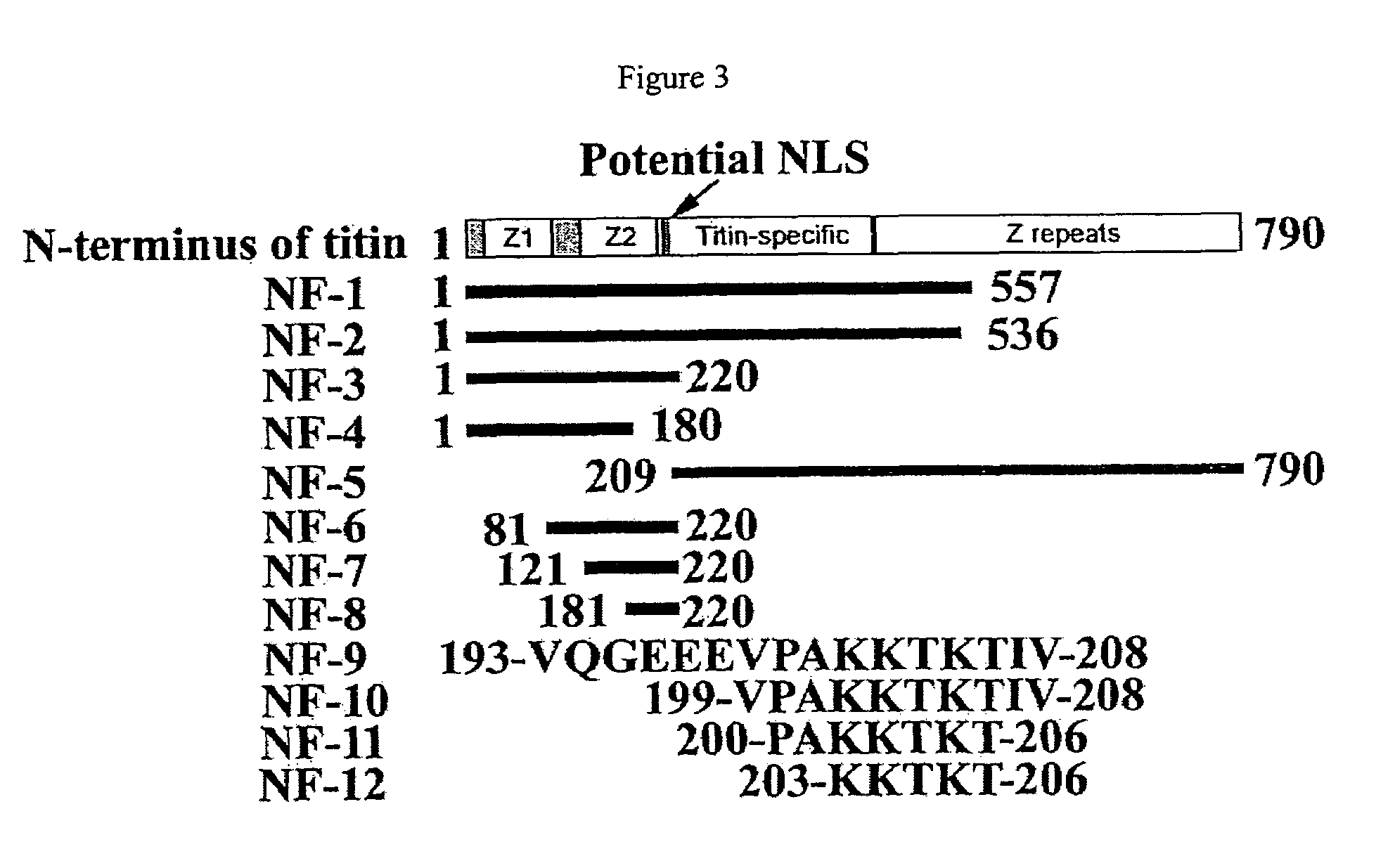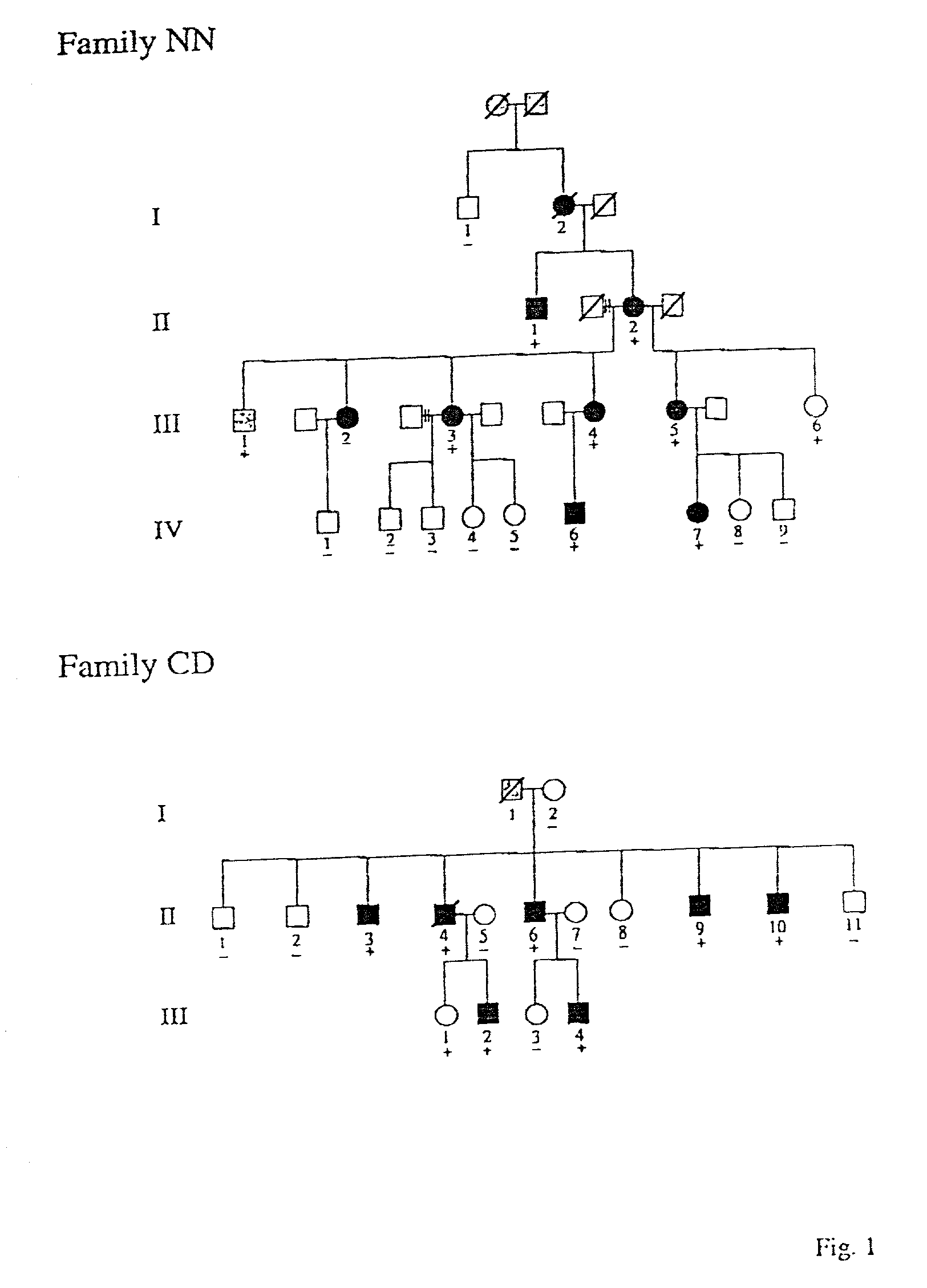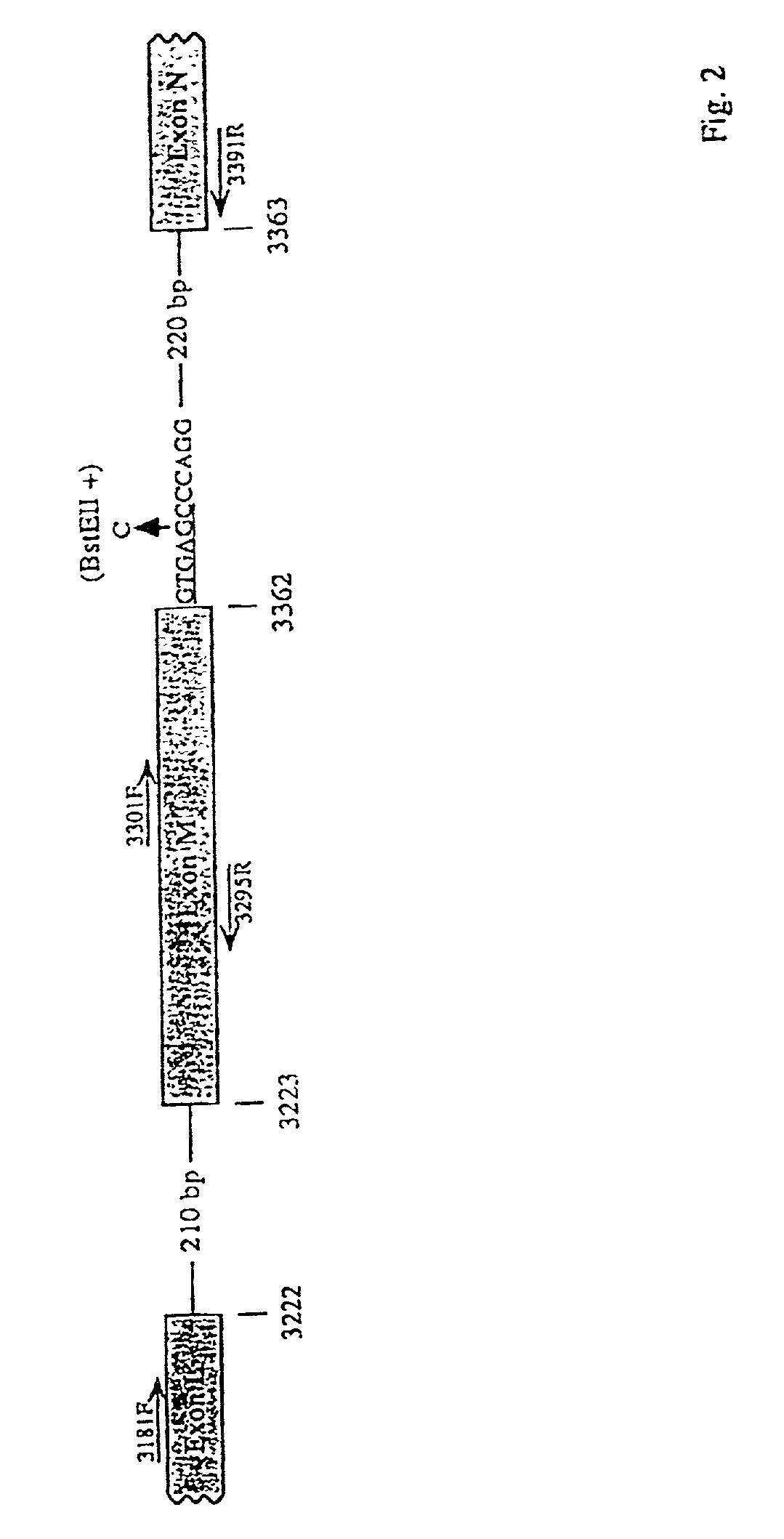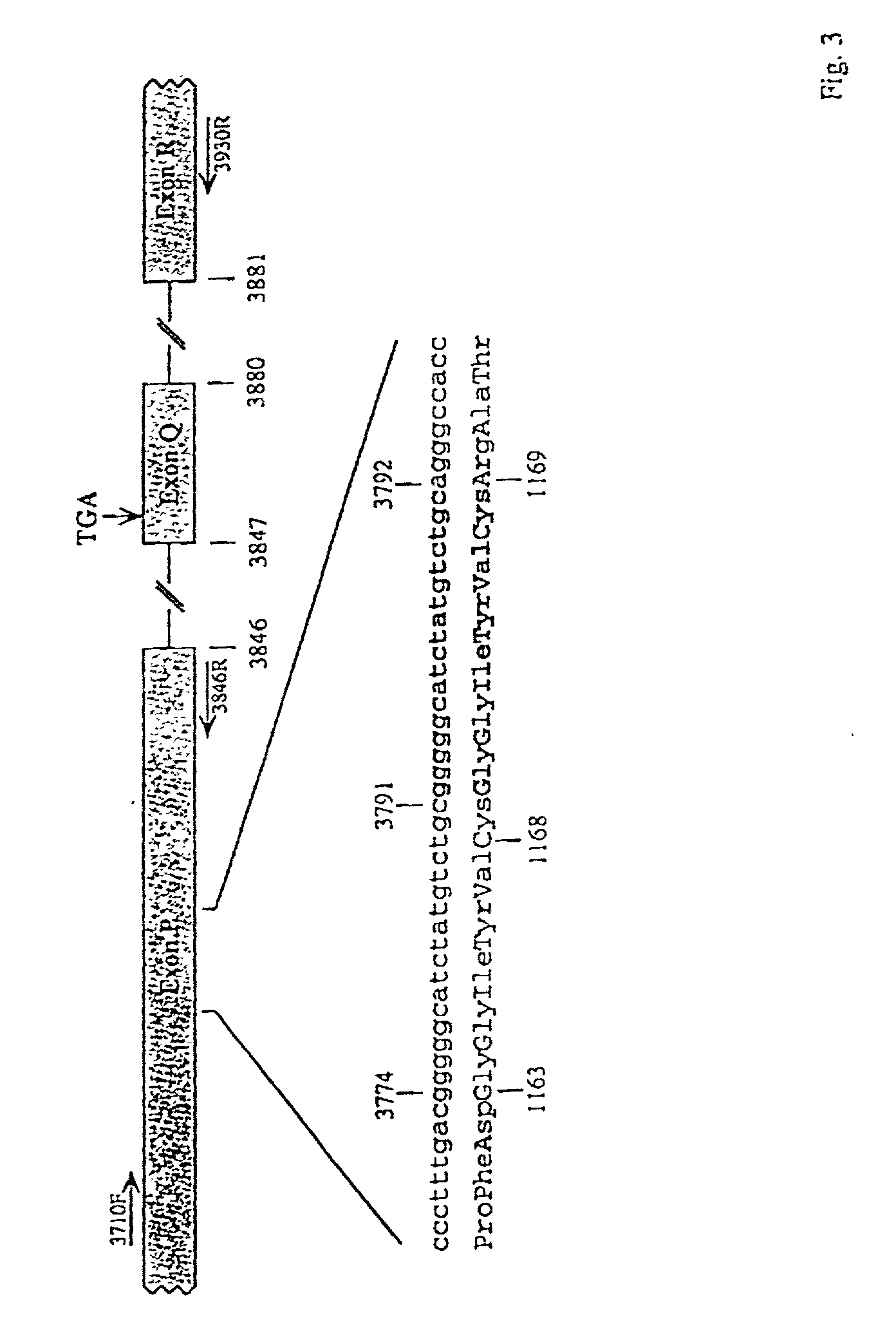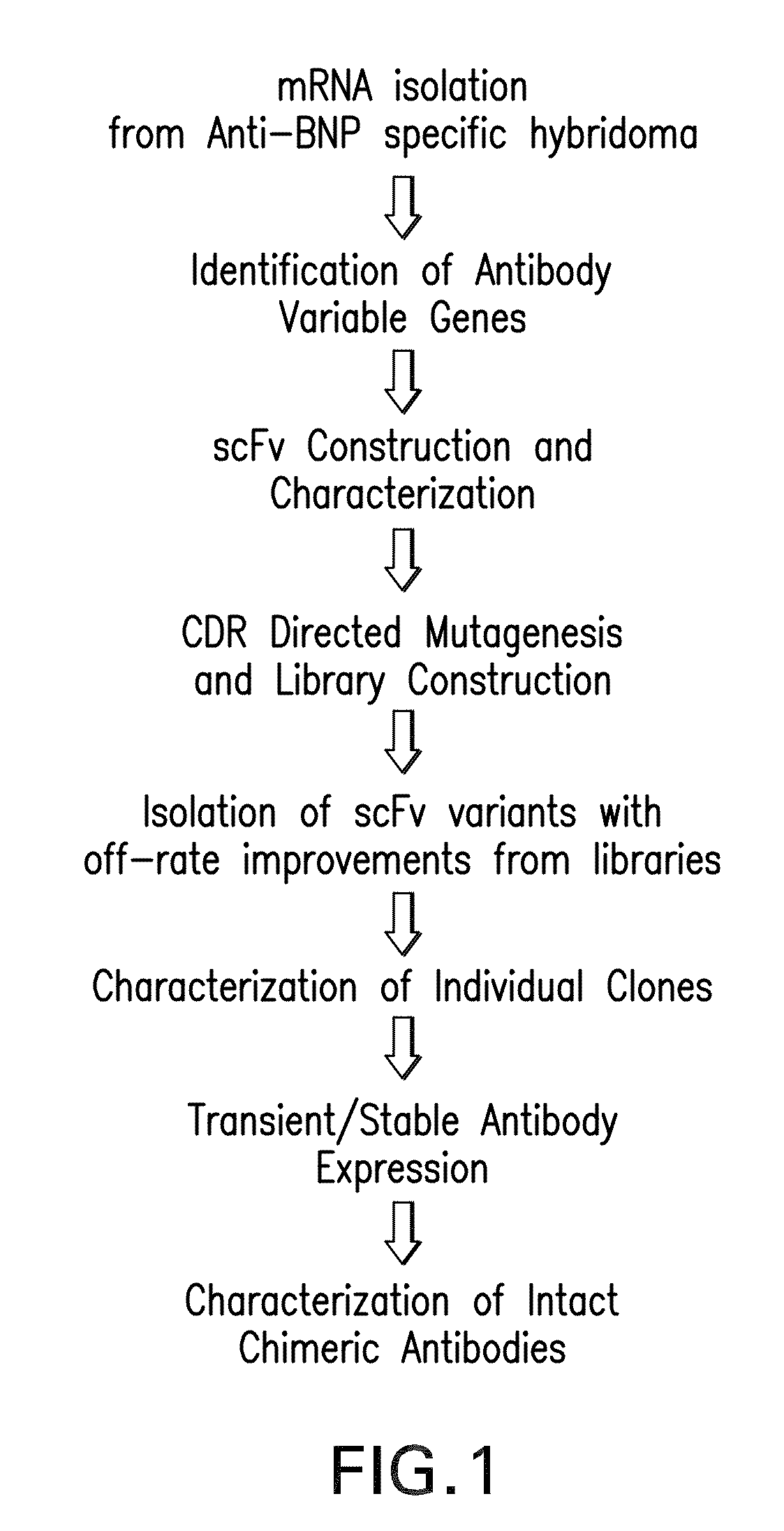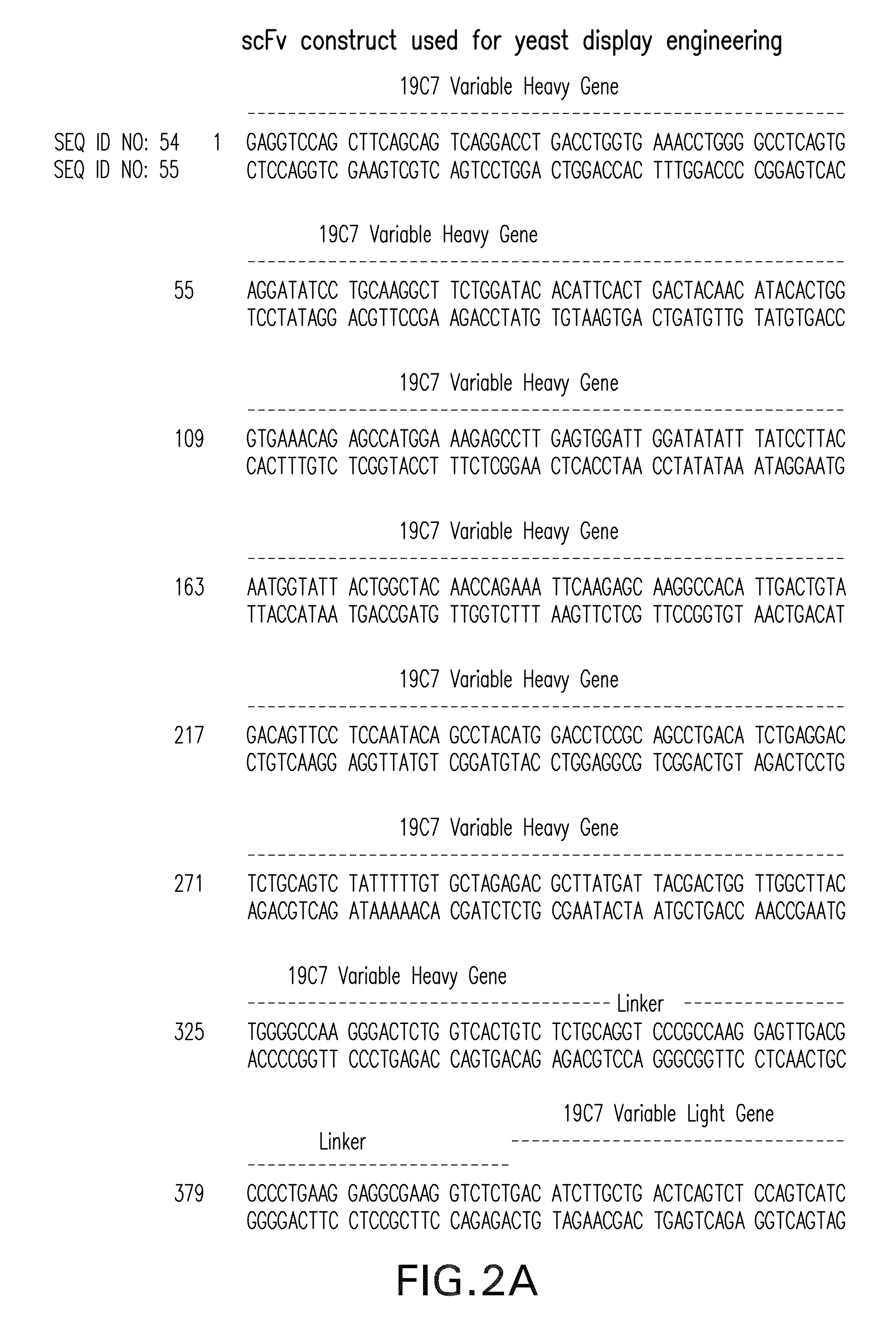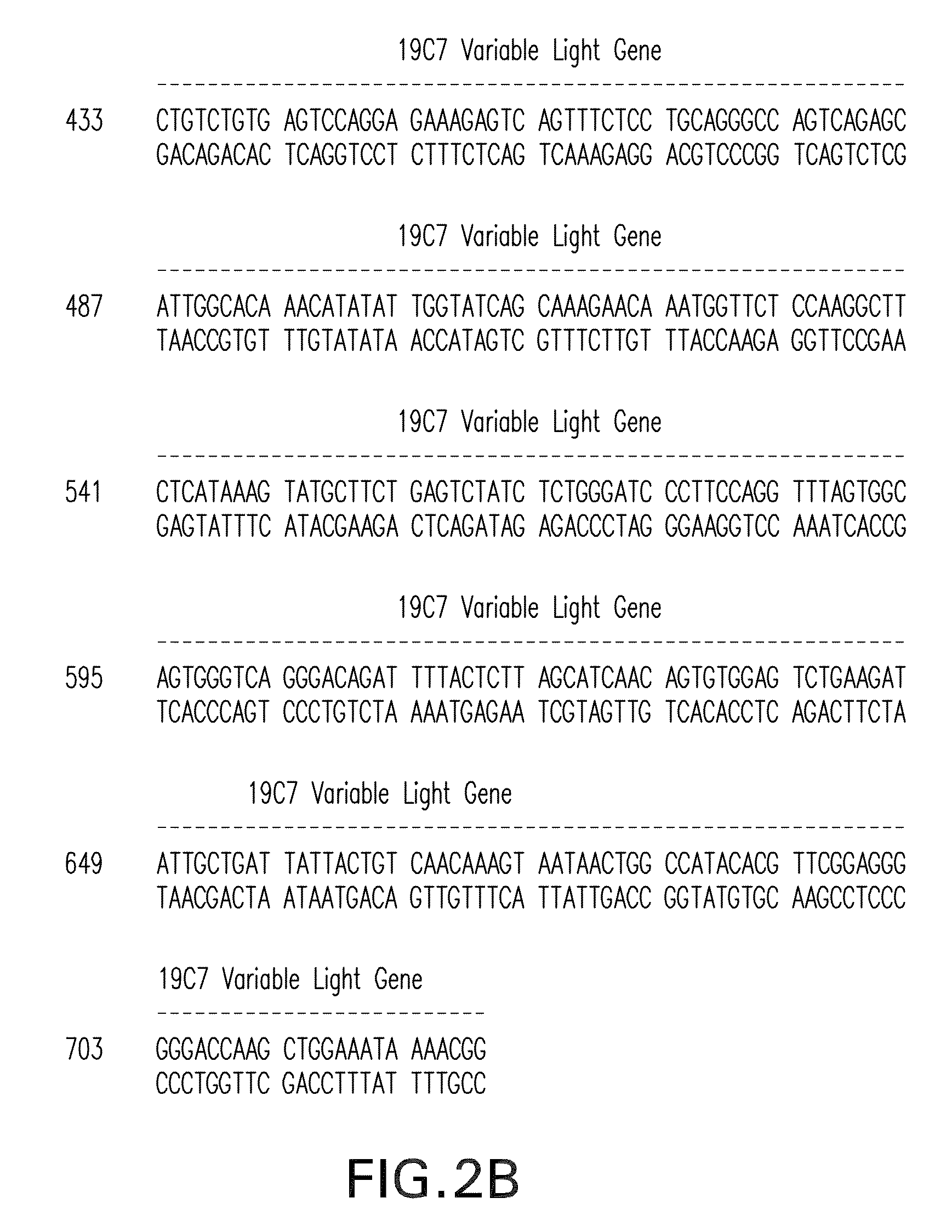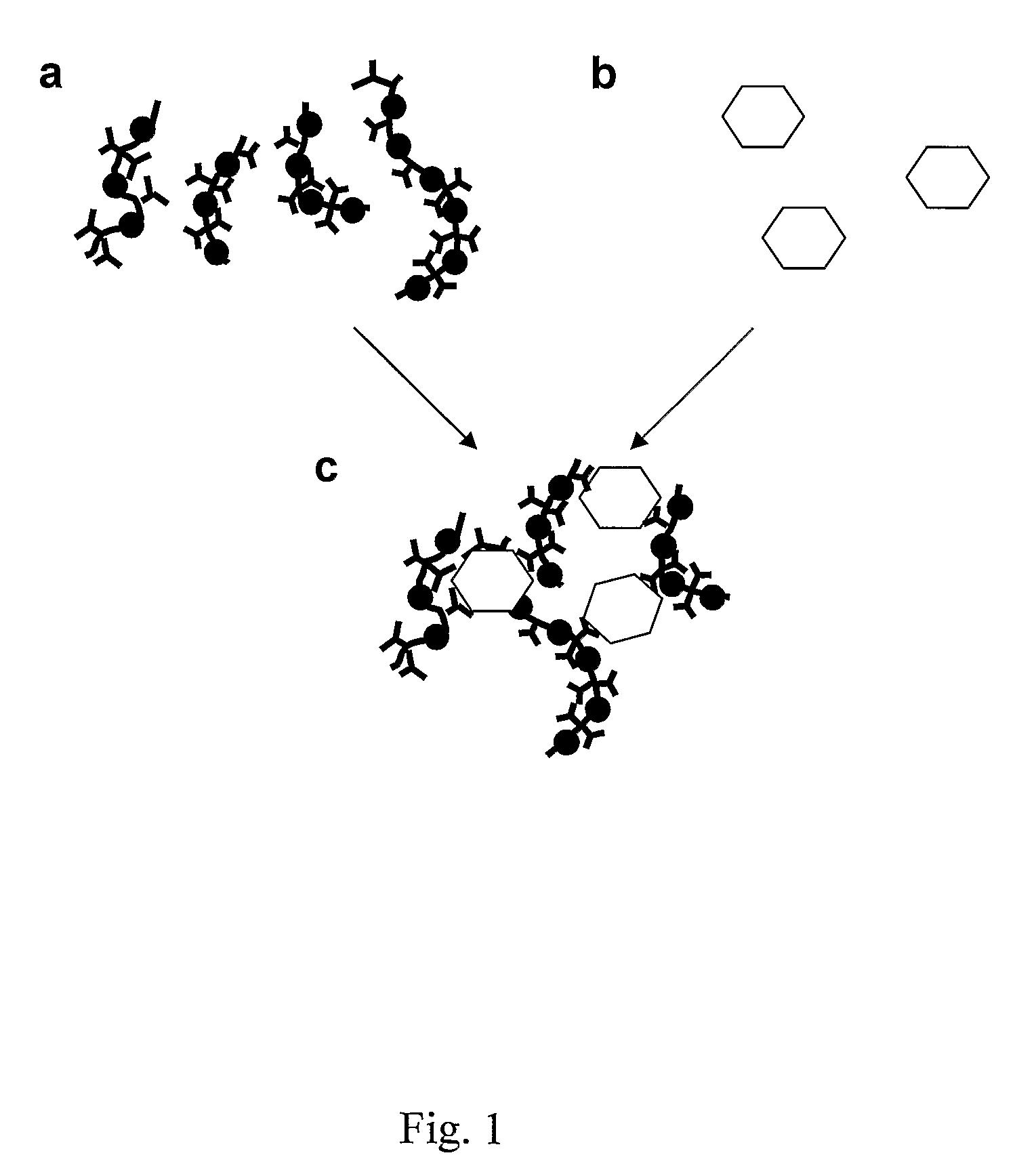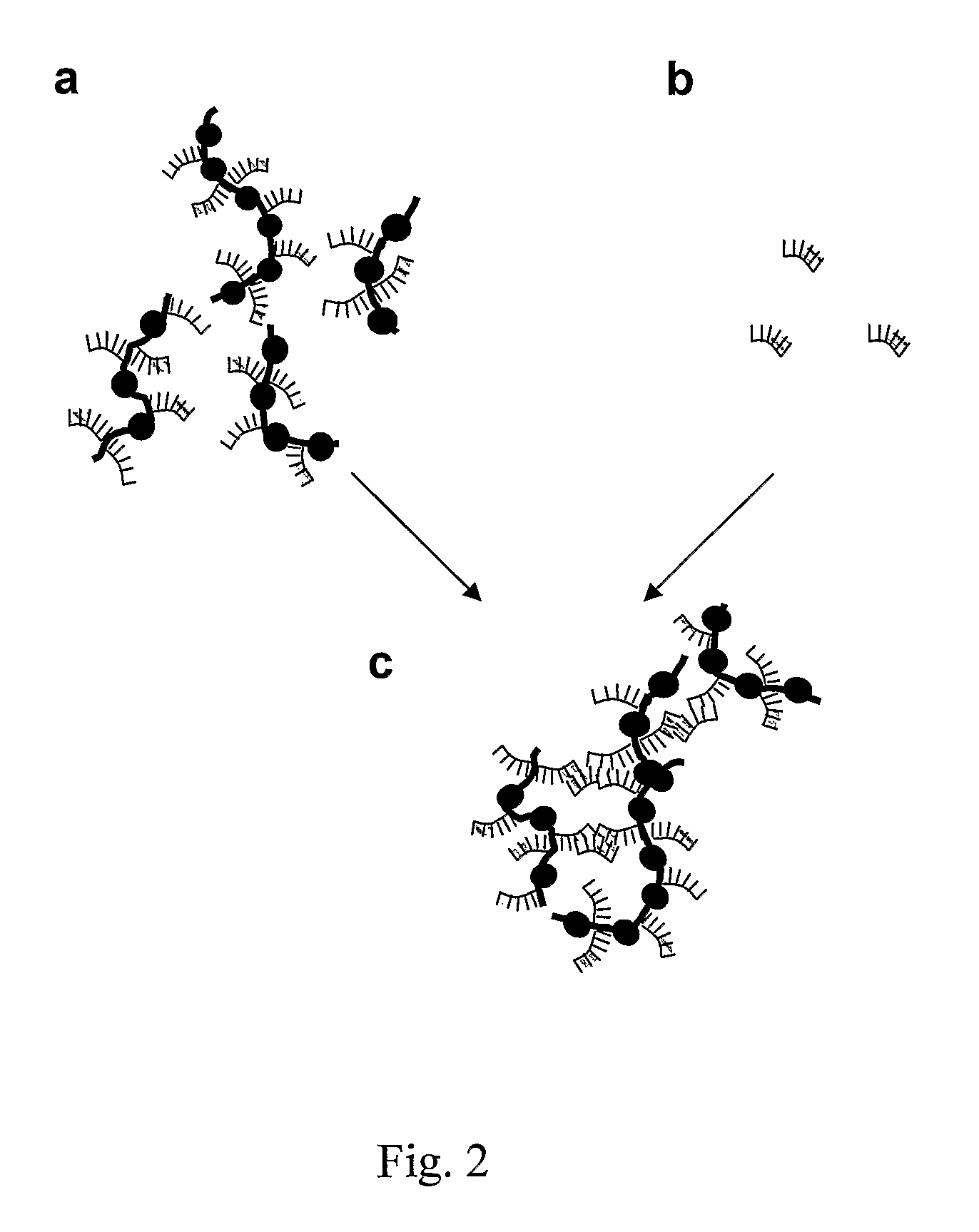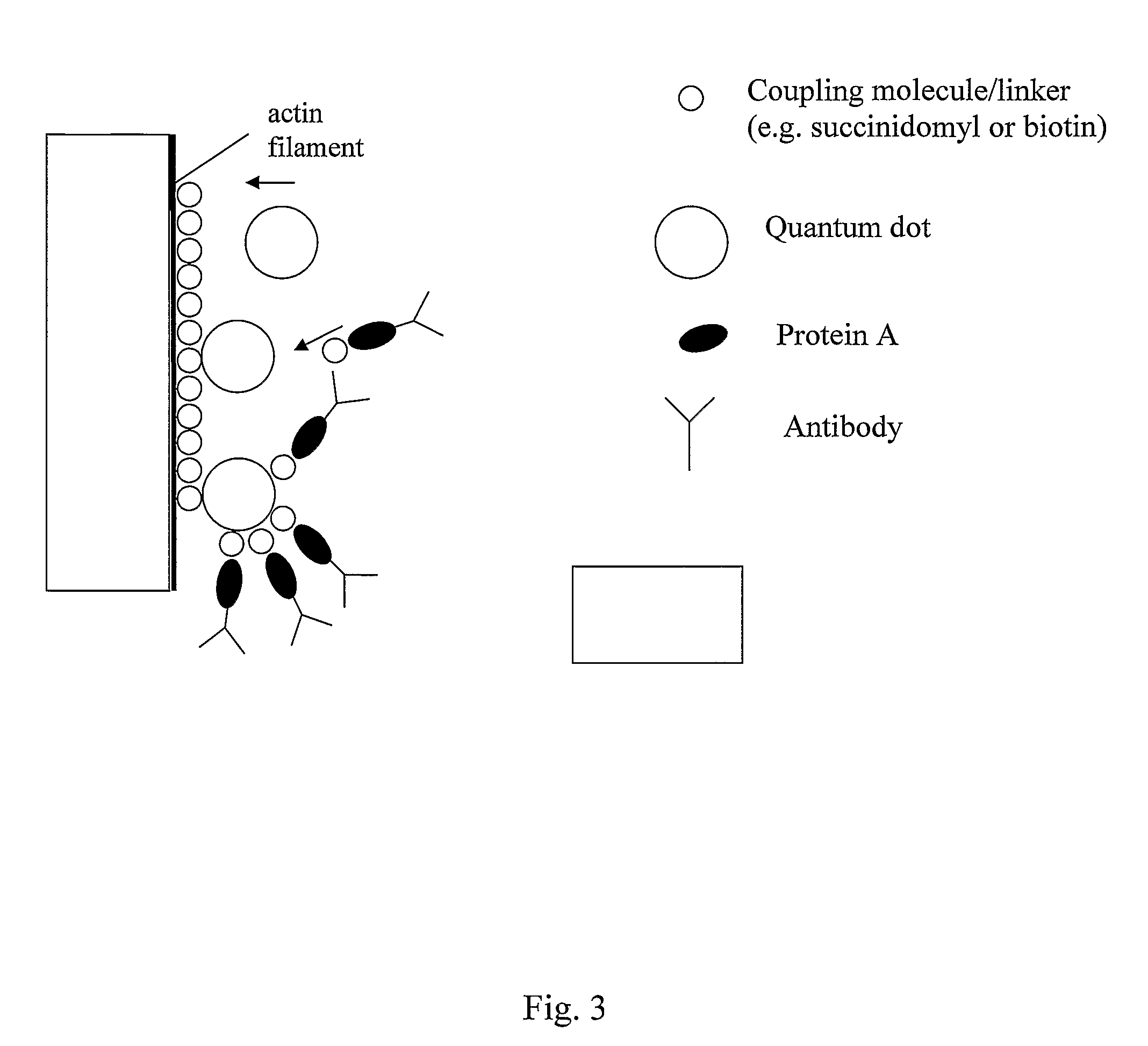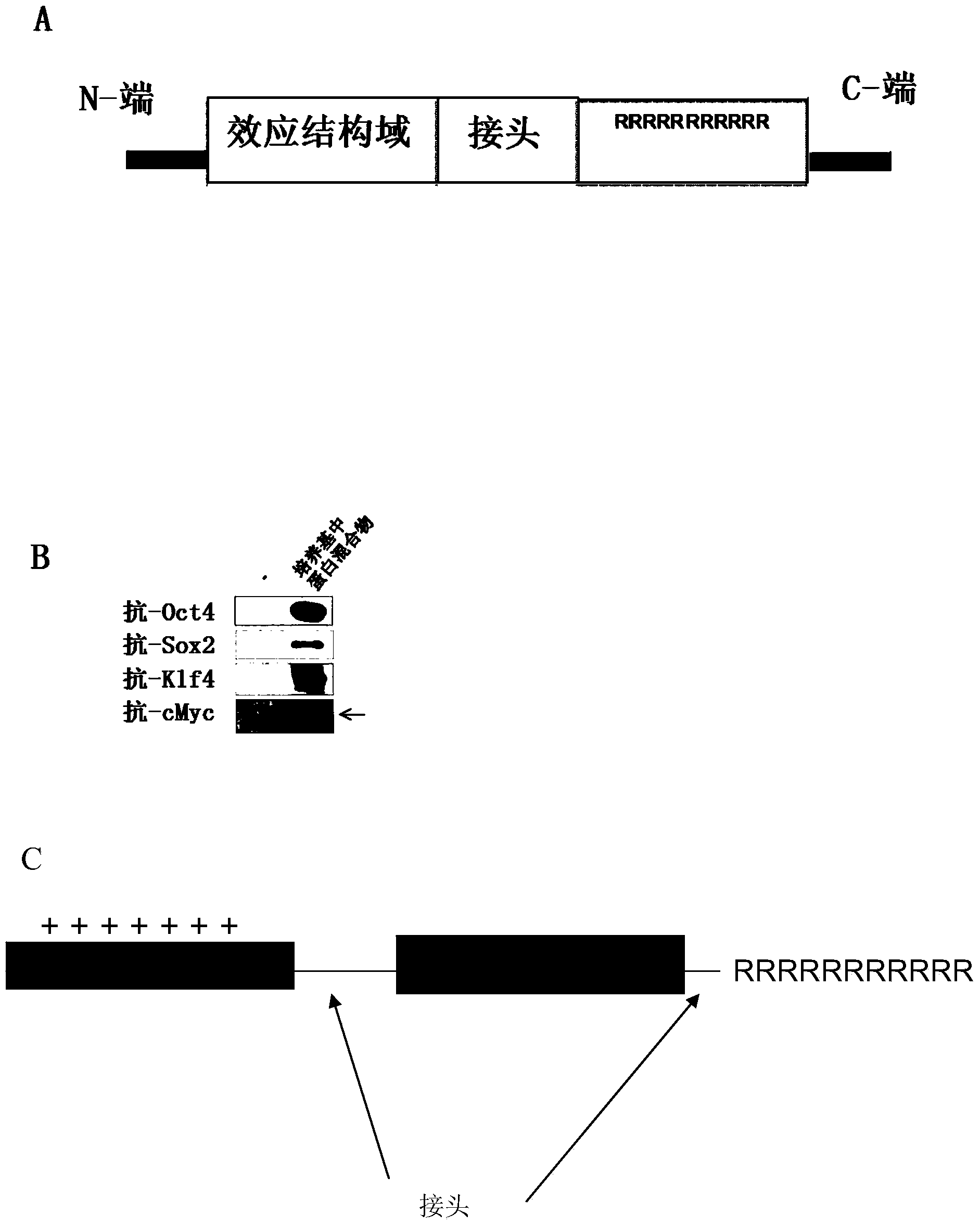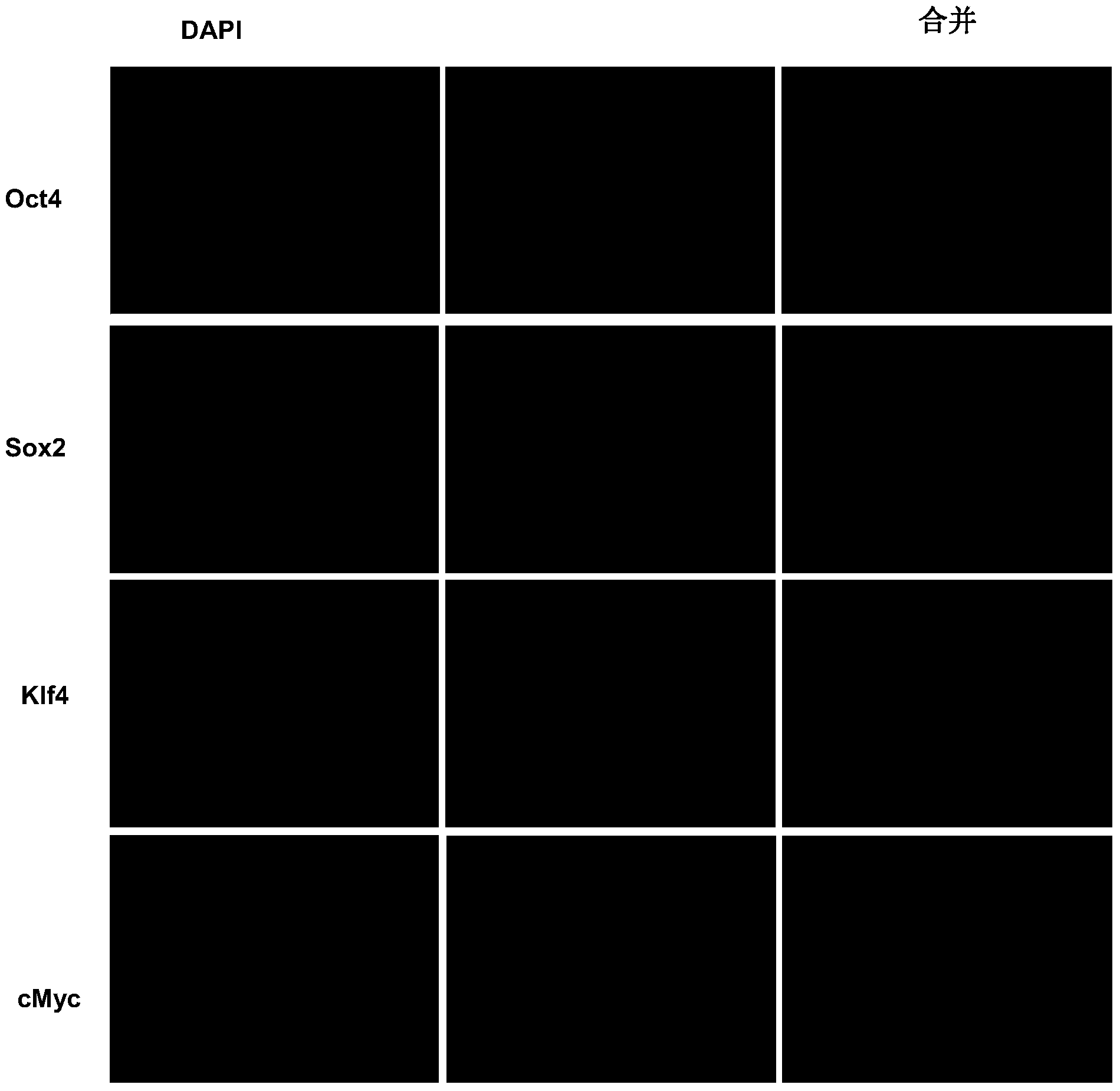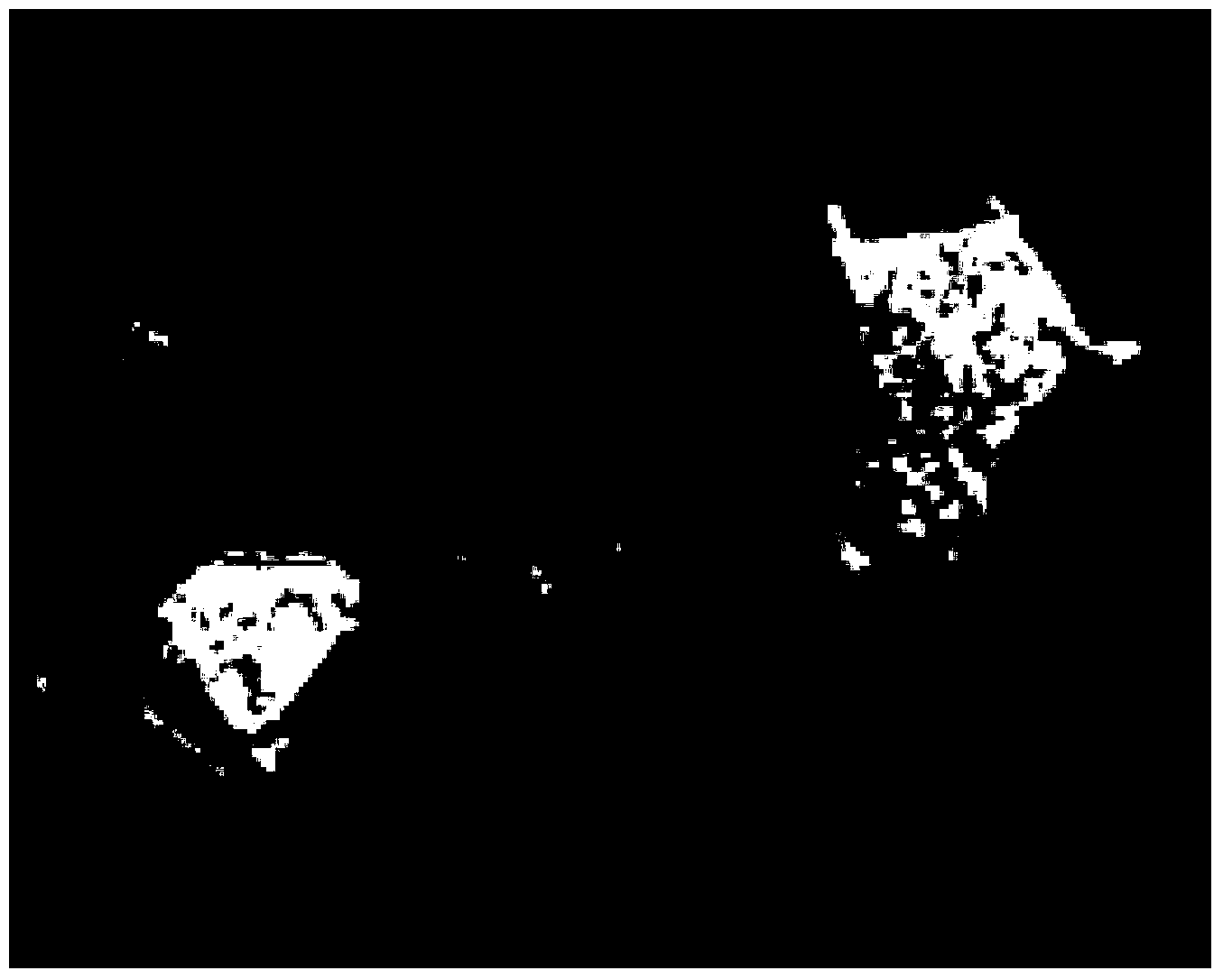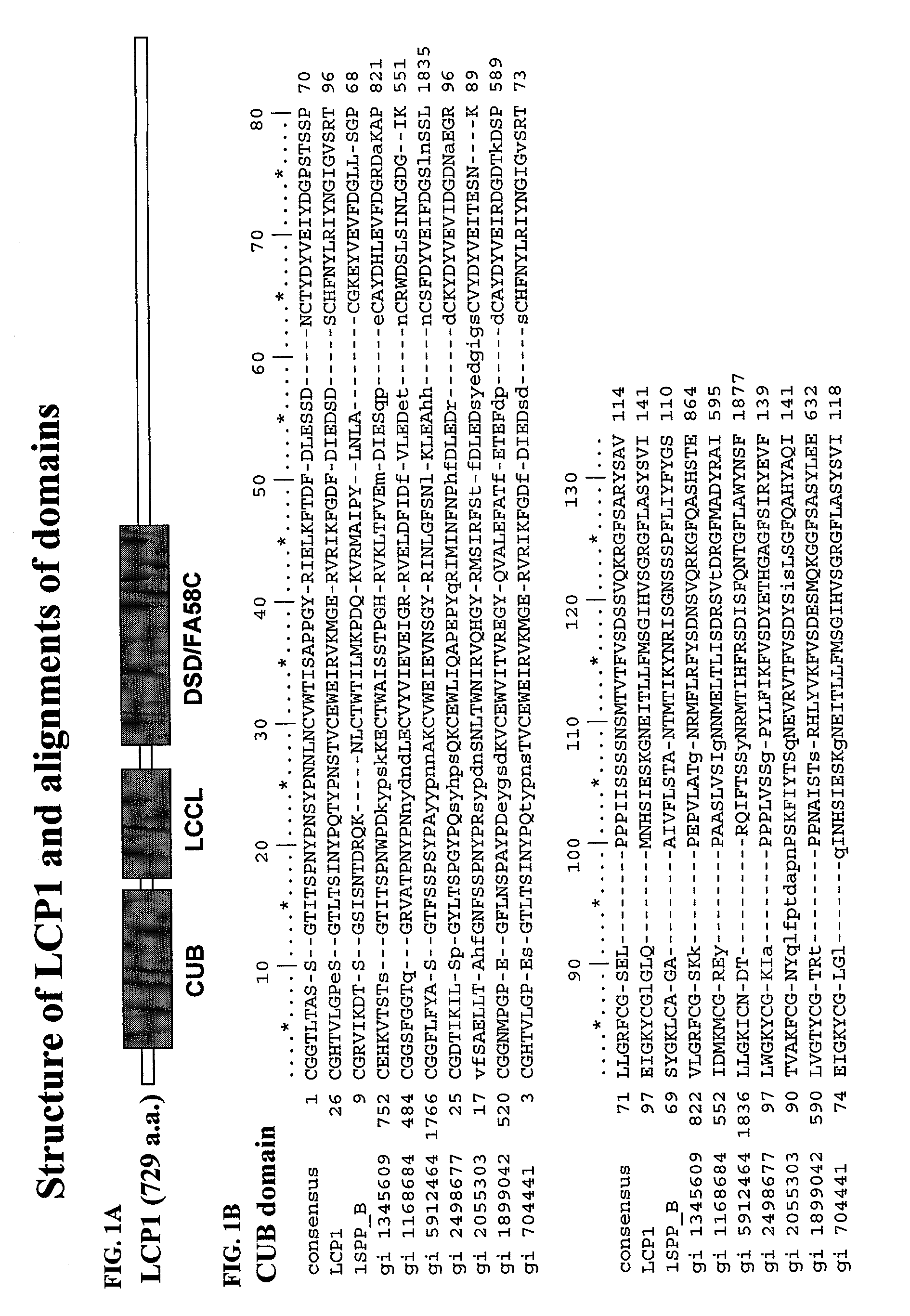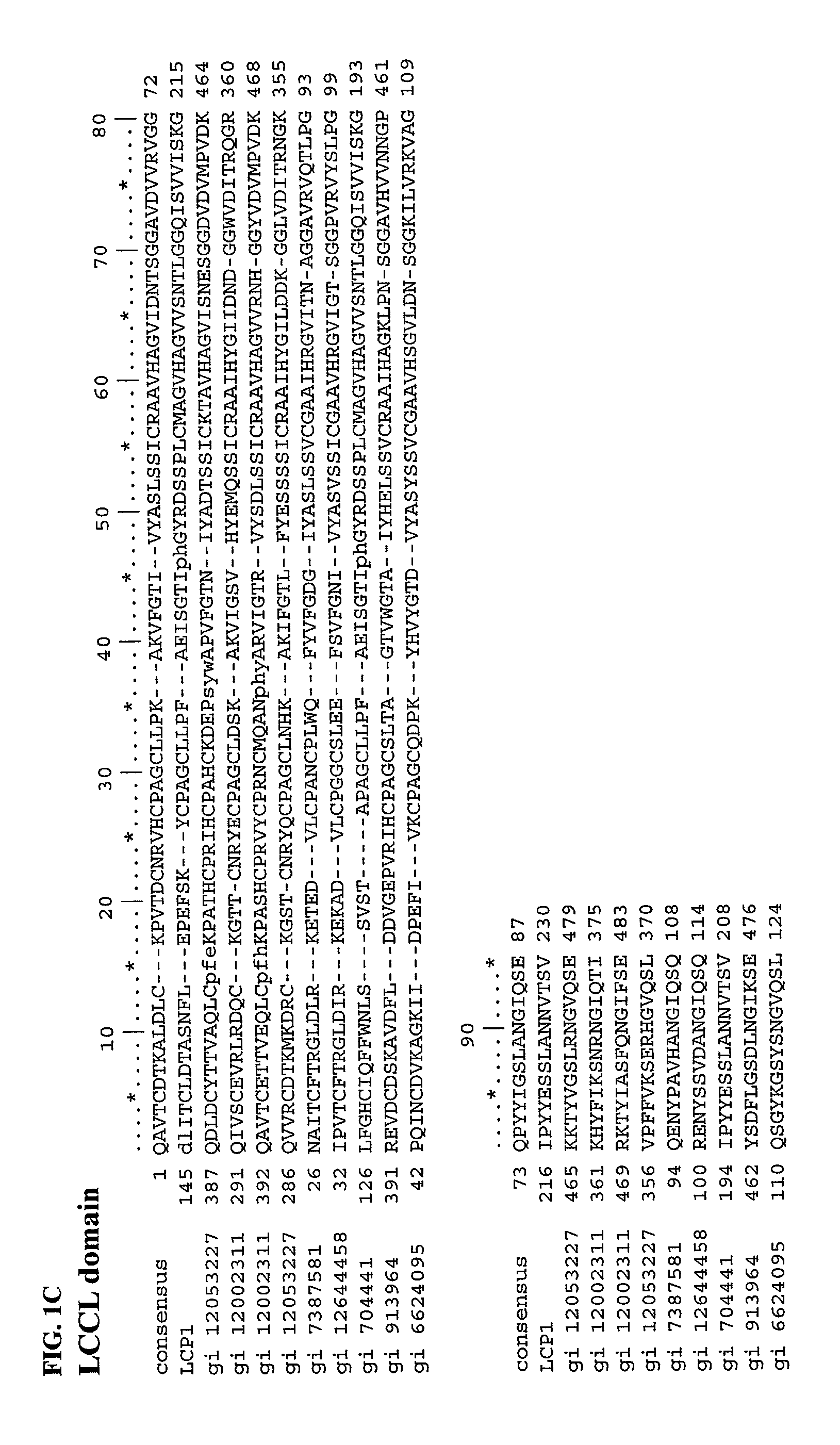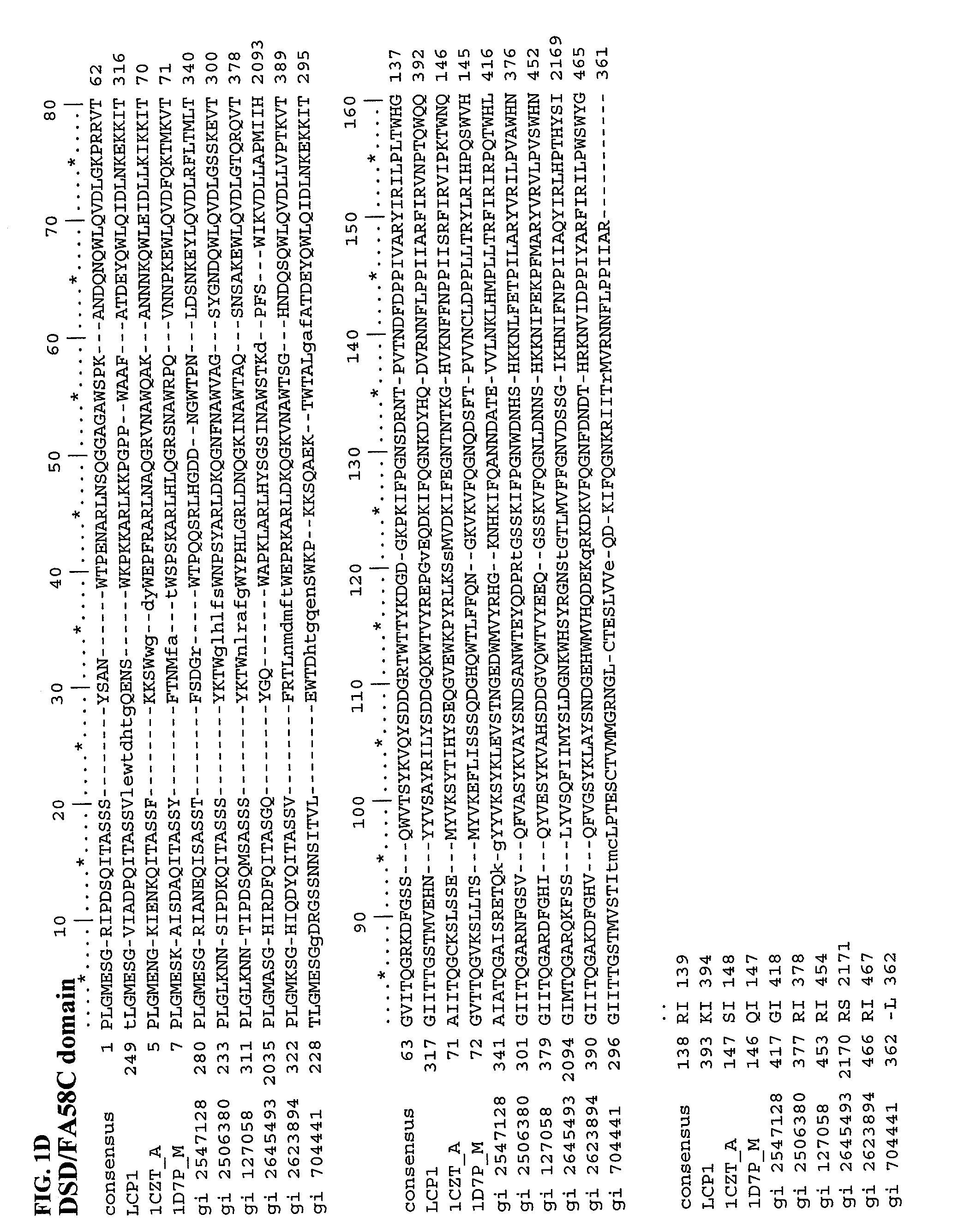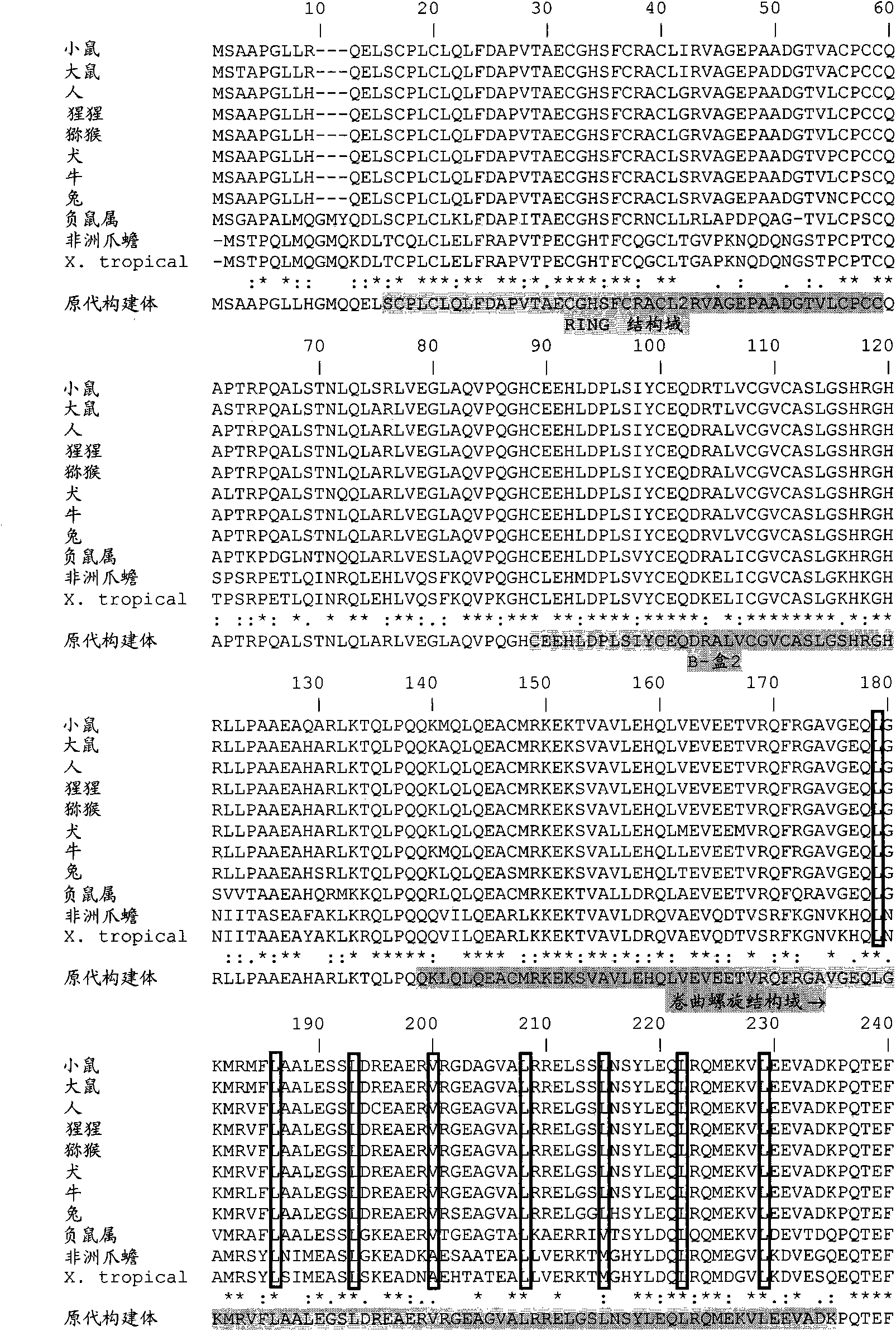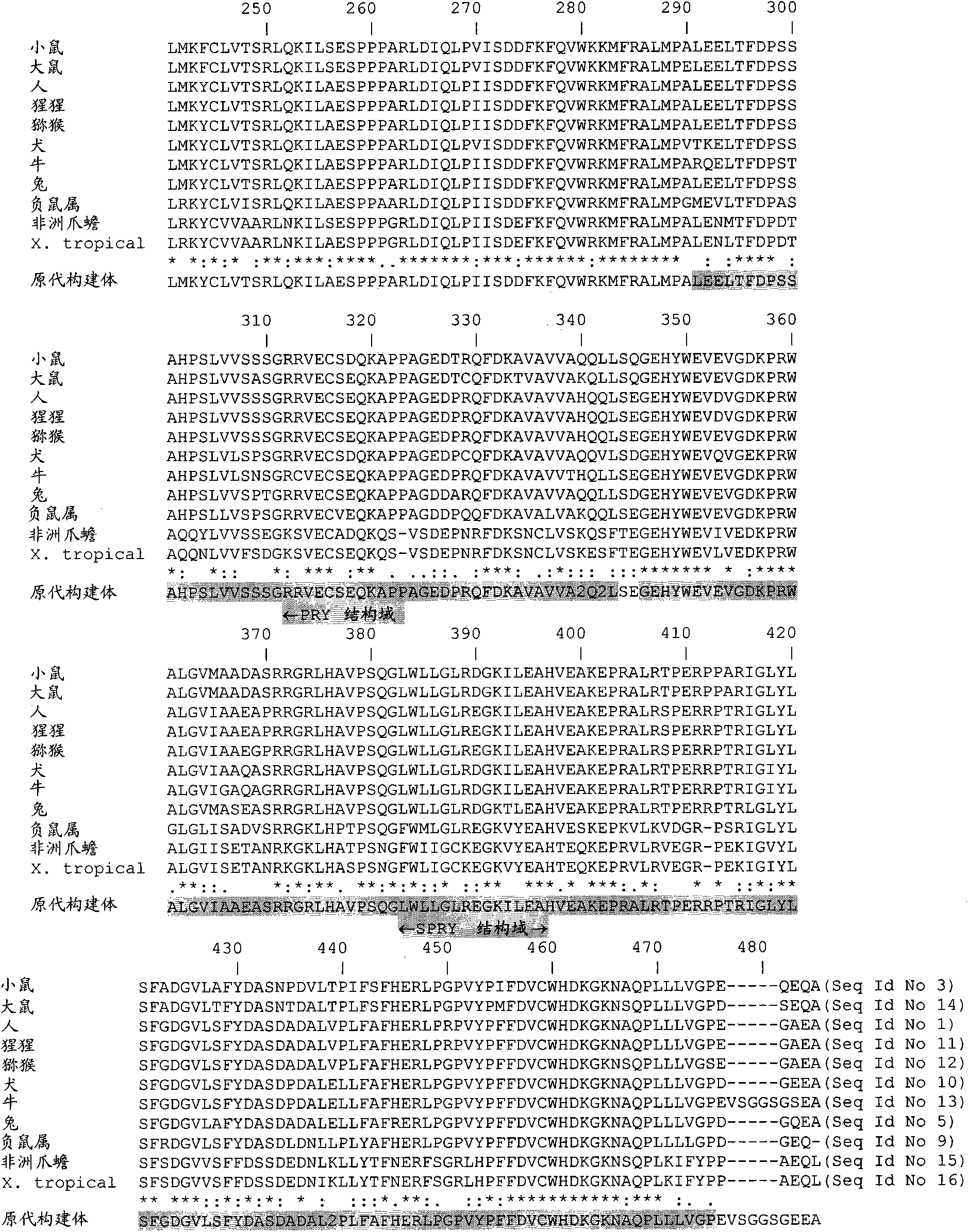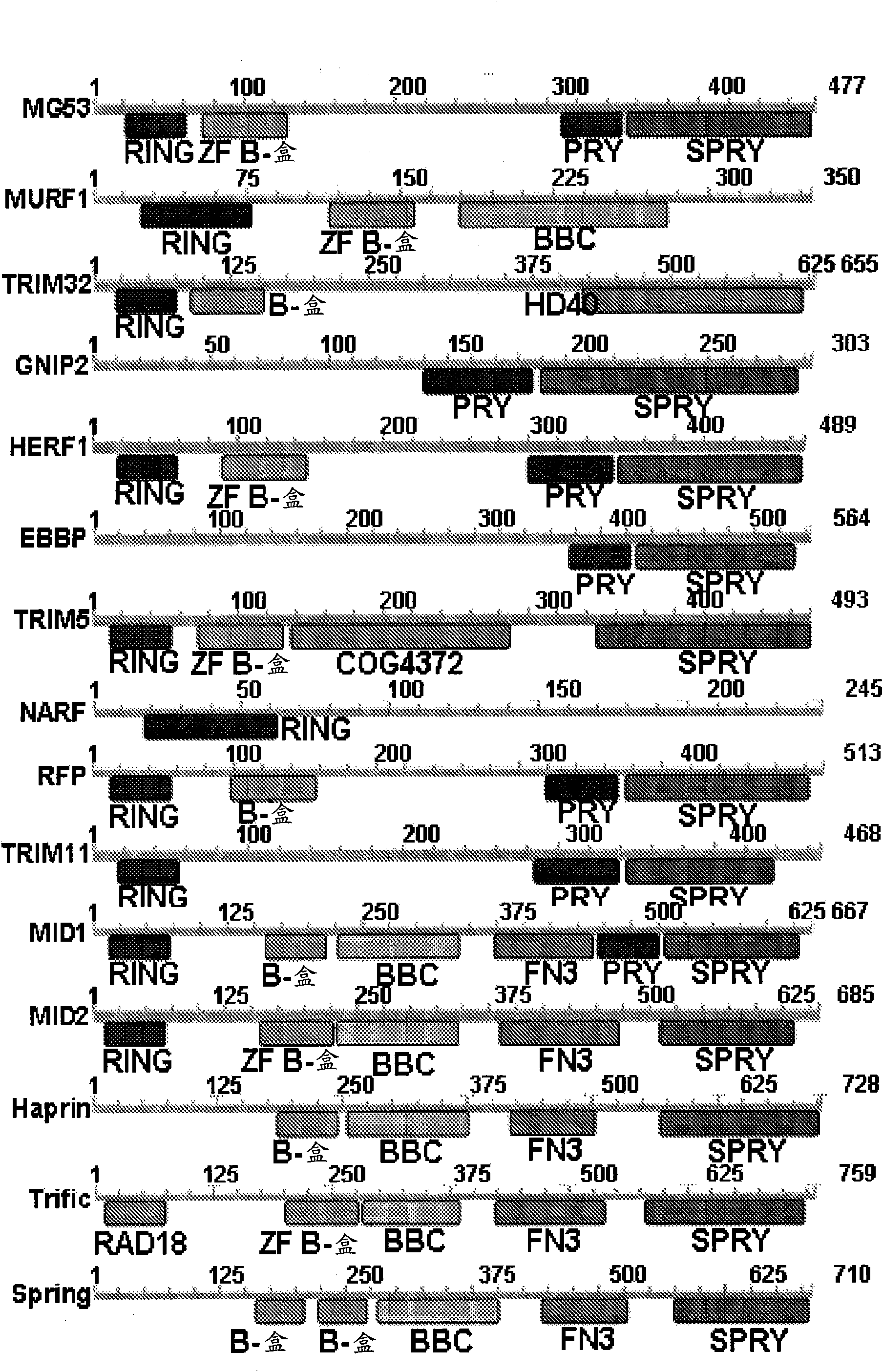Patents
Literature
Hiro is an intelligent assistant for R&D personnel, combined with Patent DNA, to facilitate innovative research.
197results about "Muscle proteins" patented technology
Efficacy Topic
Property
Owner
Technical Advancement
Application Domain
Technology Topic
Technology Field Word
Patent Country/Region
Patent Type
Patent Status
Application Year
Inventor
Pharmaceutical compositions comprising troponin subunits, fragments and homologs thereof and methods of their use to inhibit angiogenesis
InactiveUS6465431B1Inhibit progressInhibiting endothelialIn-vivo radioactive preparationsPeptide/protein ingredientsDiseaseAngiogenesis growth factor
The present invention relates to pharmaceutical compositions comprising therapeutically effective amounts of troponin C, I or T subunits, fragments, or homologs thereof, for the treatment of diseases or disorders involving abnormal angiogenesis and methods of use thereof.
Owner:BOSTON LIFE SCI +1
Pharmaceutical compositions comprising troponin subunits, fragments and analogs thereof and methods of their use to inhibit angiogenesis
InactiveUS6025331AInhibiting endothelial cell proliferationOrganic active ingredientsSenses disorderDiseaseAngiogenesis growth factor
Pharmaceutical compositions containing therapeutically effective amounts of troponin C, I, or T, subunits, fragments, or analogs for the treatment of diseases or disorders involving abnormal angrogenesis.
Owner:CHILDRENS MEDICAL CENT CORP
Methods for diagnosing and treating heart disease
InactiveUS20050064416A1Easy to determineRaise the possibilityBiocideFungiScreening methodHeart disease
The invention provides methods of diagnosing and treating heart diseases and conditions, methods for identifying compounds that can be used to treat or to prevent such diseases and conditions, and methods of using these compounds to treat or to prevent such diseases and conditions. Also provided in the invention are animal model systems that can be used in screening methods.
Owner:THE GENERAL HOSPITAL CORP
Method and kit for the diagnosis of troponin I
InactiveUS7285418B2High affinityIncrease exposurePeptide/protein ingredientsChemiluminescene/bioluminescenceSerum igeTroponin I binding
The invention provides a method for assaying for troponin I in a sample such as serum, the method comprising a determination of the troponin I concentration in a sample using a standard preparation that comprises a complete native troponin complex. One exemplary assay for troponin I concentration according to the invention is an immunoassay. Further contemplated in the method is a step comprising contacting the sample with a Ca2+-binding agent. Another aspect of the invention is the standard preparation comprising a complete native troponin complex. Yet another aspect of the invention is a kit for use in the assay method comprising the standard preparation, a detectable label, and a troponin I binding partner, such as an anti-troponin I antibody. All aspects of the invention are usefully practiced using human materials, such as a human troponin complex, and / or human sources for samples.
Owner:HYTEST LTD
Cytoplasmic dynein heavy chain 1 genes, expression products, non-human animal model uses in human neurological diseases
InactiveUS20070010657A1Peptide/protein ingredientsGenetic material ingredientsMyoclonic spasmsMotor Hyperactivity
A non-human animal model is provided, particularly a mouse model for movement hyperactivity, excitoxicity disorders (e.g. myoclonic cramping) and neurodegeneration, in which modified cytoplasmic dynein heavy chain1 is expressed. Modified human and mouse cytoplasmic dynein heavy chain1 proteins and nucleic adds are also provided, including the corresponding recombinant proteins. The invention further provides uses for the non-human animal model and the modified cytoplasmic dynein heavy chain1 proteins and nucleic acids, in particular for the diagnosis and treatment of medical conditions associated with over-expression of cytoplasmic dynein heavy chain1.
Owner:INGENIUM PHARMACEUTICALS AG
Compositions and methods for tissue repair
ActiveUS20100291080A1Promote repairEasy to manufactureAntibody mimetics/scaffoldsImmunoglobulinsCell-Extracellular MatrixTissue repair
The present invention provides compositions and methods for targeting an extracellular matrix derived (EMD) peptide predominantly to an injured tissue, as opposed to an uninjured tissue in vivo. The targeted EMD peptide facilitates the repair and / or regeneration of the injured tissue by providing a surface for cells to attach and grow, thereby facilitating the repair and / or regeneration of the injured tissue.
Owner:TRANSTARGET +1
DNA element for high-throughput in vitro protein synthesis
The invention provides a DNA element for high-throughput in vitro protein synthesis, and specifically discloses a novel DNA element capable of greatly enhancing protein translation efficiency. According to the present invention, with the application of the DNA element in a yeast in-vitro protein synthesis system, the relative light unit value of the activity of the synthesized luciferase is enhanced by about 22.3 times compared to the DNA element containing only the omega sequence.
Owner:KANGMA SHANGHAI BIOTECH LTD
Compositions and methods to modulate cell membrane resealing
ActiveUS20090208473A1Promote repairFacilitates cell membrane repairSugar derivativesPeptide/protein ingredientsCell membraneSugar nucleotide
Disclosed herein are compositions and methods for repairing cell membranes. In addition, the invention relates to therapeutic compositions comprising nucleotides and / or polypeptides of the invention in combination with a pharmaceutically acceptable carrier, wherein the composition facilitates the repair of cell membranes. Moreover, the invention relates to the treatment and / or prevention of pathological conditions associated with cell membrane damage.
Owner:RUTGERS THE STATE UNIV
Compositions and methods for tissue repair
ActiveUS8889140B2Promote repairEasy to manufactureHydrolasesPeptide/protein ingredientsCell-Extracellular MatrixTissue repair
The present invention provides compositions and methods for targeting an extracellular matrix derived (EMD) peptide predominantly to an injured tissue, as opposed to an uninjured tissue in vivo. The targeted EMD peptide facilitates the repair and / or regeneration of the injured tissue by providing a surface for cells to attach and grow, thereby facilitating the repair and / or regeneration of the injured tissue.
Owner:TRANSTARGET +1
Compositions and methods for tissue repair
InactiveUS20150104478A1Promote repairPeptide/protein ingredientsAntibody mimetics/scaffoldsTissue repairCell-Extracellular Matrix
The present invention provides compositions and methods for targeting an extracellular matrix derived (EMD) peptide predominantly to an injured tissue, as opposed to an uninjured tissue in vivo. The targeted EMD peptide facilitates the repair and / or regeneration of the injured tissue by providing a surface for cells to attach and grow, thereby facilitating the repair and / or regeneration of the injured tissue.
Owner:TRANSTARGET +1
Cardiac troponin i ultra-sensitive detection reagent kit, and ultra-sensitive detection method therefor
ActiveUS20170305983A1The test result is accurateHigh sensitivityChemiluminescene/bioluminescenceAntibody medical ingredientsI antibodyBinding site
A cardiac troponin I ultra-sensitive detection reagent kit, a preparation method, and a detection method. The reagent kit comprises at least one first anti-cardiac troponin I antibody marked with a trace marker and at least one second anti-cardiac troponin I antibody coated on magnetic microspheres, the first anti-cardiac troponin I antibody and cardiac troponin I binding site being different from the second anti-cardiac troponin I antibody and cardiac troponin I binding site. The reagent kit may further comprise a diluent capable of significantly reducing non-specific binding in a detection process, so as to further increase the detection accuracy and sensitivity. The method using the reagent kit to detect cardiac troponin I sensitively and accurately detects the amount of cardiac troponin I in a sample, and provides more timely and reliable information for the early diagnosis and treatment of AMI.
Owner:SHENZHEN NEW INDS BIOMEDICAL ENG
Dual-AAV Vector-Based Systems and Methods for Delivering Oversized Genes to Mammalian Cells
Disclosed are materials and methods for treating diseases of the mammalian eye, and in particular, Usher syndrome 1B (USH1B). The invention provides AAV-based, dual-vector systems that facilitate the expression of full-length proteins whose coding sequences exceed that of the polynucleotide packaging capacity of an individual AAV vector. In one embodiment, vector systems are provided that include i) a first AAV vector polynucleotide that includes an inverted terminal repeat at each end of the polynucleotide and a suitable promoter followed by a partial coding sequence that encodes an N-terminal portion of a full-length polypeptide; and ii) a second AAV vector polynucleotide that includes an inverted terminal repeat at each end of the polynucleotide and a partial coding sequence that encodes a C-terminal portion of a full-length polypeptide, optionally followed by a polyadenylation (pA) signal sequence. In another embodiment, the vector system includes i) a first AAV vector polynucleotide comprising an inverted terminal repeat at each end, a suitable promoter followed by a partial coding sequence that encodes an N-terminal portion of a full-length polypeptide followed by a splice donor site and intron and ii) a second AAV vector polynucleotide comprising an inverted terminal repeat at each end, followed by an intron and a splice-acceptor site for the intron, followed by a partial coding sequence that encodes a C-terminal portion of a full-length polypeptide, optionally followed by a polyadenylation (pA) signal sequence. The coding sequence or the intron sequence in the first and second AAV vectors preferably includes a sequence region that overlaps.
Owner:UNIV OF FLORIDA RES FOUNDATION INC
Antibodies to troponin I and methods of use thereof
The subject invention relates to antibodies to troponin I as well as methods of use thereof. In particular, such antibodies may be used to detect Troponin I in a patient and may also be used in the diagnosis of, for example, a myocardial infarction or acute coronary syndrome.
Owner:ABBOTT LAB INC
Protein composition obtained from a muscle source
InactiveUS7473764B2Simple treatmentSufficient low viscosityProtein composition from fishDepsipeptidesSAA proteinMuscle tissue
A process is provided for isolating a protein component of animal muscle tissue by mixing a particulate form of the tissue with an acidic aqueous liquid having a pH below about 3.5 to produce a protein rich solution substantially free of myofibrils and sarcomere tissue structure. The protein rich aqueous solution can be treated to effect protein precipitation, followed by protein recovery.
Owner:ADVANCED PROTEIN TECH INC
Pharmaceutical compositions comprising troponin subunits, fragments and analogs thereof and methods of their use to inhibit angiogenesis
InactiveUS6653283B1Organic active ingredientsPeptide/protein ingredientsDiseaseAngiogenesis growth factor
Pharmaceutical compositions and methods of treatment of diseases or disorders involving angiogenesis with therapeutically effective amounts of troponin C, I, or T, subunits, fragments, or analogs thereof.
Owner:CHILDRENS MEDICAL CENT CORP
Molecular motor
InactiveUS20020083710A1Control speedMaterial nanotechnologyBioreactor/fermenter combinationsConcentric cylinderActin
A molecular motor in which multiple concentric cylinders (or nested cones) rotate around a common longitudinal axis. Opposing complementary surfaces of the cylinders or cones are coated with complementary motor protein pairs (such as actin and myosin). The actin and myosin interact with one another in the presence of ATP to rotate the cylinders or cones relative to one another, and this rotational energy is harnessed to produce work. The concentration of ATP and the number of nested cylinders or cones can be used to control the rotational speed of the motor. The length of the cylinders can also be used to control the power generated by the motor. In another embodiment, the molecular motor includes at least two annular substrates wherein one annular substrate is coated with a first motor protein and the other annular substrate is coated with a second motor protein. The first and second motor proteins interact with each other to move the second annular relative to the first annular substrate.
Owner:US DEPT OF HEALTH & HUMAN SERVICES
Constructs for enhancement of gene expression in muscle
Efficient and muscle-specific gene expression can be obtained with constructs containing two or more copies of USE and / or ΔUSE fused to the minimal promoter of the TnISlow gene. USE is a small (about 160-bp) upstream enhancer of the TnISlow gene that confers slow-twitch muscle fiber specificity. ΔUSE is generated from a 100-bp deletion at the 5′ end of USE. ΔUSE confers expression in slow- and fast-twitch muscle fibers. The strength and relatively small size (less than 600-bp) of these constructs make them useful for gene therapy applications.
Owner:NAT RES COUNCIL OF CANADA
Pharmaceutical compositions comprising recombinant troponin subunits
The present invention relates to pharmaceutical compositions comprising therapeutically effective amounts of recombinant troponin C, I or T subunits for the treatment of diseases or disorders involving abnormal angiogenesis.
Owner:CHILDRENS MEDICAL CENT CORP
New gene fragment, novel transgenic zebrafish and methods for producing transgenic zebrafish
Owner:TAIKONG +1
Troponin I polypeptide fragments and uses thereof
Polypeptides corresponding to stable, circulating degradation products of troponin I (TnI) are described. The fragments comprise a sequence of the N-terminus of native cardiac TnI with 95-115 amino acid and additionally include fragments lacking about the 20-30 N-terminal amino acids. Utilities of these fragments and antibodies thereto include sensitive detection of myocardial infarction and purification of antibodies sensitive to the detection of troponin I degradation products.
Owner:SPECTRAL DIAGNOSTICS
Nuclear targeting sequence
InactiveUS7531624B2Polypeptide with localisation/targeting motifPeptide/protein ingredientsTitin filamentProtein target
The present provides nuclear localization signaling (NLS) sequences derived from titin, comprised of amino acids 181-220: SVGRATSTAE LLVQGEEEVP AKKTKTIVST AQISESRQTR and fragments thereof, such as amino acids 193-208: VQGEEEVP AKKTKTIV; amino acids 199-208: VPAKKTKTIV; and amino acids 200-206: PAKKTKT. The NLS sequences can be linked to agents, such as peptides, proteins or nucleotides, for transporting the agents into the nucleus of cells, and the NLS-agent complex can be further linked to antibodies or ligands for specific binding to cells. Also provided is a method for constructing cDNAs comprising combining a NLS sequence with a nucleic acid sequence for a target protein for expression and entry of the target protein into the nucleus of cells, which then can perform specific functions therein.
Owner:IMS SOFTWARE SERVICES +1
Water soluble animal muscle protein product
InactiveCN1751062AProtein composition from fishPeptide preparation methodsMuscle tissueMuscle protein
A water soluble peptide composition derived from animal muscle tissue proteins is provided. The peptide composition contains less than about 1 weight percent fats and oils based upon the weight of the peptide composition and less than about 2 weight percent ash based on the weight of the peptide composition.
Owner:PROTEUS INDUSTRIES INC
Methods for detecting mutations associated with hypertrophic cardiomyopathy
InactiveUS20020127548A1Determine effectGood chanceSugar derivativesPeptide/protein ingredientsCardiac myosinHypertrophic cardiomyopathy
The invention pertains to methods for detecting the presence or absence of a mutation associated with hypertrophic cardiomyopathy (HC). The methods include providing DNA which encodes a cardiac myosin binding protein and detecting the presence or absence of a mutation in the amplified product which is associated with HC. The invention further pertains to methods for diagnosing HC in a subject. These methods typically include obtaining a sample of DNA which encodes a cardiac myosin binding protein from a subject being tested for FHC and diagnosing the subject for FHC by detecting the presence or absence of a mutation in the sarcomeric thin filament protein which causes FHC as an indication of the disease. Other aspects of the invention include kits useful for diagnosing HC and methods for treating HC.
Owner:PRESIDENT & FELLOWS OF HARVARD COLLEGE +1
Antibodies to troponin i and methods of use thereof
The subject invention relates to antibodies to troponin I as well as methods of use thereof. In particular, such antibodies may be used to detect Troponin I in a patient and may also be used in the diagnosis of, for example, a myocardial infarction or acute coronary syndrome.
Owner:ABBOTT LAB INC
Detection conjugate
InactiveUS8658381B2High sensitivityLow costPeptide/protein ingredientsMammal material medical ingredientsActin myofilamentCytoskeletal Filaments
The invention relates to a detection conjugate composed of a filament fragment, e.g. a cytoskeletal filament such as actin filaments or microtubules, and recognition elements bound to this fragment as well as kits comprising said detection conjugate and methods how to use said detection conjugate as well as the use for the detection of one or more compounds present within a sample, such as a biological sample.
Owner:MANSSON ALF +1
Compositions and methods for re-programming cells without genetic modification for repairing cartilage damage
The present inventions are directed to compositions and methods regarding the reprogramming of other cells (such as embryonic stem cells (ESCs), induced pluripotent stem cells (iPSCs), MSCs, fibroblasts, hematopoietic stem cells, endothelian stem cells, adipocytes, chondrocytes, osteoblasts, osteoclasts and endothelial cells) into chondrogenic cells without introducing exogenous genes to the samples. In particular, the present inventions are directed to transducible materials that are capable of transducing into the biological samples but are not genes or causing genetic modifications. The present inventions also are directed to methods of reprogramming the path of biological samples or treating diseases using the tranducible compositions thereof.
Owner:VIVOSCRIPT +1
Human LCCL domain containing protein
InactiveUS20030032154A1Easy adhesionFacilitates denaturationTumor rejection antigen precursorsPeptide/protein ingredientsPharmaceutical formulationProtein neddylation
The invention provides isolated nucleic acids that encode LCP, including two isoforms, and fragments thereof, vectors for propagating and expressing LCP nucleic acids, host cells comprising the nucleic acids and vectors of the present invention, proteins, protein fragments, and protein fusions of the novel LCP isoforms, and antibodies thereto. The invention further provides transgenic cells and non-human organisms comprising human LCP nucleic acids, and transgenic cells and non-human organisms with targeted disruption of the endogenous orthologue of the human LCP gene. The invention further provides pharmaceutical formulations of the nucleic acids, proteins, and antibodies of the present invention, and diagnostic, investigational, and therapeutic methods based on the LCP nucleic acids, proteins, and antibodies of the present invention.
Owner:AMERSHAM INT PLC
Compositions and methods to modulate cell membrane resealing
Disclosed herein are compositions and methods for repairing cell membranes. In addition, the invention relates to therapeutic compositions comprising nucleotides and / or polypeptides of the invention in combination with a pharmaceutically acceptable carrier, wherein the composition facilitates the repair of cell membranes. Moreover, the invention relates to the treatment and / or prevention of pathological conditions associated with cell membrane damage.
Owner:RUTGERS THE STATE UNIV
Features
- R&D
- Intellectual Property
- Life Sciences
- Materials
- Tech Scout
Why Patsnap Eureka
- Unparalleled Data Quality
- Higher Quality Content
- 60% Fewer Hallucinations
Social media
Patsnap Eureka Blog
Learn More Browse by: Latest US Patents, China's latest patents, Technical Efficacy Thesaurus, Application Domain, Technology Topic, Popular Technical Reports.
© 2025 PatSnap. All rights reserved.Legal|Privacy policy|Modern Slavery Act Transparency Statement|Sitemap|About US| Contact US: help@patsnap.com
